Beans
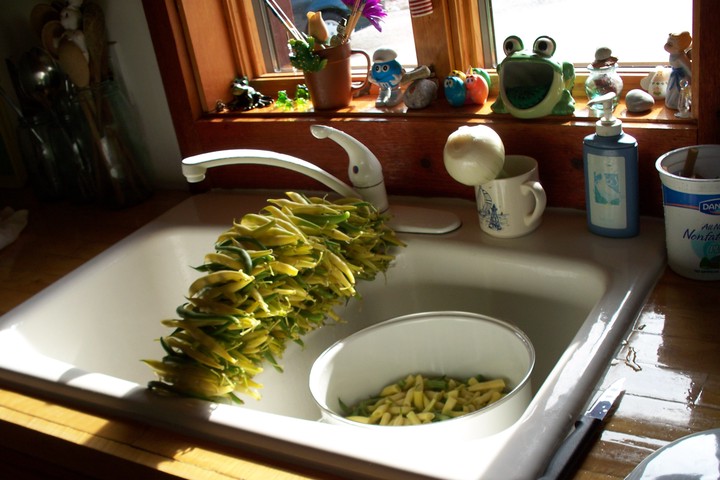 New Office
New Office
TABLE OF CONTENTS
- EDITORIAL NOTE, RECORD KEEPING AND SOME HISTORY
- SEASONS
- SEASONS 2021
- SEASONS 2022
- SEASONS 2023
- SEASONS 2024
- SEASONS 2025
- QUICK TIMELINE
- LITTLE EASY BEAN NETWORK
- SEED SWAPS
- CREDITS, APPRECIATION, LINKS, GETTING BEANS
- BEANS HISTORY THE OTHER PAGE
EDITORIAL NOTE, RECORD KEEPING AND SOME HISTORY:
I’m still thinking about and rewriting this page and so it is a work in progress as I keep growing beans and experiencing different conditions and working on different projects.
It is important to keep good records from the start. I didn’t keep good records and that has made it harder to answer questions. When you first start out you may not think you’re growing so many plants or varieties, but as time goes on you might build up a larger collection. Keep notes and garden maps of plantings if you can - you’ll thank yourself later.
My first time growing beans as a child I had a single bean plant indoors in a blue plastic container shaped like a tulip. I learned about how they grew, flowered and developed seeds in the pods. I didn’t really grow many beans after that instead I was learning a lot about plant propagation and care by keeping house plants, succulents and a terrarium of carnivorous plants. For the gardens outside I had roses in front, purple irises along the back of the house and some grape vines on a chainlink fence we had around the dog kennel. Then I went off to college, work and travels.
Years later, when I came back to this area and started helping in the gardens on this property I knew I really liked green and wax beans for fresh eating and lima beans cooked as shellies or used later as dry beans. I picked up packets from the seed racks at the stores of Tendergreen green beans, Top Notch wax beans and Hendersons Bush Lima beans. That was where I started.
SEASONS:
Early:
The top picture of this page was taken in July 2010 and shows my new office after I quit my previous part-time job. At the time I was growing Top Notch wax beans, Tendergreen green beans, some soy beans for making soy milk and Hendersons bush lima beans. The bush type green beans would sometimes grow a long climber so that was probably a reversion to a parental type or an outcross (the seeds from those were white and not the same as the Tendergreen seeds). There was also a lighter colored outcross in Tendergreen seed that was notably easier to shell. Right away I was discovering some fun things happening in the bean patch.
A picture of one of the first bean patches where I also planted strawberries around the edges. The green and wax beans were planted around the next row inwards and then in the middle there were soybeans - they cast enough shade that the strawberries ran mostly along the edges.
A Bean Patch -
Aug 10 2010 (2716K)
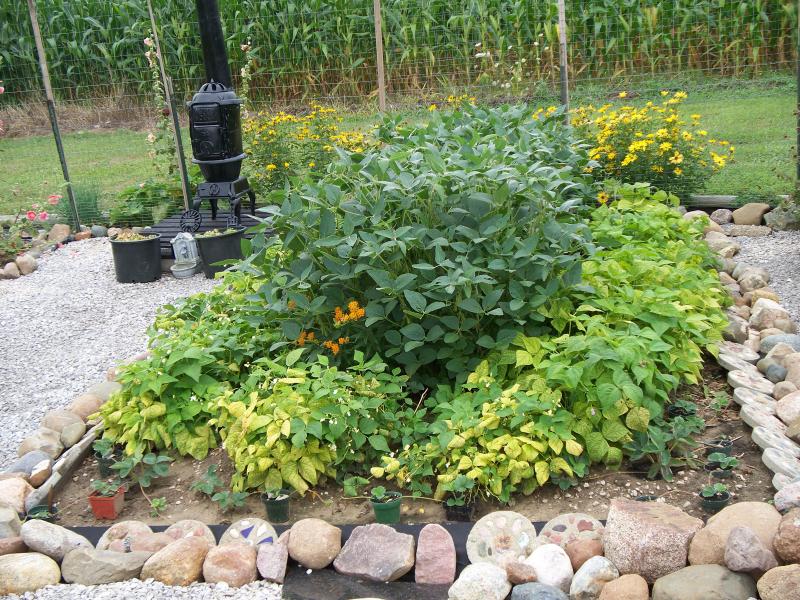
The next fall and winter I started looking into how many varieties there were and wanted to grow some dry beans like the Pinto, Kidney and some bigger lima beans. A simple way to get more was to go to the store and buy a bag of bean soup mix. Then my list expanded from the initial three to sixteen which I planted in the North Garden (the same year I was getting rid of the horsetail and renovating along that edge for water flows so the garden was a mess to look at). Most did well, except the large lima beans, Lentils, Chick Peas and Blackeye Peas.
North Garden -
Aug 19 2011 (765K)
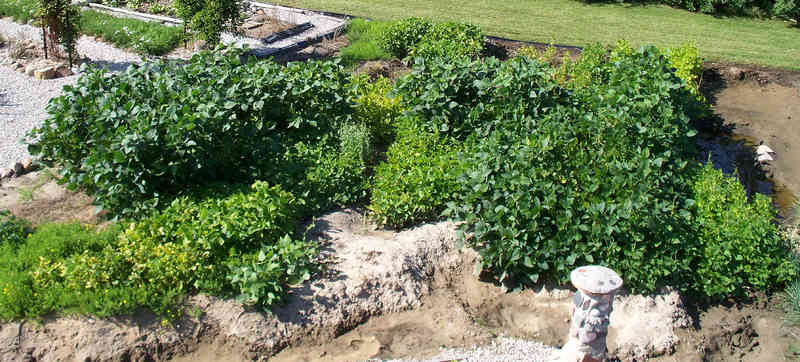
The harvest from that garden had some of the most beautiful things I had ever seen. Yes, I was hooked, completely.
Bean Mix Harvest -
Dec 1 2011 (2522K)
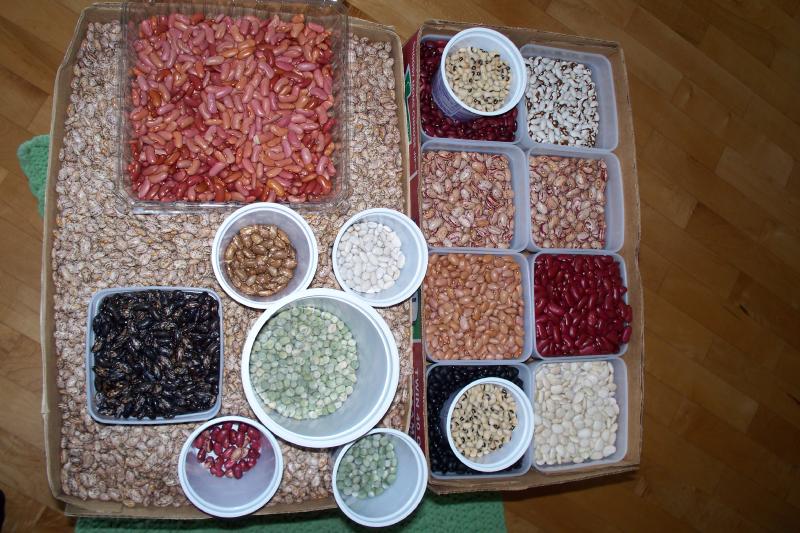
I also purchased or traded with a few people for more varieties increasing my bean collection to about 40 beans.
I’m not included the Navy Pea or the Great Northern beans - they were both very common around here that they were almost all we used for cooking. I like them and we still buy some for cooking, but there is so much more variety out there to try that I don’t care to grow these myself.
My favorite time of any harvest season in the late summer and fall is the dry bean shelling and sorting. It is magical to me, like picking stones off the beach, how so many can be unique and I also like the tactile aspect of the process. At times I get done sorting in the middle of winter and mix a bunch back together so I can sort them and see them again. OCD? Perhaps.
Middle:
With all of these varieties growing and being open-pollenated by bees (the small bumblebees are the most common bees I see in the beans) some outcrosses started showing up. I no longer keep track of how many varieties or outcrosses I have, but some of them I have replanted and gotten them stable enough to give them names. The following are just a few examples of what I’ve grown.
2016 was a year when I only planted a few varieties. Most of my garden space was taken up by squash and I knew I didn’t have enough room for much else.
Tan Goats Eye Bean -
Sep 24 2016 (764K)
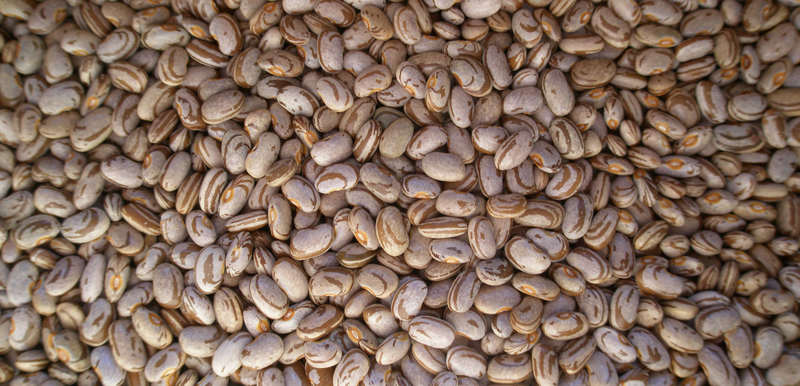
Red Ryder Beans Close -
Sep 24 2016 (1149K)
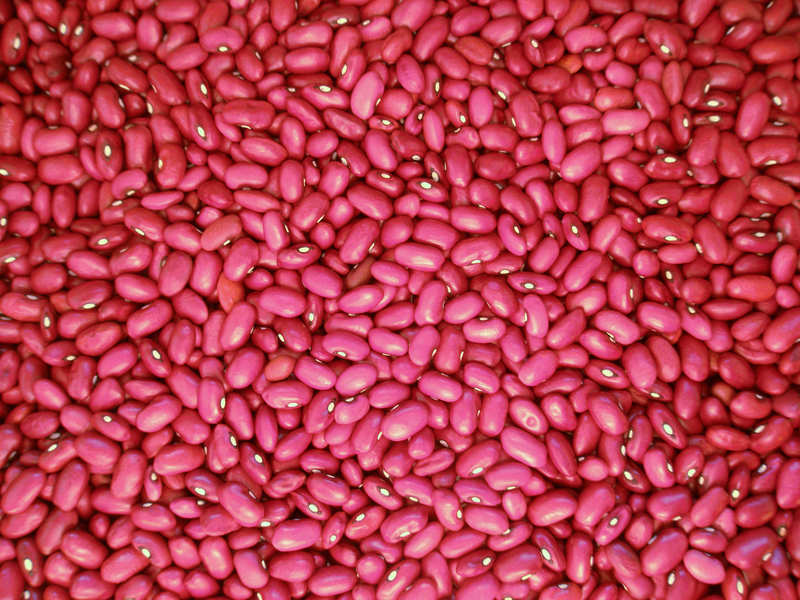
Red Ryder Beans -
Sep 24 2016 (1094K)
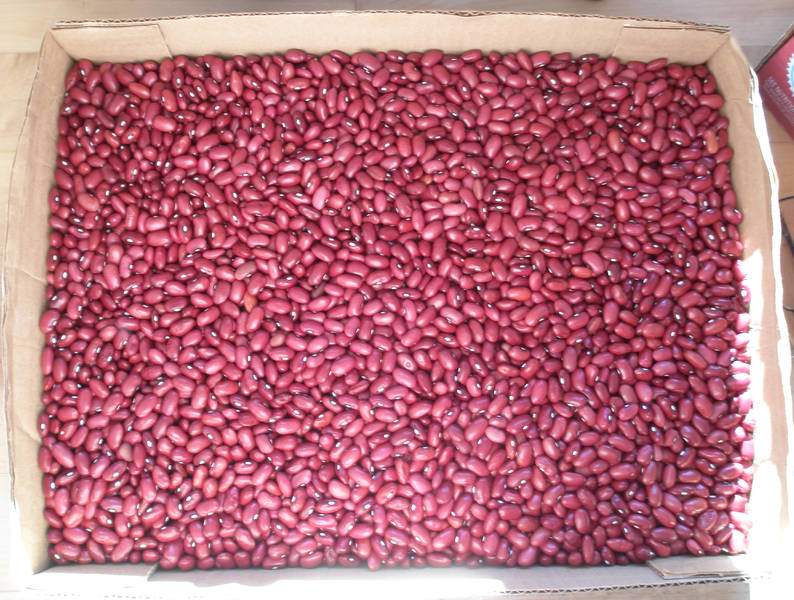
The 2017 growing season started off fairly well with most beans sprouting that I planted. The only challenge was to get the Edamame Soybeans to survive sprouting stage. The chipmunks were eating them as fast as they sprouted - I only had three plants growing out of three hundred seeds planted. Some years nature gets a fair share earlier than I’d like. All together I planted over 50 varieties.
During and after planting I was trying to sort and combine containers to get the bean seed collection to take up less space - with few rainy days I’d not finished, but I took a picture to show a version of the madness. The bigger containers on the shelves were the beans I had enough to eat. Many of the smaller containers had collections of similar varieties which weren’t yet sorted out.
Sorting Beans -
Jul 4 2017 (1527K)
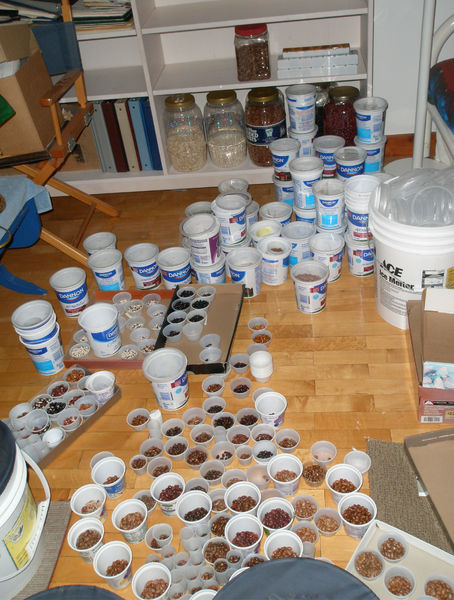
The Scarlet Runner Beans are well worth the space on the fence for the color of the flowers alone.
Scarlet Drop -
Sep 1 2017 (1623K)
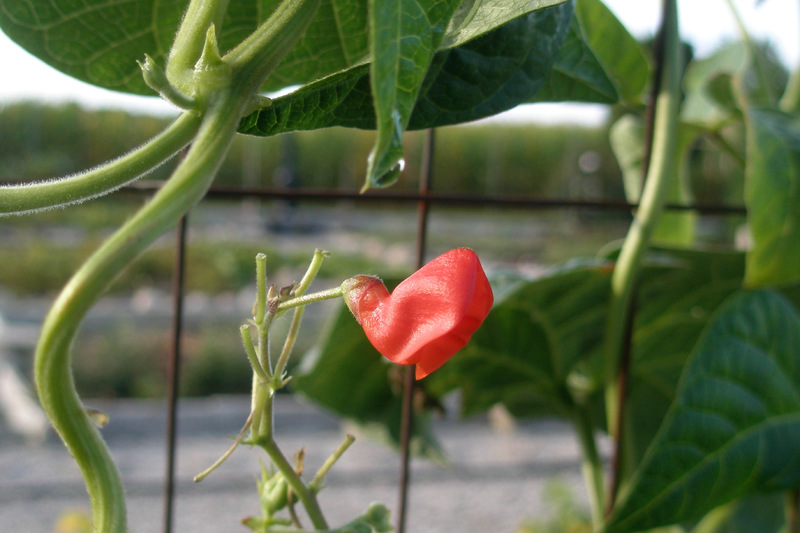
Greasy Beans like a longer season than what we usually have but they did really well this particular year (I no longer grow them).
Greasy Beans -
Sep 1 2017 (1551K)
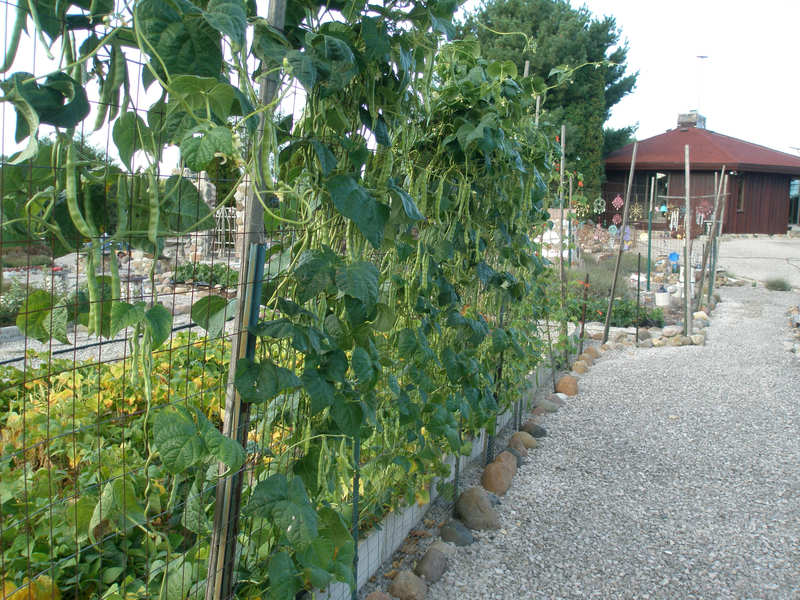
Some of the first dry beans of the 2017 season. The colors didn’t show up as well in this picture as I’d’ve liked.
First Beans -
Sep 7 2017 (1707K)
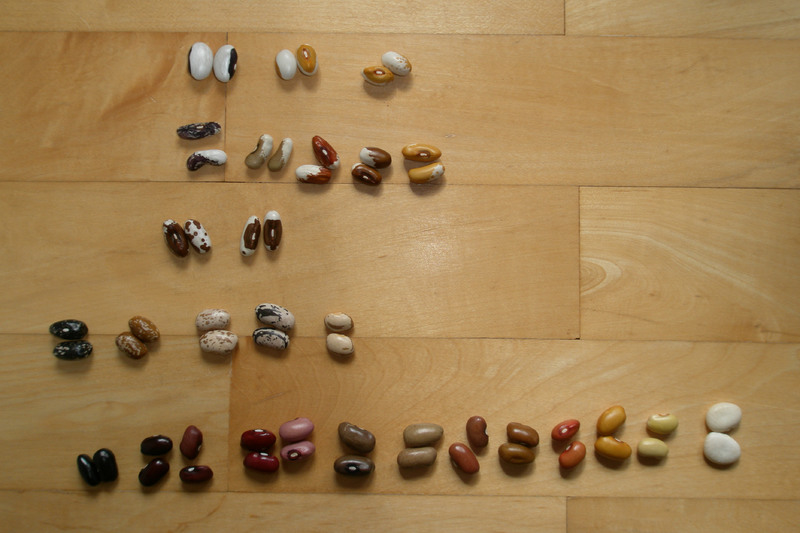
A bean I had been trying to crossbreed for a few years. A hoped for productive and reliable bean combination (Red Ryder and Pinto). Lovely light pink pattern on these. They fade to more tan and brown colors as they age so I have not grown them much to see how they did in terms of production and disease resistance and as a later note these did not repeat well when planted. Sometimes a new cross doesn’t work.
Pink Pinto -
Oct 20 2017 (1289K)
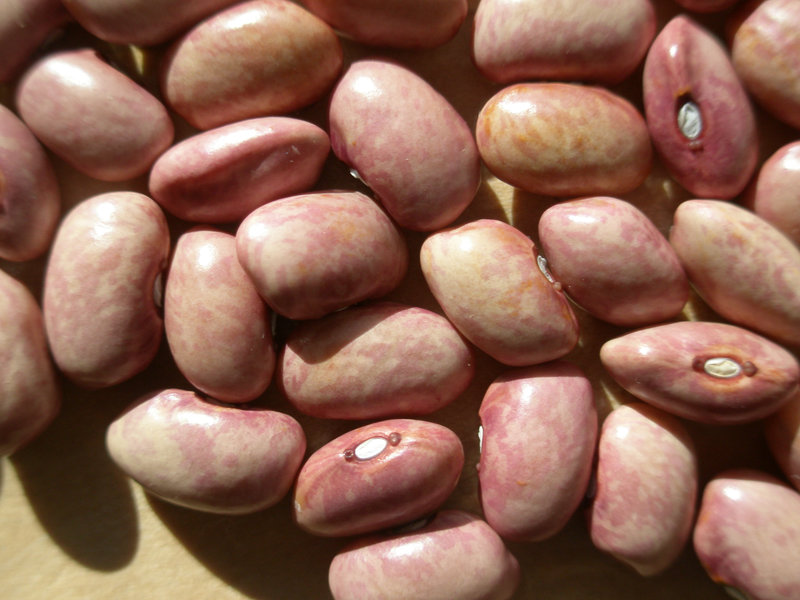
And another bean combination I’d been trying to crossbreed. Thank you to the bees and Mother Nature. So very hard to see unless in direct sunlight, but these are from two very productive and reliable beans (Red Ryder and a tan/brown selection from a Goats Eye and other bean mix called Peregion). I looked forwards to seeing how they grew out the next season. As a later note, these did not work out, but I do have a smaller red bean now in the mix of the Red Ryder which may be related to this bean. A big part of not working out is that the bean is too hard and time consuming to see when sorting. Close but not quite…
Red Goats Eye -
Oct 20 2017 (1171K)
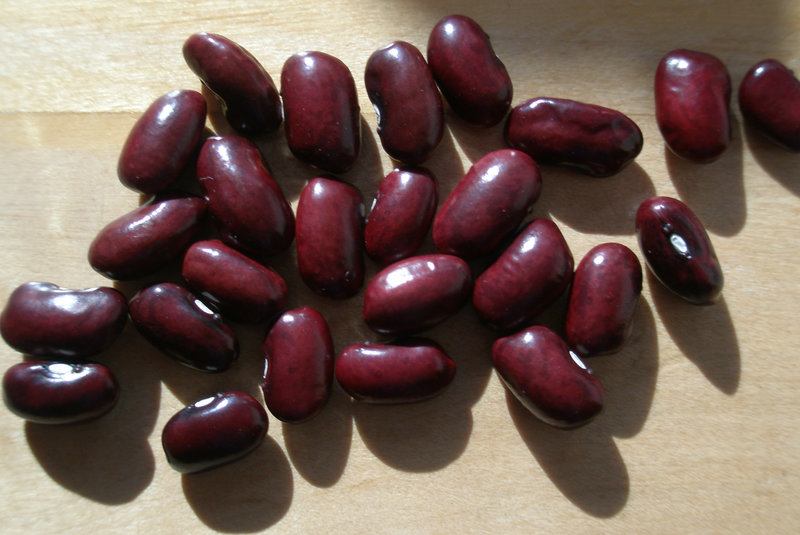
One of the Yellow Eye crossbreeds from 2017 I wanted to grow out for 2018 had four selections from the early harvest to plant. What made this cross interesting to me was that it finished a little earlier than the other Yellow Eye beans.
The first were regular shaped seeds with very slight speckled to no markings at all:
Early Yellow Eye Regular -
Jan 6 2018 (1250K)
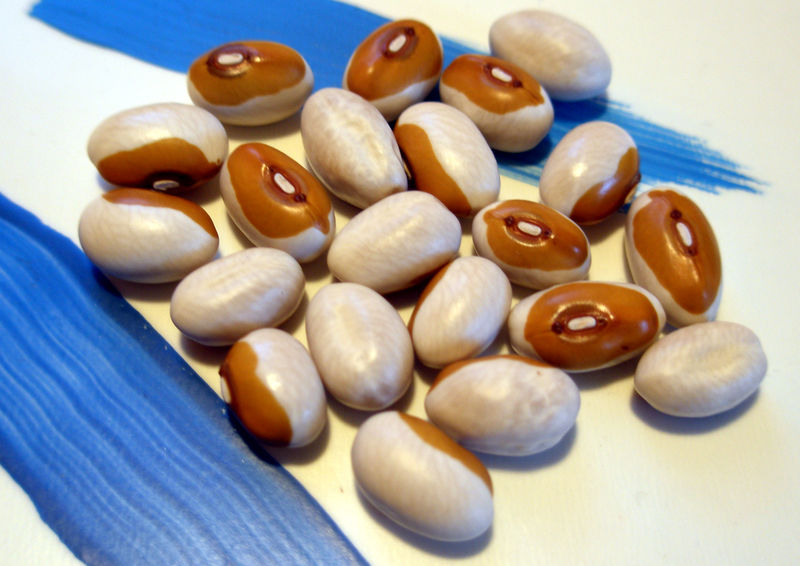
The second had large speckles:
Early Yellow Eye Speckled Large -
Jan 6 2018 (1065K)
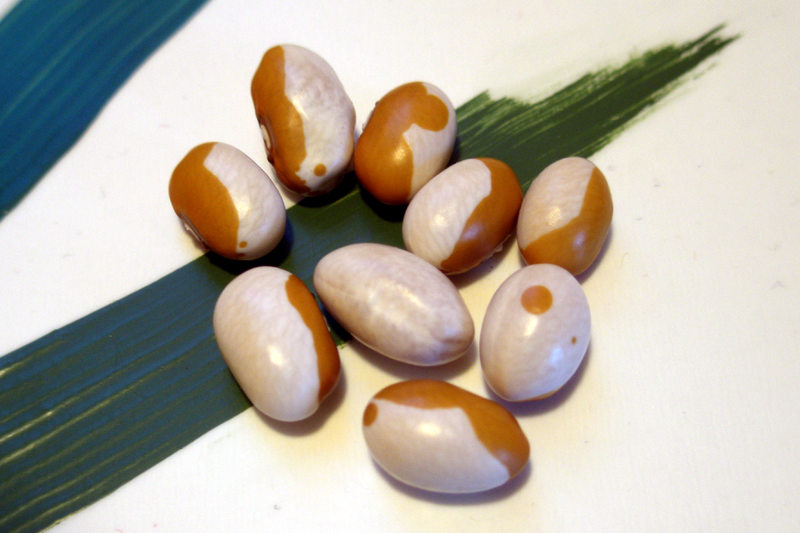
The third were flatter with many small speckles, some had solid color down the side:
Early Yellow Eye Speckled Flat -
Jan 6 2018 (1214K)
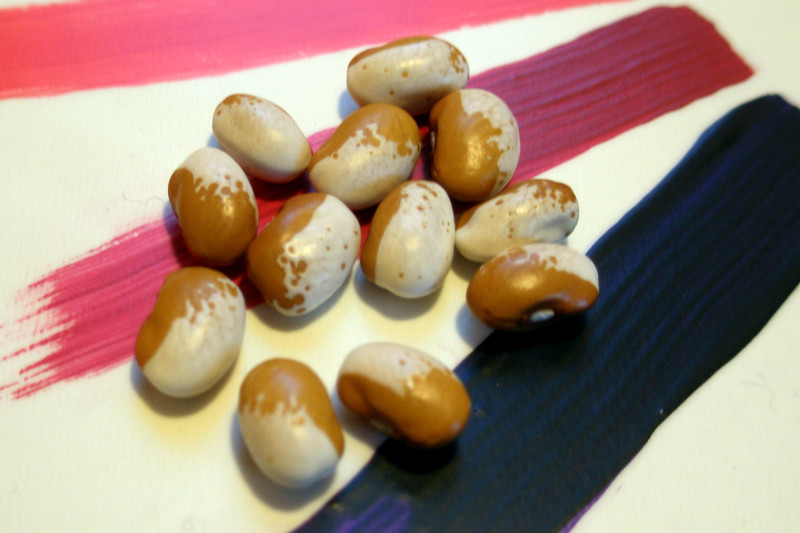
The fourth were more round with many small speckles:
Early Yellow Eye Speckled Round -
Jan 6 2018 (1285K)
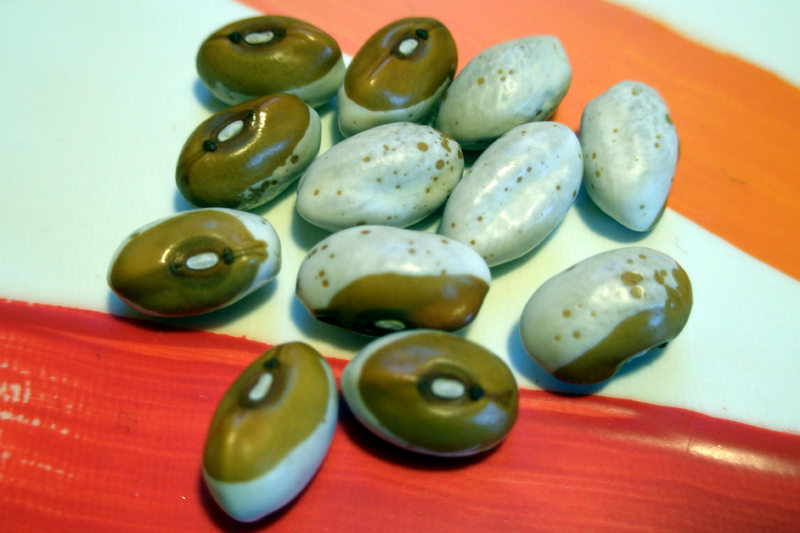
Other selections from 2017.
I’ve never gotten a stable version of this bean, but every time I’ve planted it the results were usually interesting.
Yellow Soldier -
Jan 7 2018 (1286K)
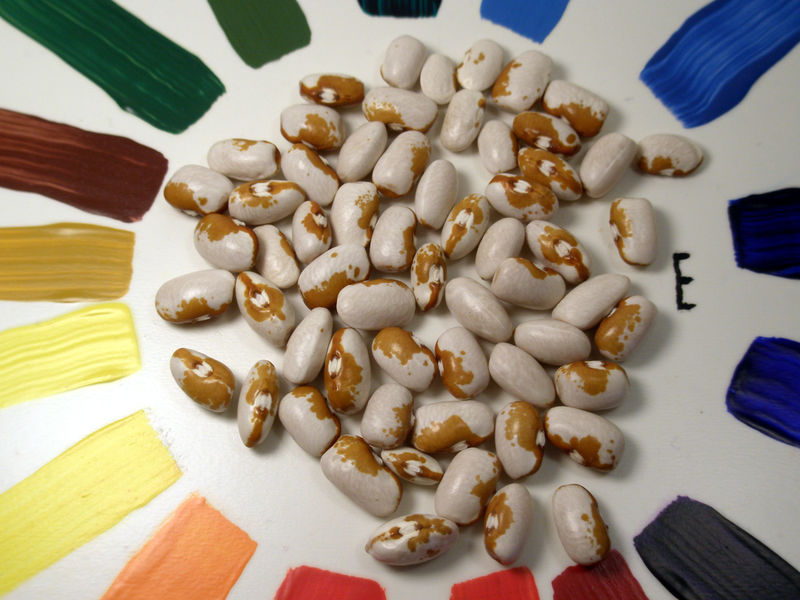
White End Pinto -
Jan 7 2018 (1151K)
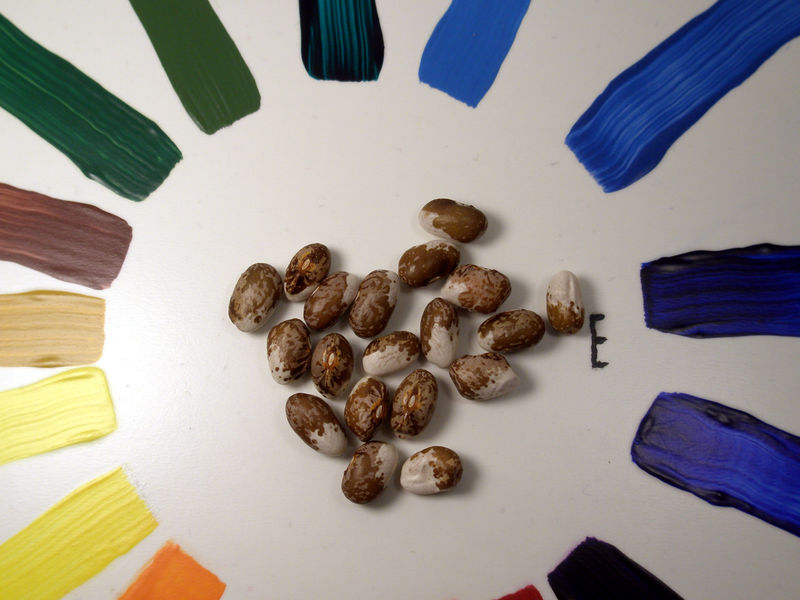
Red White -
Jan 7 2018 (1035K)
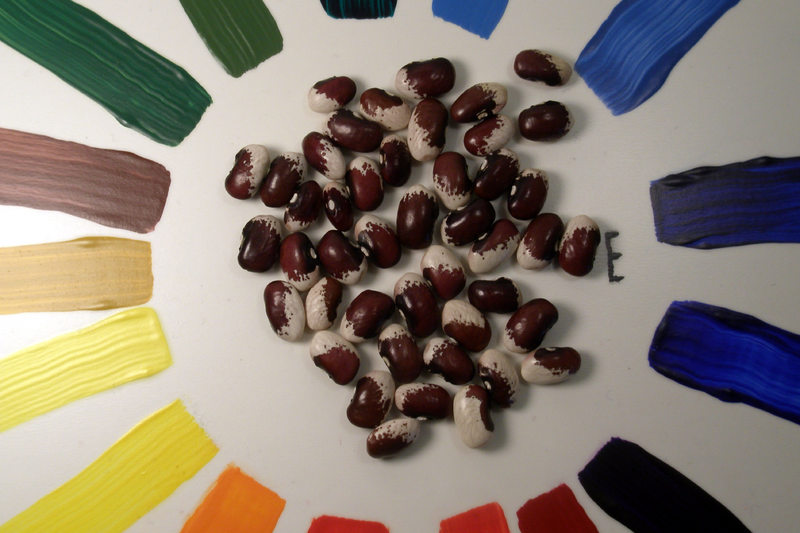
White Black Small -
Jan 7 2018 (1107K)
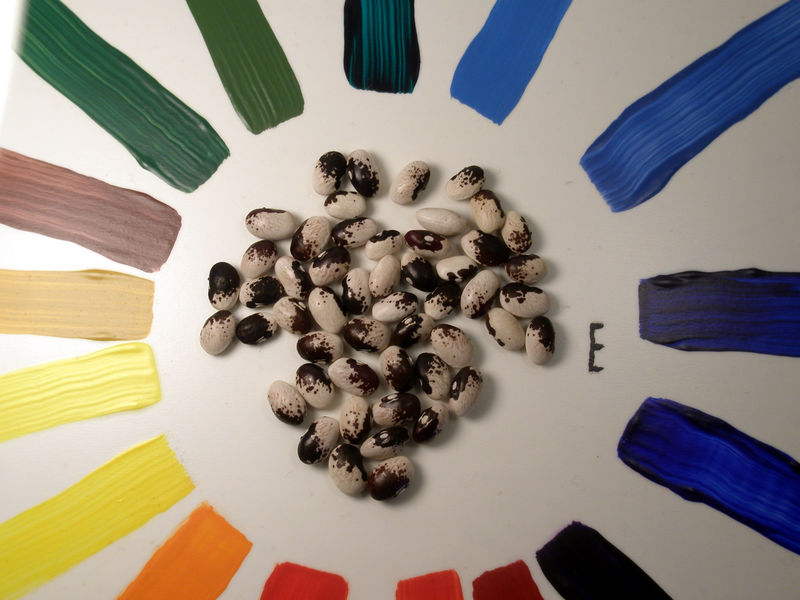
Brown and White -
Jan 8 2018 (1241K)
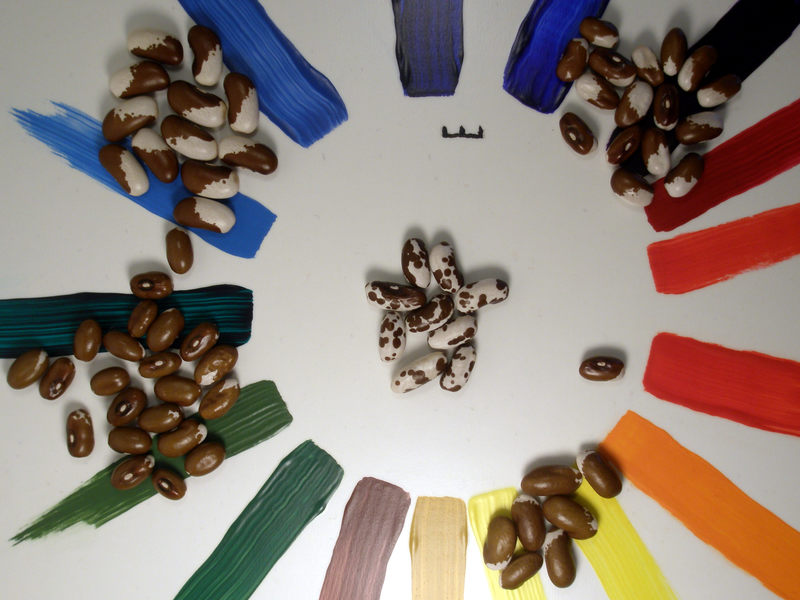
Mixed Bag -
Jan 8 2018 (1250K)
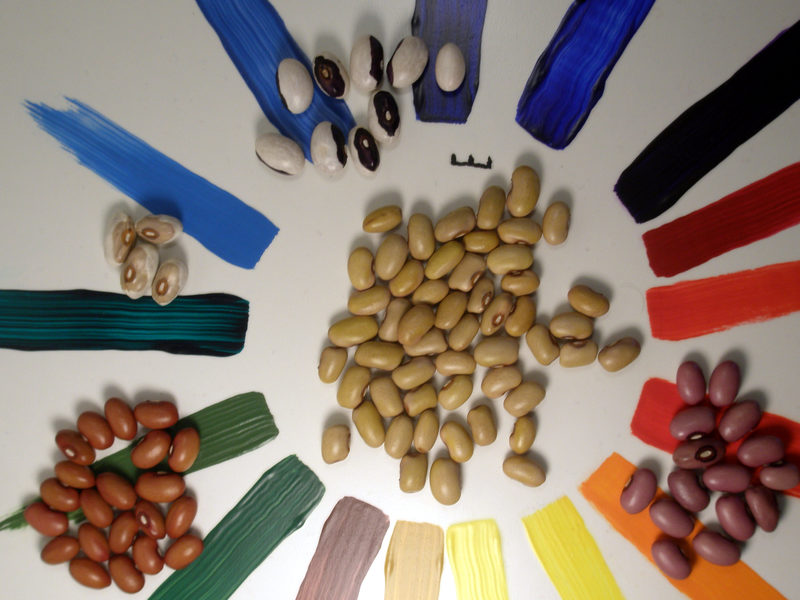
In the sun you can see better:
This bean had been around for several years and I finally grew it enough times that it was stable enough to get a name.
Sunset -
Jan 14 2018 (1272K)
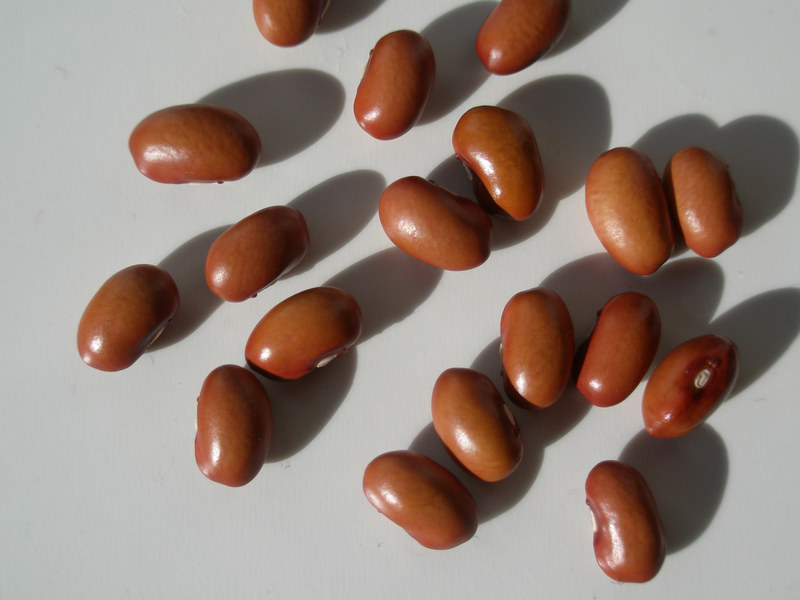
Yellow Hints -
Jan 14 2018 (1250K)
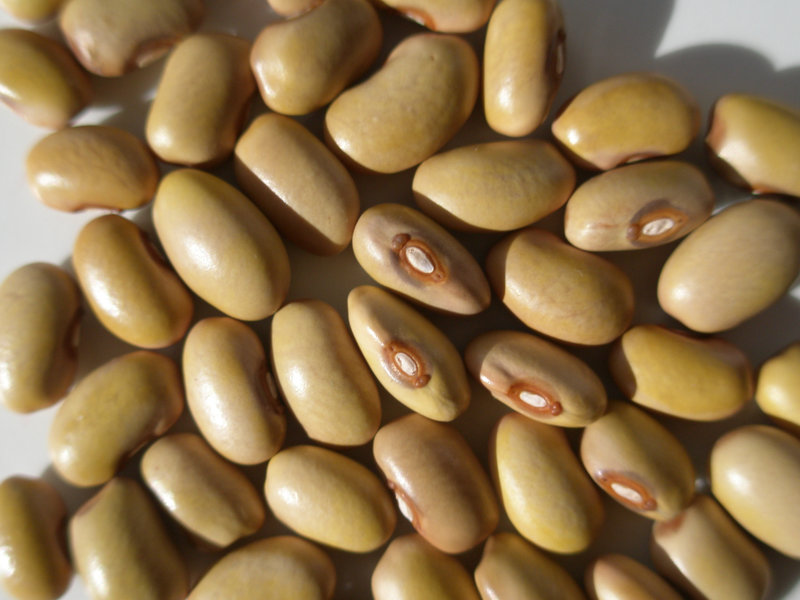
Sadly this was a bean that did not stablize.
Lavender -
Jan 14 2018 (1276K)
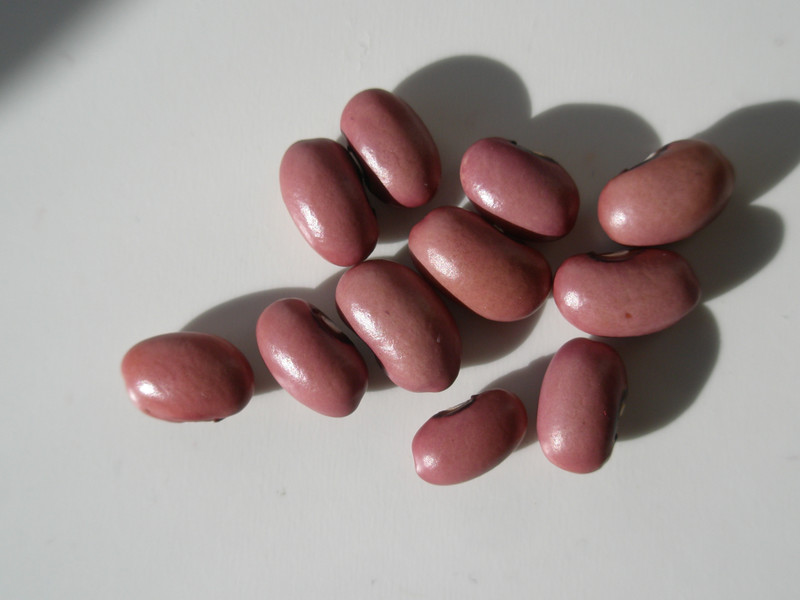
Light Olive -
Jan 14 2018 (1303K)
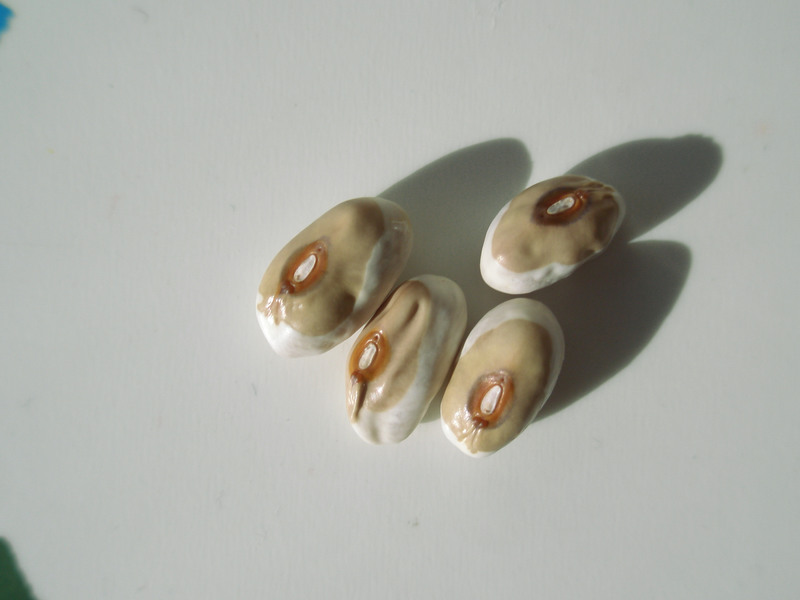
Red Purple White -
Jan 14 2018 (1263K)
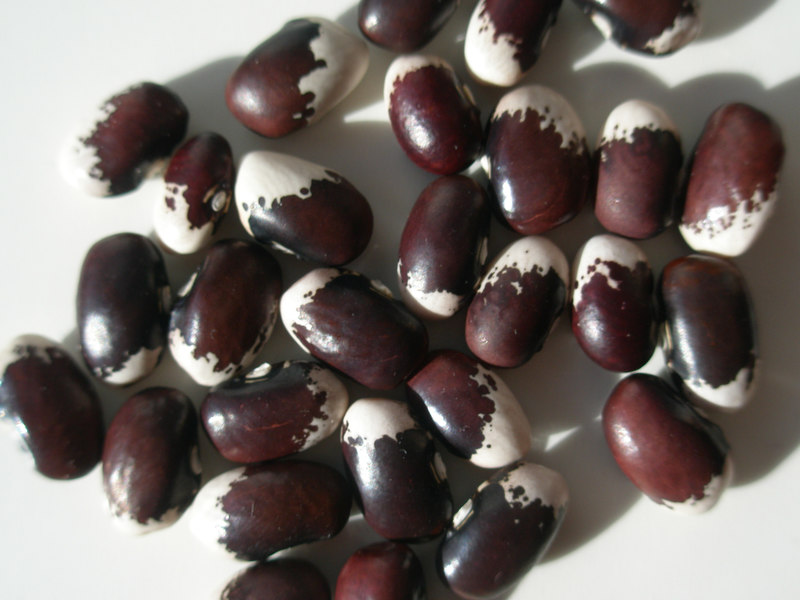
Four More Colors -
Jan 20 2018 (1381K)
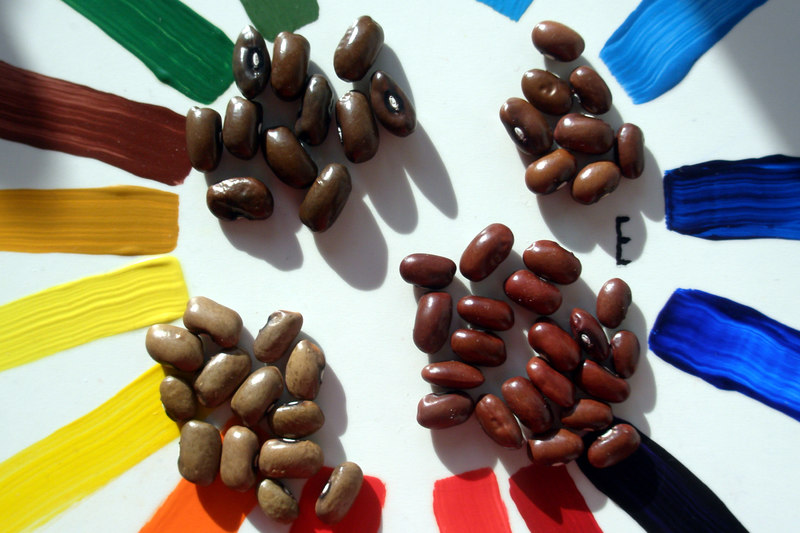
Multiple Layers -
Jan 20 2018 (1381K)
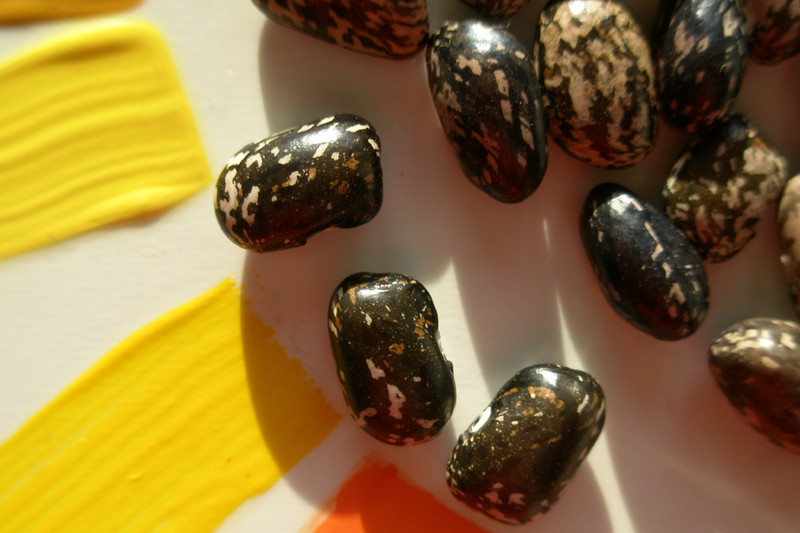
Still Sorting -
Jan 20 2018 (1460K)
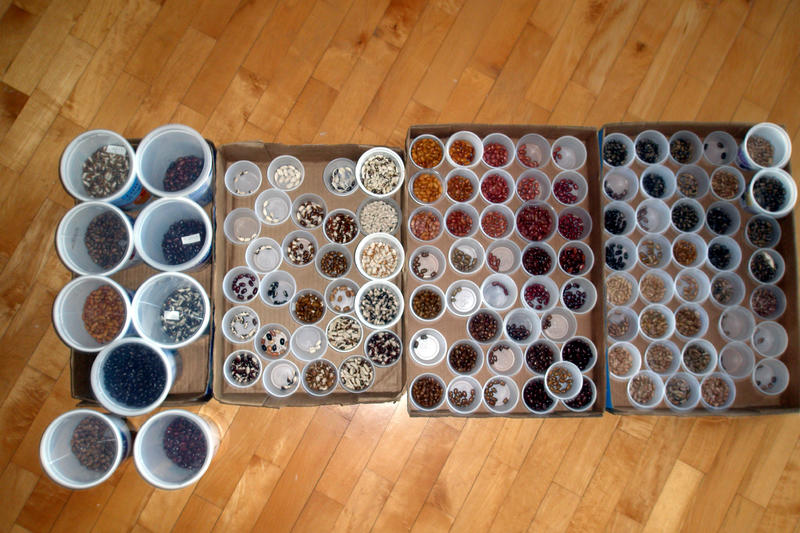
More Recent 2018+:
A new cross. Likely parents are the Tan Goats Eye beans I have grown for several years and either the Pink Tip or the various other derivations from the Yellow Eye beans (also known as Molasses Face). This bean made me so happy to see. Lemon Slice did become stable enough to keep the name and I do still grow it but it will not keep the light background unless put into cold storage (similar to how Cranberry or Horticultural beans will fade to more brown color in time).
Lemon Slice -
Nov 17 2018 (2569K)
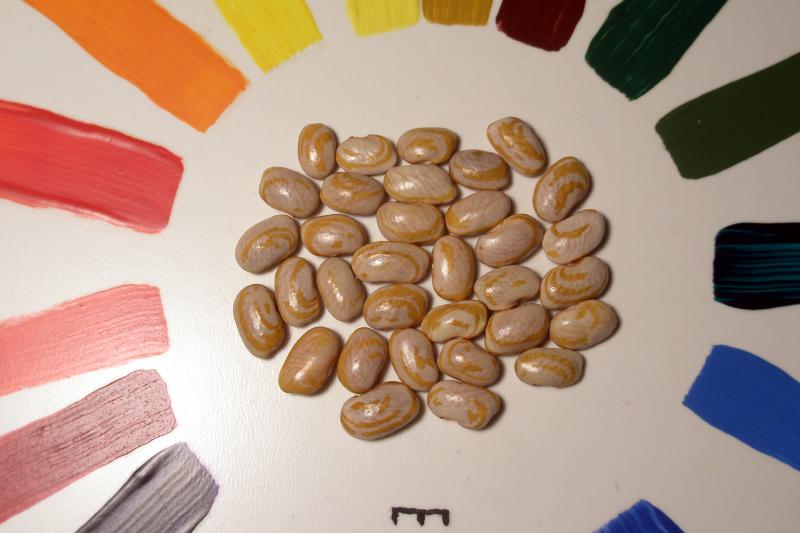
A selection of beans from what was grown this season showing how easy it is to shift the shape of a bean within a few years time by selecting what you are after from crosses that show up. These are likely from a cross between Money and Vermont Appaloosa beans.
Shape Change -
Nov 25 2018 (1324K)
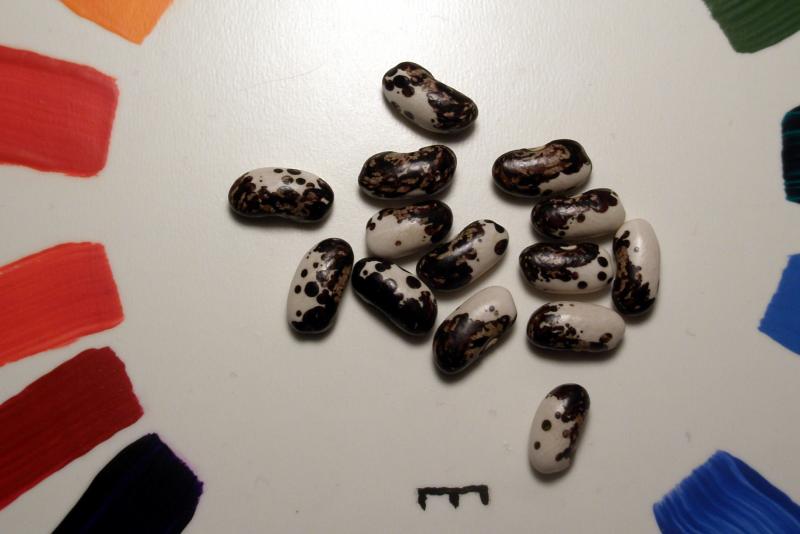
Eleven groups of four each from the half beans. I do not have the yellow ones in this picture so there are more I have grown in my collection. You may not be able to see it easily, but each group is a different color from the others.
Half White Beans -
Nov 25 2018 (1434K)
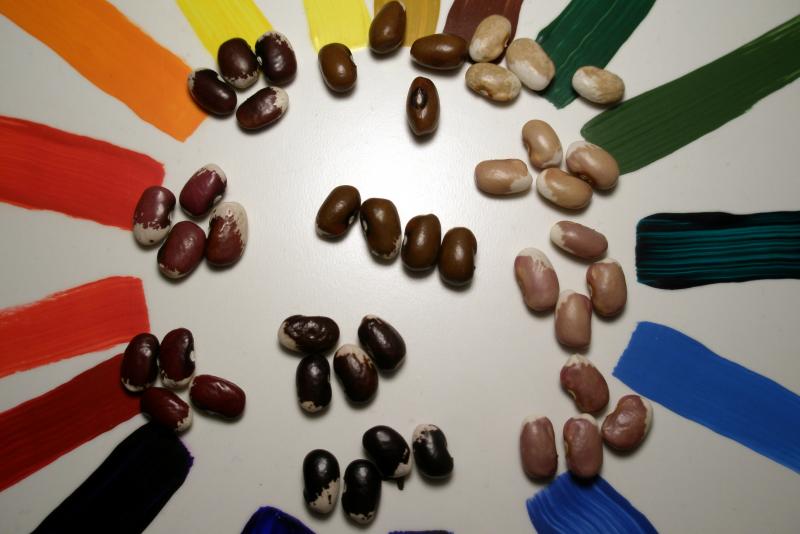
Another of the crosses that has shown up the past few years. I call it Yed because of the combination of yellow and red. What is so distinctive about these beans is the splotchy patterns they make.
Yellow Red Beans aka Yed -
Jan 17 2019 (1408K)
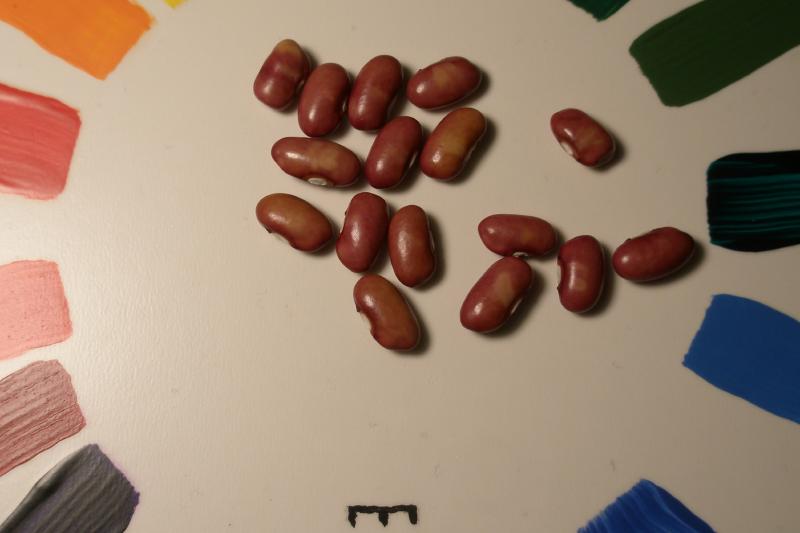
Getting ready to go to a seed swap - how to decide what to take?
Sorting Beans -
Feb 21 2019 (1394K)
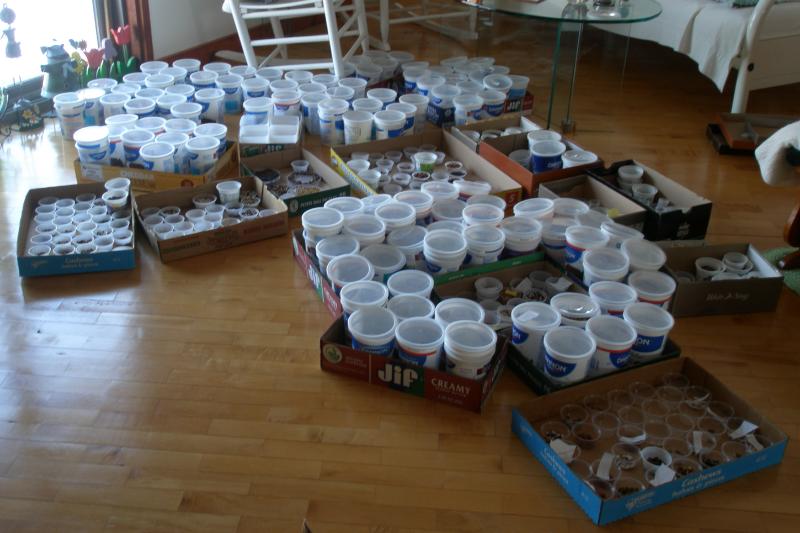
Finally finished up the sorting and winnowing of beans down to a more reasonable number of future samples. I still have way too many brown beans.
Sorting Beans Finished -
Apr 15 2019 (1493K)
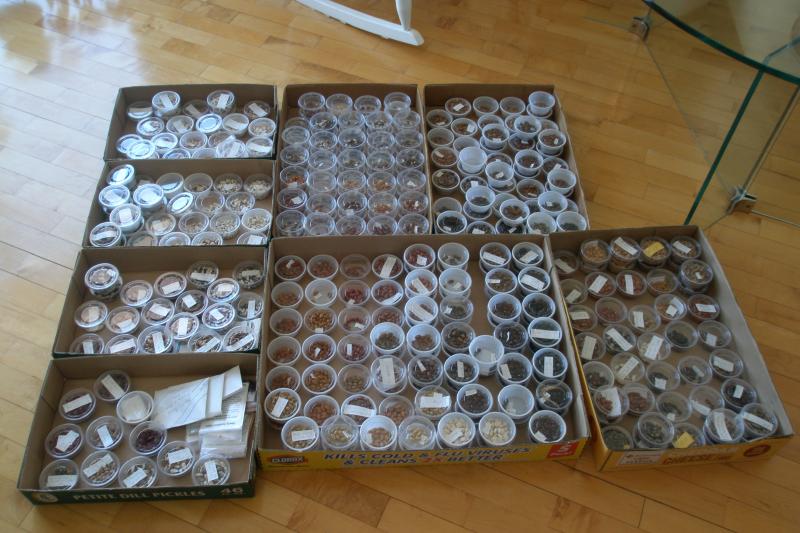
The 2020 season was pretty hot and dry the early summer. The beans are coming along but not doing as well as they would if we’d had a few more rains recently. This is one of the smaller bean gardens, mainly this picture is to show the first four rows from left to right of beans (and only the nearest half) was planted with four varieties of beans to see if they were the same bean or not. Purple Diamond, Purple Dove, Purple Rose and Purple Rain. So far they do look pretty much the same.
Some Beans -
Jul 8 2020 (2993K)
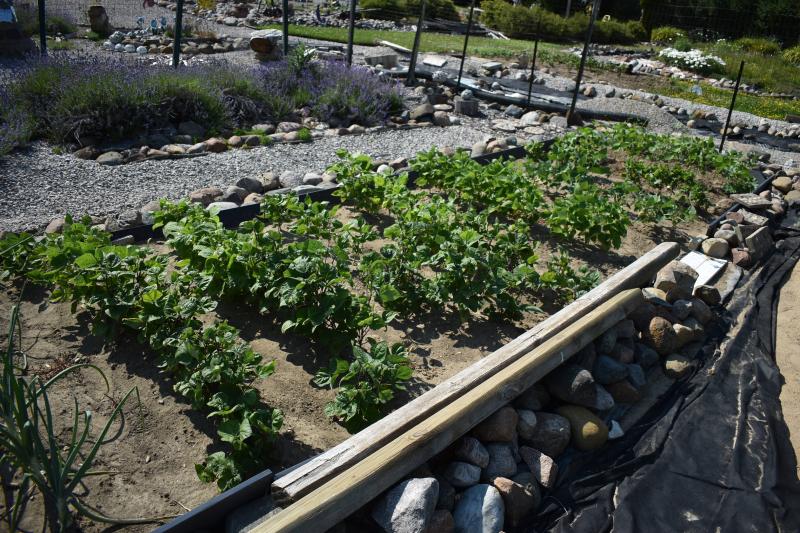
Getting rid of some useless pathways and combining three gardens gave me room for some more bean planting. The gardens on the left is also pretty poor soil with a lot more sand than most of the other gardens I have to work with so I can do tests of how well various beans do in different soil types. These are doing moderately well. The gardens farther back and on the right are lower down and in our more normal mostly clay subsoil - some parts have been amended and turned and other areas were just lightly spaded to provide some pathways for roots to get down, but otherwise not turned or amended.
Combined Gardens -
Jul 8 2020 (3008K)
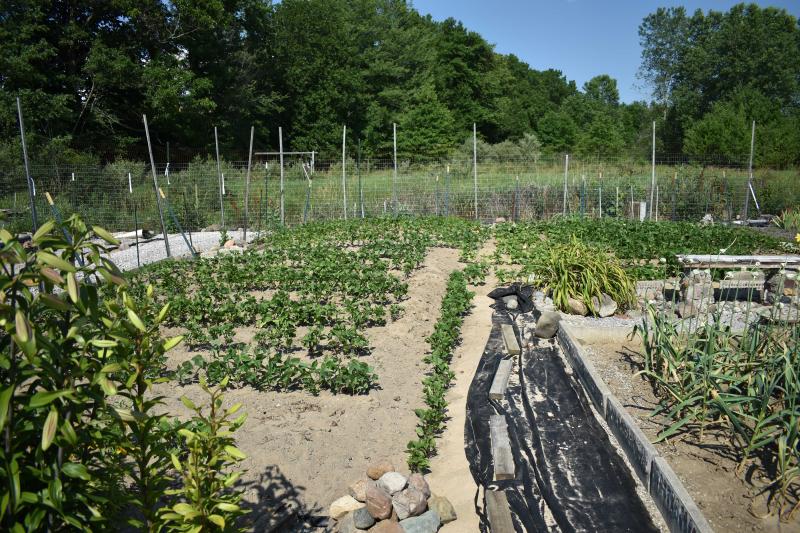
The garden along the south fence and yes, more beans… Also views of part of the tomatoes, and in the background the cucumbers, more tomatoes and the smaller garden in between which has some chewed up broccoli and cauliflower plants, peppers and a cherry tomato plant.
South Beans -
Jul 8 2020 (2877K)
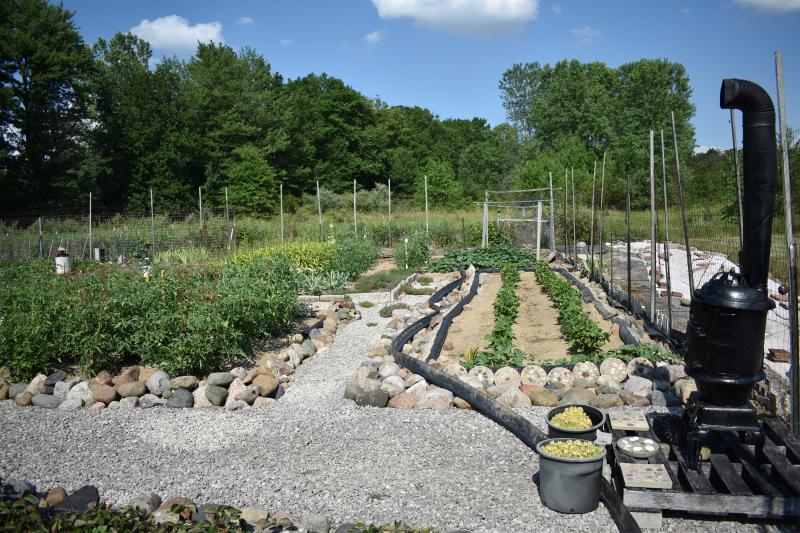
The plants of each type of purple bean are the same growth/habit/size from the four purple beans I planted next to each other so I could get a good comparison in similar soil conditions. These are the pods from (P1) Purple Diamond, (P2) Purple Dove, (P3) Purple Rose and (P4) Purple Rain. Yes, there are some differences so this experiment is giving results. P1 and P4 are about the same with more rounded and narrow beans, P2 is flat and matte finish while P3 has flat and has a more shiny pod.
Purple Beans -
Jul 29 2020 (2388K)
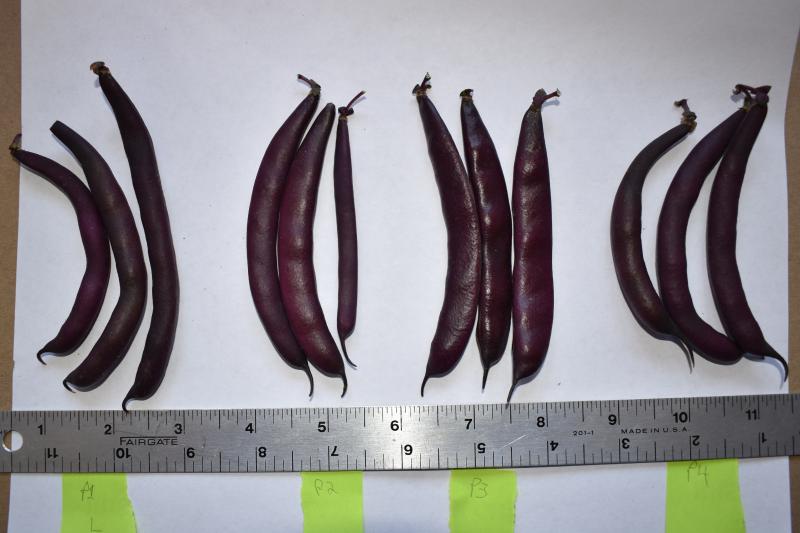
Purple Dove make excellent shelly beans, they are fairly easy to shell once the pod is full and starting to get limp. Also if you take some of the water off as it extracts the pigments from the skins it can be used as a pH indicator (use distilled water) which is similar to how red cabbage juice can also be used as an indicator. They do take a bit longer than some other beans to get the skins tender, but that is ok with us. For flavor these beans are like a Pinto bean but the flavor is not as strong and the texture is creamy.
Purple Dove Shellies -
Oct 7 2020 (2414K)
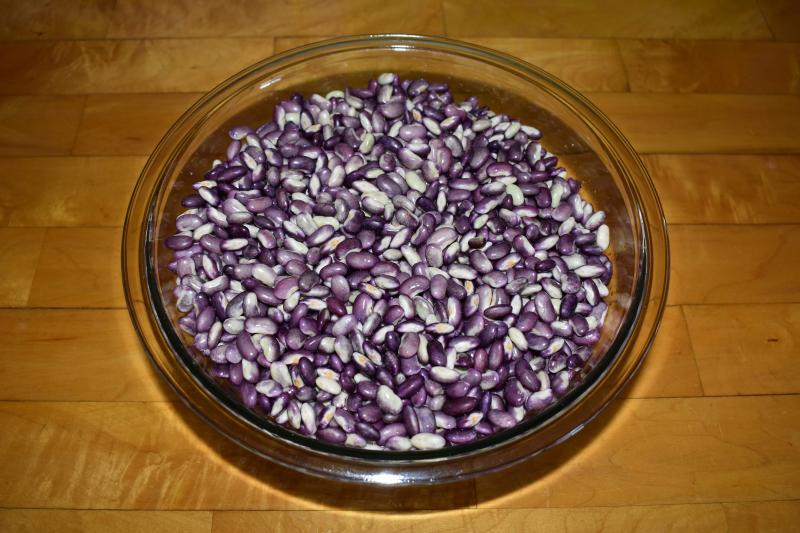
I’m not sure yet of the parents of Purple Dove, but I’m starting to get a few clues (notice the lines).
So far in all of my shelling out of many thousand Purple Dove there is only one bean with the dark/odd mark.
Purple Dove Markings -
Oct 7 2020 (2685K)
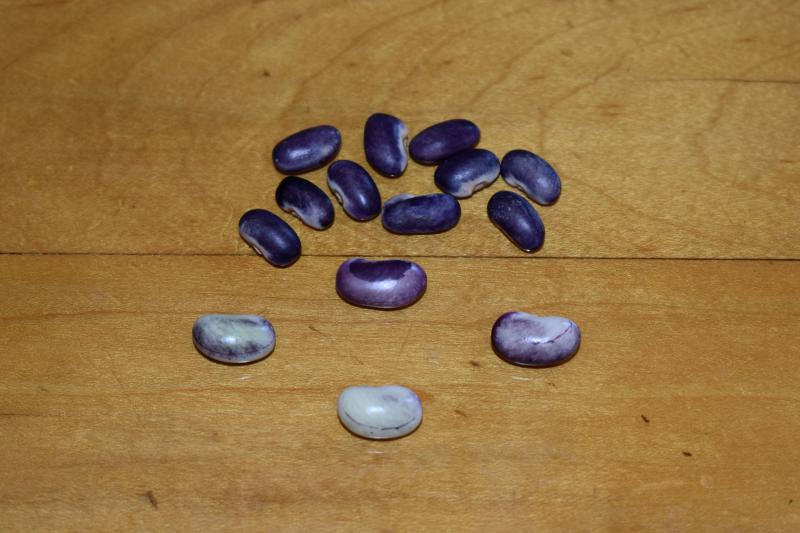
The bulk Purple Dove dry beans showing the variations in color due to differences in soil types. The lighter colors were planted in poorer soil with little or no organic matter.
Purple Dove Lineup -
Nov 22 2020 (3360K)
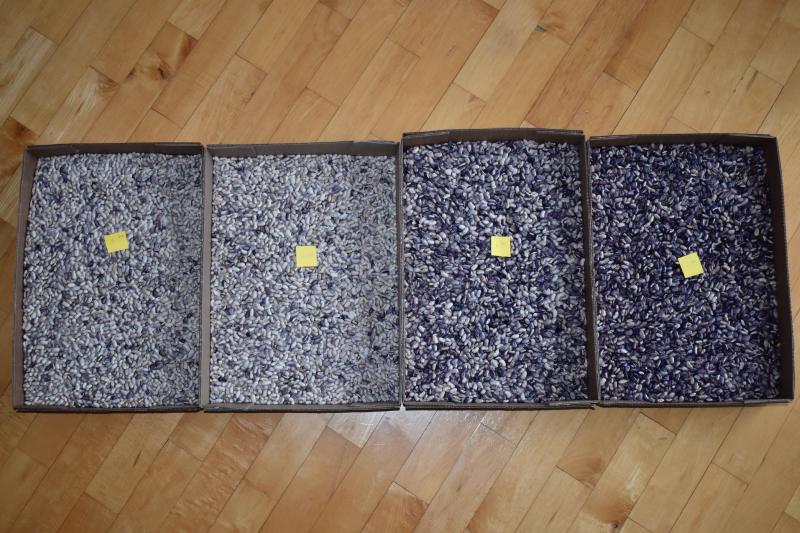
Purple Dove dry beans showing lighter colors from beans planted in poorer soil with little or no organic matter.
Purple Dove Light -
Nov 22 2020 (2715K)
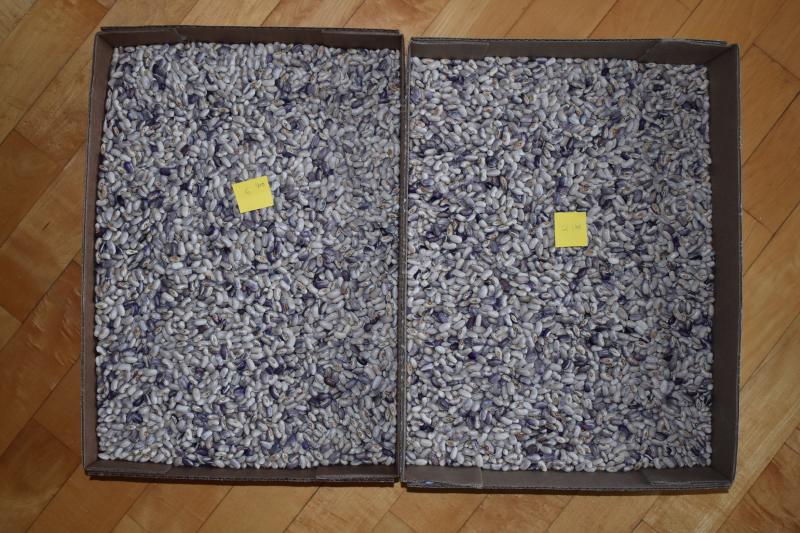
Purple Dove dry beans showing darker colors from beans planted in better soil with more organic matter.
Purple Dove Dark -
Nov 22 2020 (3086K)
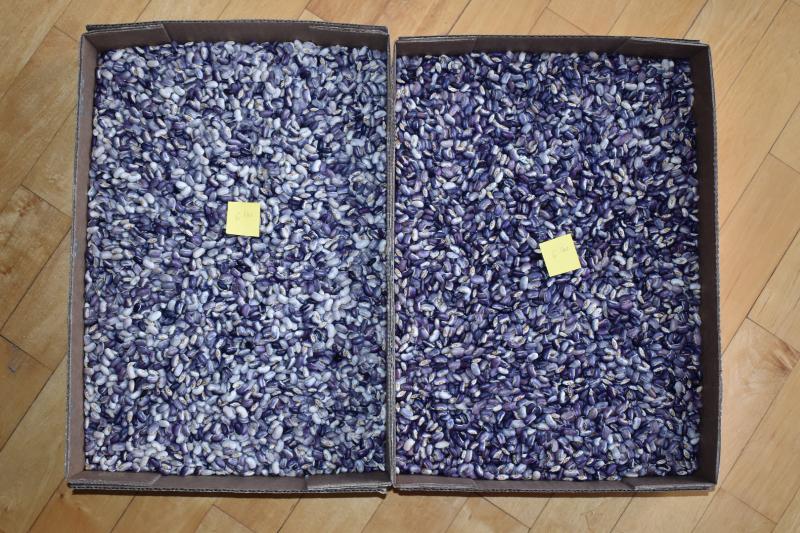
Some other bulk dry beans. Red Ryder, Hendersons Bush Lima and Huey.
Three Beans -
Nov 22 2020 (2838K)
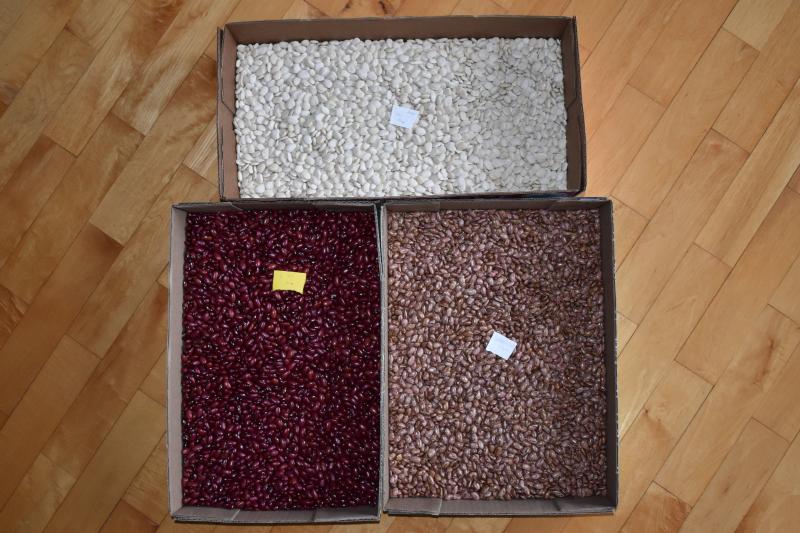
In 2018 I planted some beans I called Tan Goats Eye Misfits and no two were the same. I also had found in previous years a similar bean I really liked and I started calling it Reddish Pere (because it came from a selection from the blend Peregion I call Tan Goats Eye and also had some relation to Red Ryder or an outcross from Red Ryder). After a few years of growing and selecting the beans I wanted it was stable enough to name Huey (for Pinkish Hue - which is a bit of a joke from the comedy series Seinfeld). The pink color in the background and a bit of darker pink around the hilum are distinctive when compared to the other tan striped beans I grow. Huey is a semi-runner dry bean but I will continue to select more for the bush growth habit. They are also good as a shelly bean as they come right out of the pod when they are plump, but may need be to cooked long enough to get the skins tender. So far I am pretty happy with the productivity and earlyness of this bean. The surprise to me from this bean is that it is not as firm when cooked as the Tan Goats Eye bean so it can be treated like any other small kidney bean.
Huey -
Nov 22 2020 (3897K)
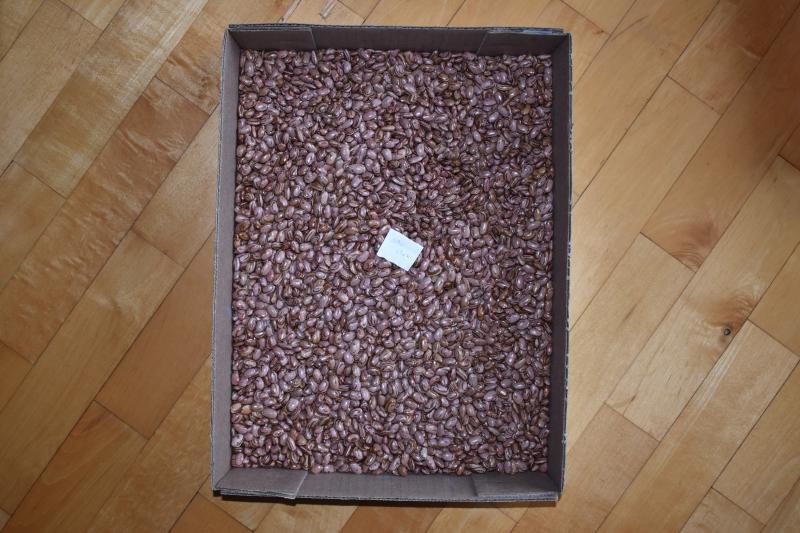
I always enjoy seeing what may happen next with a bean, in this case it was Pheasant that I planted and hoped to get back the same pattern. I did get Pheasant to come back again so a good chance it will eventually become stable, but I also had some variations including this one. I have been planting Molasses Face (aka Yellow Eye) selections for years with speckles in them. Each year some do come back so they may have crossed with some variation of the Top Notch bean that was one of the likely parents of Pheasant or perhaps the Yellow Eye Speckled bean crossed with Pheasant. Hard to tell exactly without genetic analysis.
I did play with the colors in this image to bring out some of the finer details, but you won’t see those just looking at them if you held them in your hand. Yes, I did cheat a bit, but in the good name of having fun and learning something. Next time I update this page I’ll put a less played with version too.
Pheasant Child With Spots -
Jan 24 2021 (3725K)
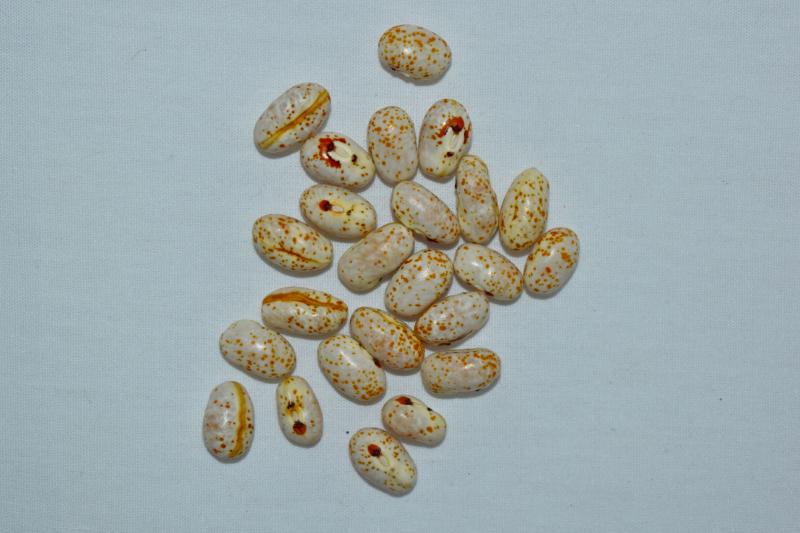
Ok, this is a less color enhanced version of the Spotted Pheasant beans.
Pheasant Child With Spots Less Color Enhanced -
Jan 24 2021 (3844K)
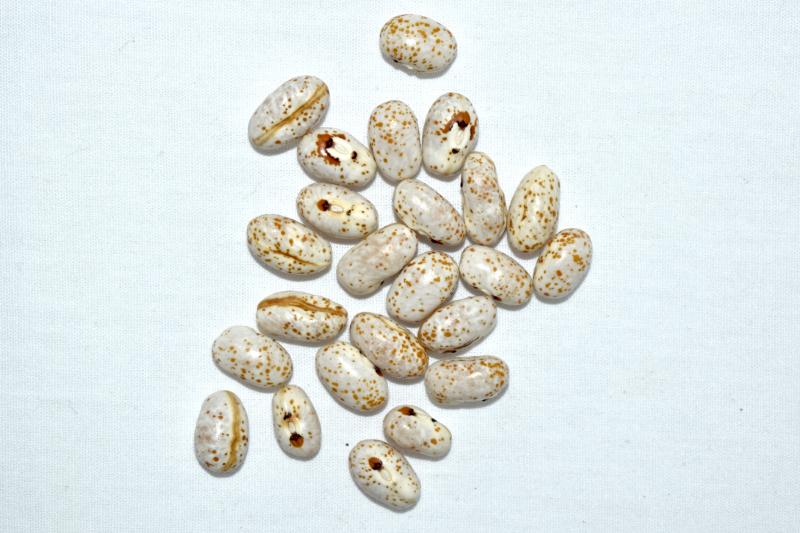
SEASONS 2021:
The beans in packages from the 2020 growing season, or at least most of them.
Mostly Sorted -
Jan 28 2021 (3352K)
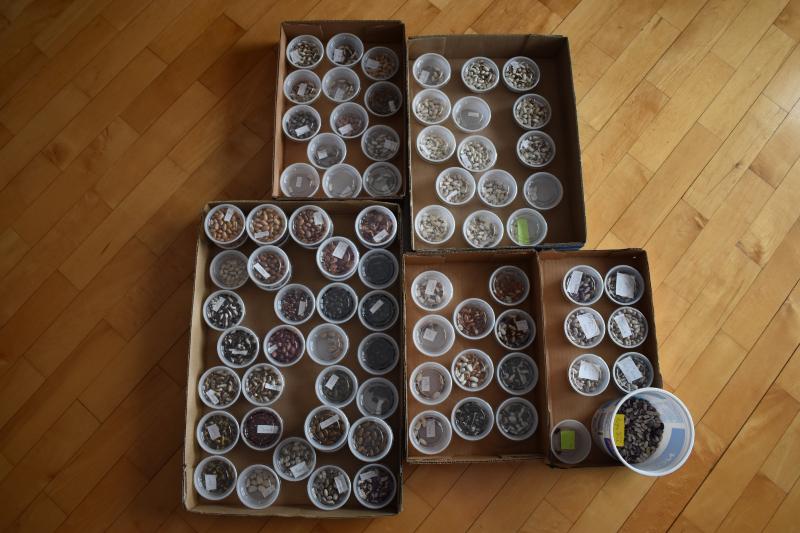
Seven of the Monster Children from the past growing season.
Monster Children -
Jan 28 2021 (3838K)
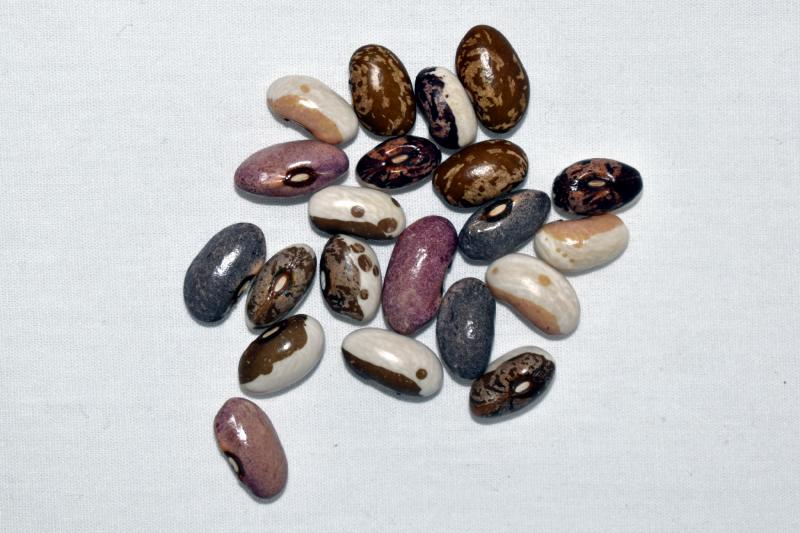
Six of the Domino Children from the past growing season.
Domino Children -
Jan 28 2021 (3711K)
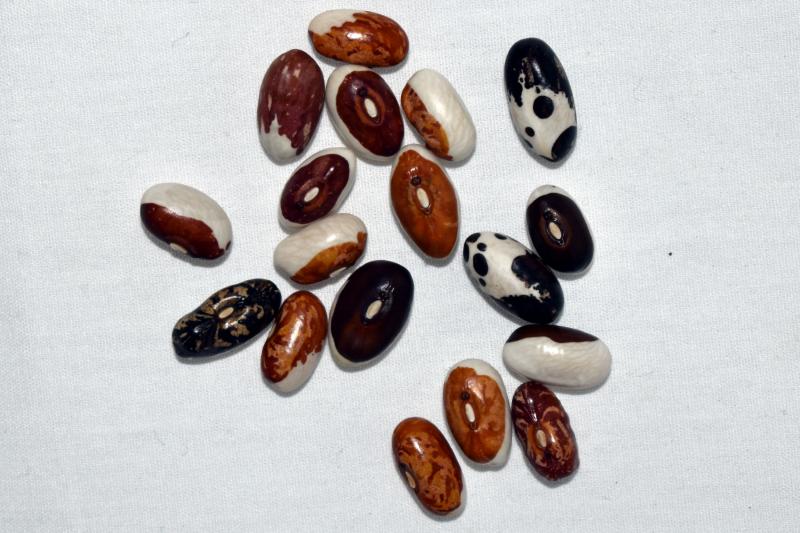
The last bean garden planted for this season. I didn’t quite get to the end like I’d wanted in this garden, but now I have the rest of the summer to finish it. It will be much easier to take care of this entire garden having the edges under more control.
Last Planted Beans -
Jun 13 2021 (4537K)
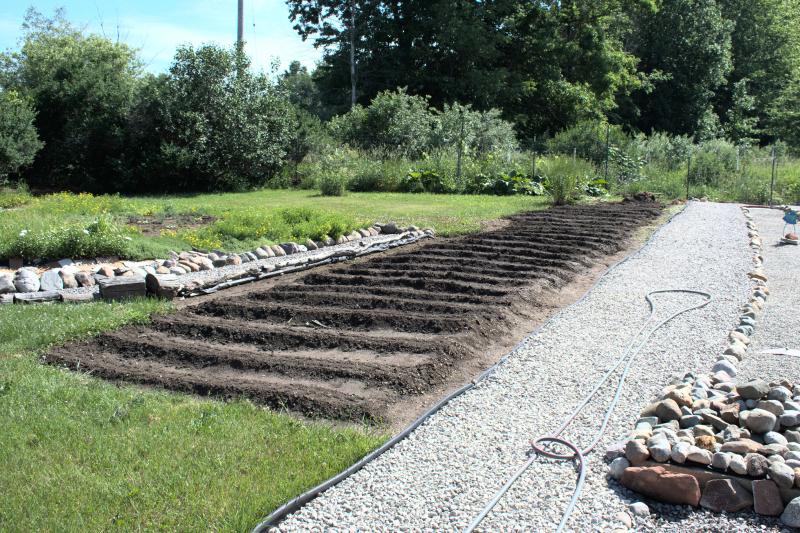
The 2021 beans are up and growing with only a few failures in germination that I can tell. I thought the Fort Portal Jade were going to give up but they are still hanging on and now with these cooler days and more rains perhaps they’ll actually get some pods. I won’t know until it happens. The neighboring Purple Dove beans were planted a week later and have reached triple the size of the FPJs. You can barely see the FPJs behind the PDs, but they are there next to the peas.
Early Bean Planting -
Jun 23 2021 (4217K)
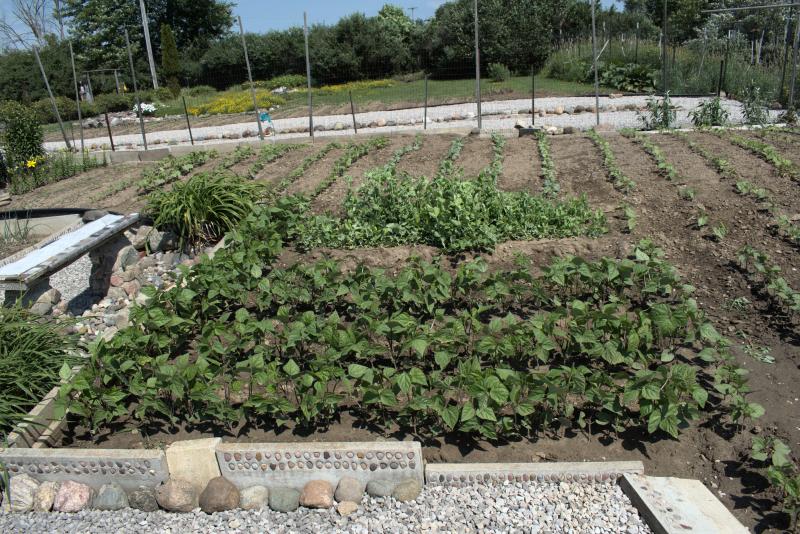
I have a row of edamame soybeans in front of the tomatoes and they both are doing good so far. I just hope the groundhogs don’t find them.
Soybeans Tomatoes -
Jun 23 2021 (4238K)
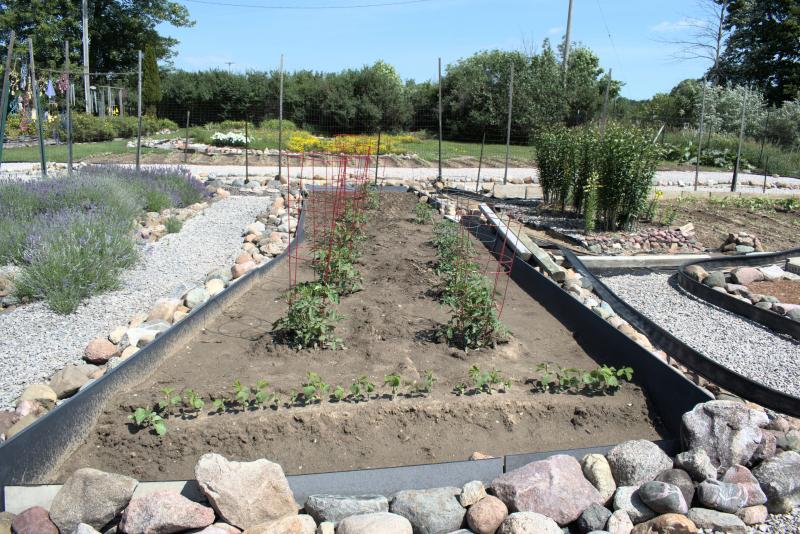
The Adzuki beans on the left, a row of some other bean and then the Shelleasy x Soldier is in the 4th row - you can tell which one it is by how big the plants are already. Big seeds can get some big plants.
Old Tulip Garden -
Jun 23 2021 (4467K)
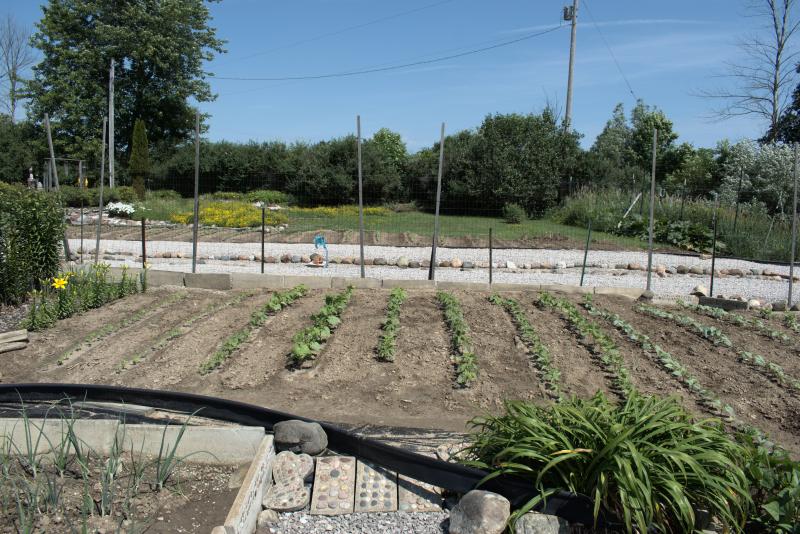
The beans along the south edge of the fenced garden (the SE Garden). Since I had planted beans for two rows for several years in a row I decided this season to just put one row down the middle. In the background you can see yet another bean garden in the SE corner.
SE Garden -
Jun 23 2021 (3787K)
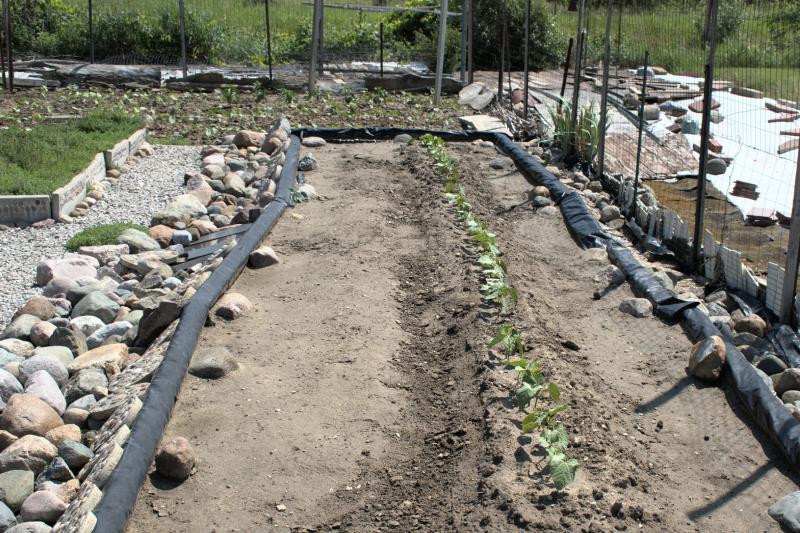
One of the Monster Children I planted this year was a pale very light tan and it grew out as a copy in pattern of the Dapple Gray, but it is Dapple Pink instead. So much fun to see these. They might age to the tan color - we’ll see.
Dapple Pink -
Aug 22 2021 (3814K)
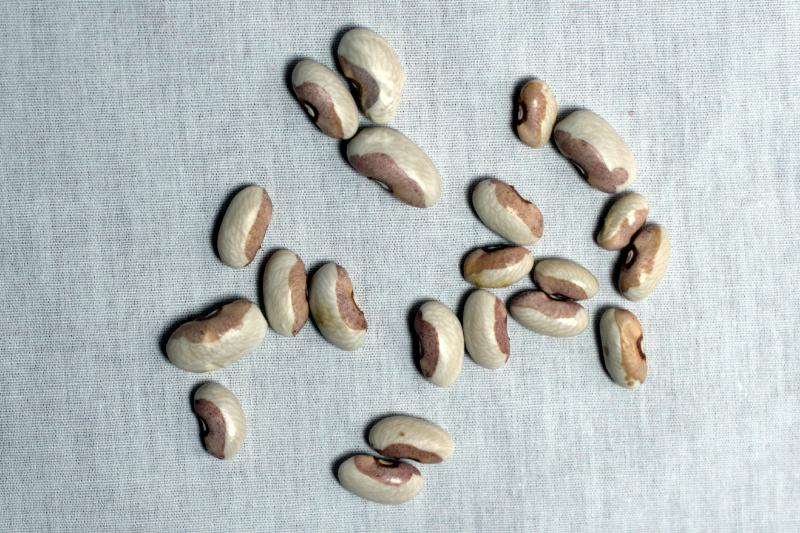
Another of the Monster Children I planted this year that I was hoping would be more stable but it continues to give off variations including going back to the parent Dapple Gray.
Monster Children -
Aug 22 2021 (3225K)
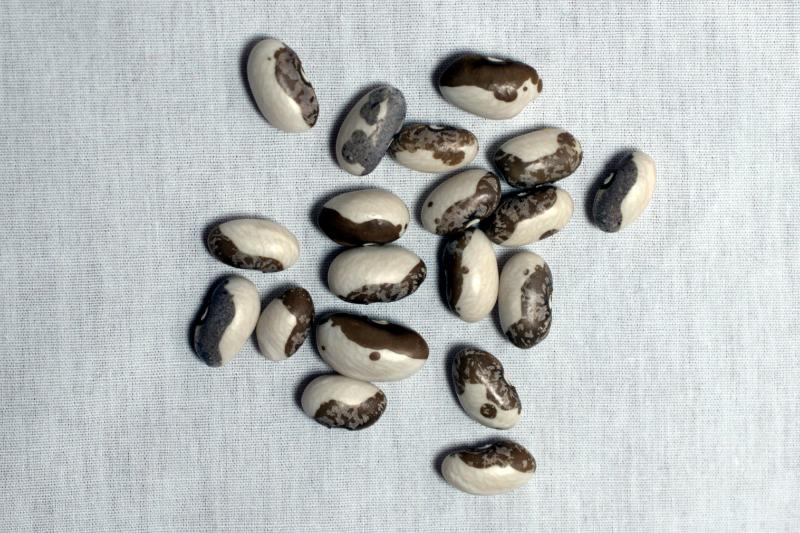
More Monster Children and Lemon Slice. If the solid gray persists through two more plantings I have the perfect name for it already picked out.
Today -
Aug 26 2021 (3851K)
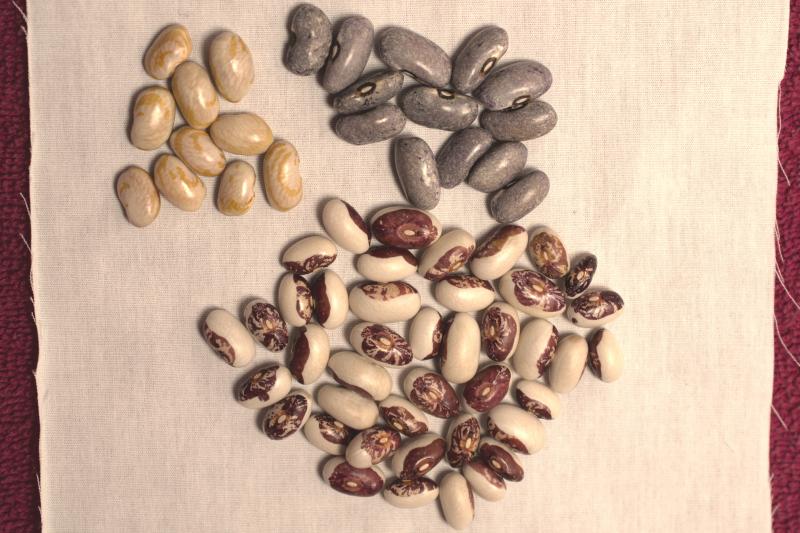
In the many years of shelling out all these beans I’ve not seen two beans connected so tightly together that they looked like siamese twins. Also some reverse patterns in the Huey beans and a few regular Huey beans.
Huey Twins -
Aug 28 2021 (3644K)
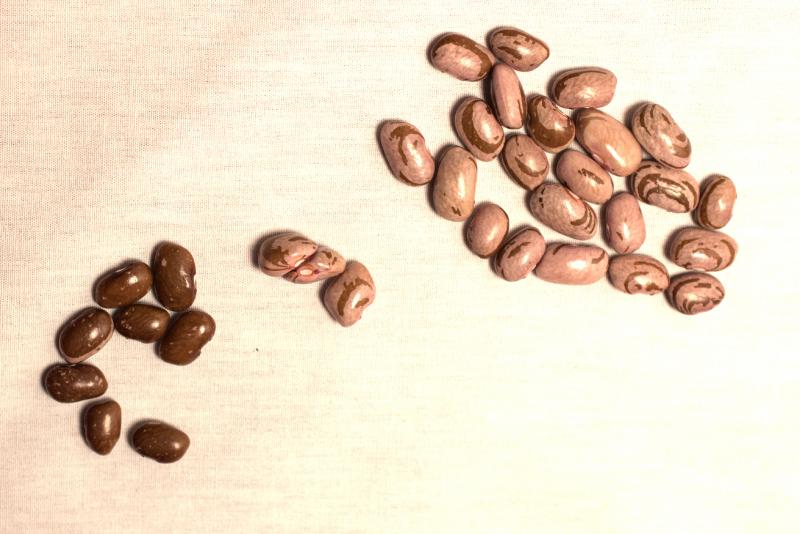
Domino Children from the other clan (the Reds, Yellows and Oranges).
Other Clan -
Aug 28 2021 (3850K)
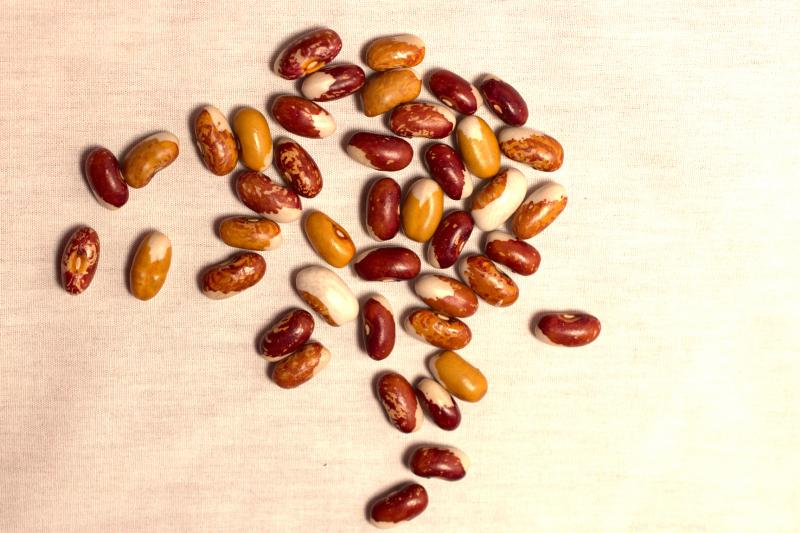
Spotted Pheasant at varying stages of drying down which shows the pink color as they look at the shelly stage.
Spotted Pheasant Drying Down -
Oct 1 2021 (3492K)
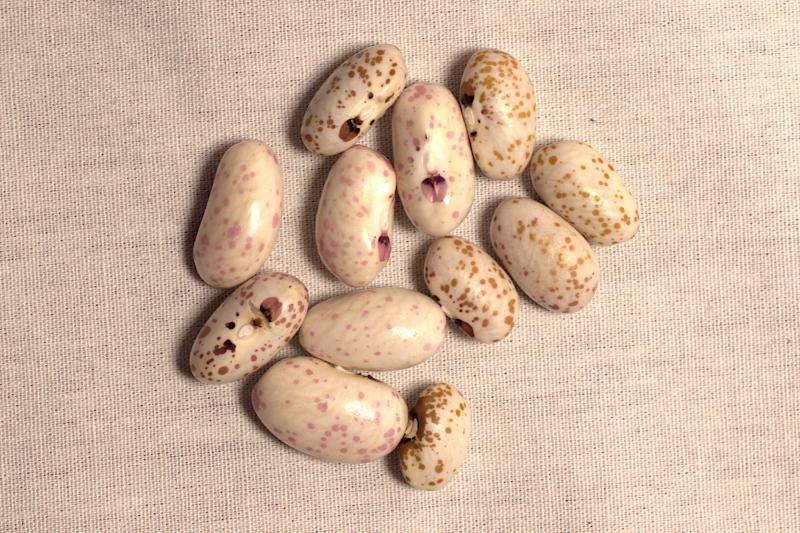
My grow outs for last year of this variety didn’t give me much to work with for this year, but I tried anyways. I have a few that might work out for further growing yet these were picked yesterday and I don’t think any of these are even close to what I want to grow again. Still I do like the color and pattern on some of these. The aspects I do not really want are pole beans, the shape of the bean and the color is completely wrong from the Sacre Bleu beans I planted last year.
Sacre Blue Off Type -
Oct 13 2021 (3913K)
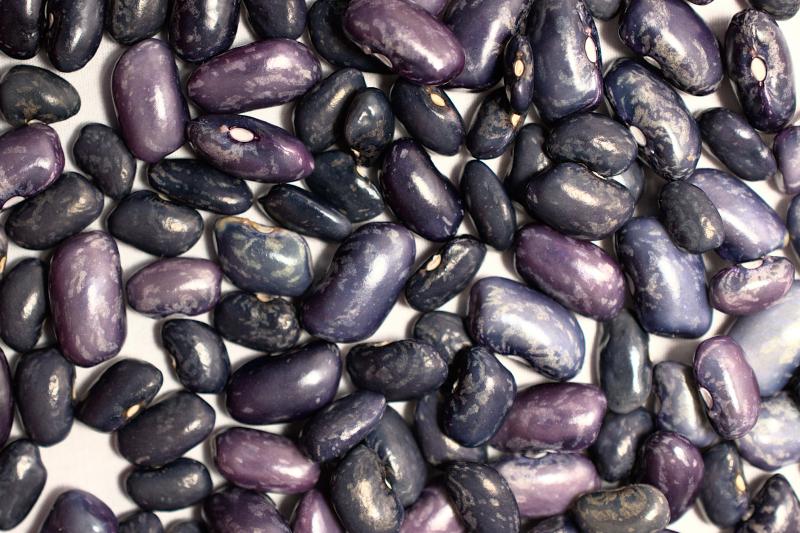
Yed is a long season bean for me and I’d love to be able to do something more with it because it has such an interesting pattern to it at times. This year some of the beans have been very brightly colored almost to a lime green.
Yed -
Oct 31 2021 (2723K)
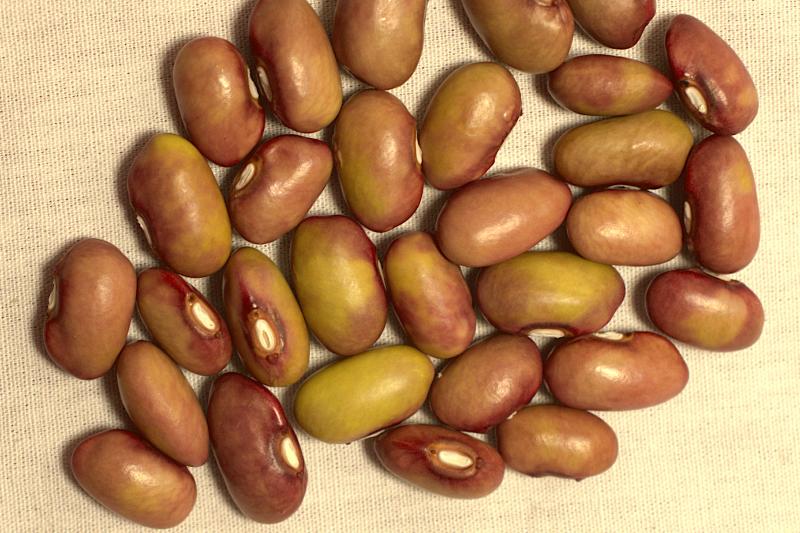
Here is a much better picture - the sun finally came out.
Yed -
Oct 31 2021 (3668K)
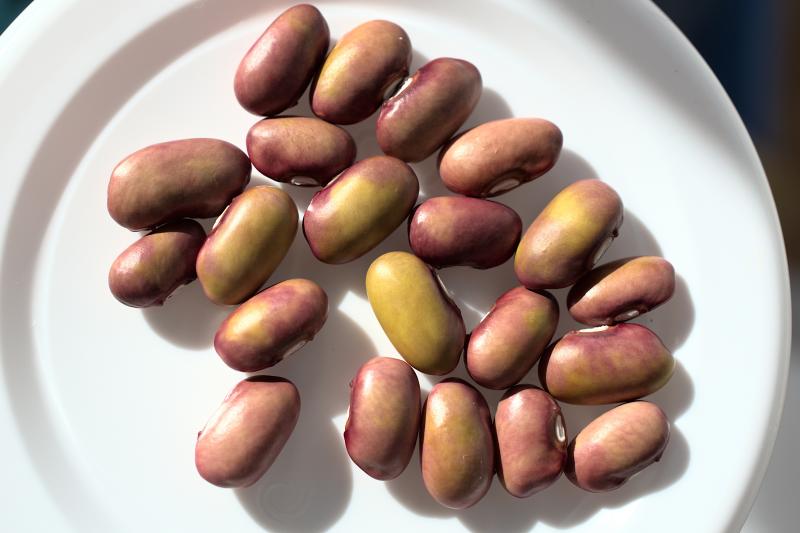
Two of the Monster Children beans, a more red color which I have been after for a long time and a more orange colored bean.
Red and Orange MC -
Dec 13 2021 (4644K)
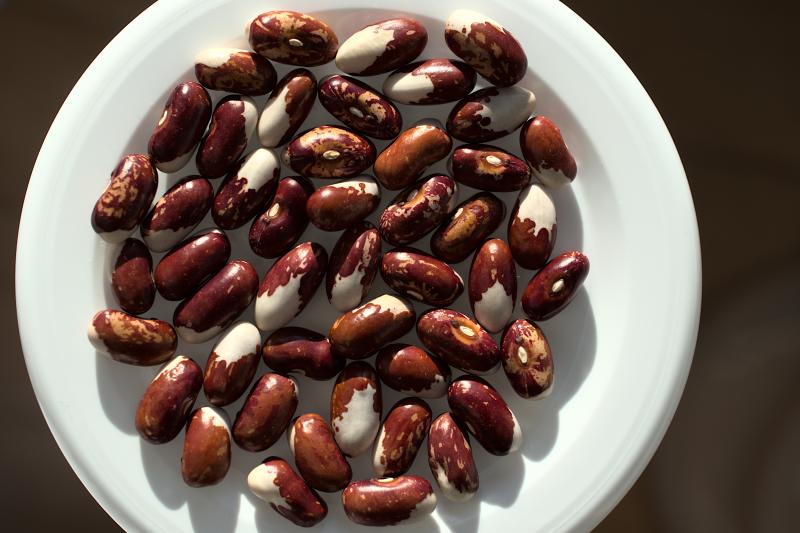
A few beans that Russell Crow sent to me as he wasn’t planning on growing them any more so I can see what they will do here. I’m calling them Santa beans for the moment since I don’t know if they are stable or not.
Two Santa Beans -
Dec 13 2021 (4240K)
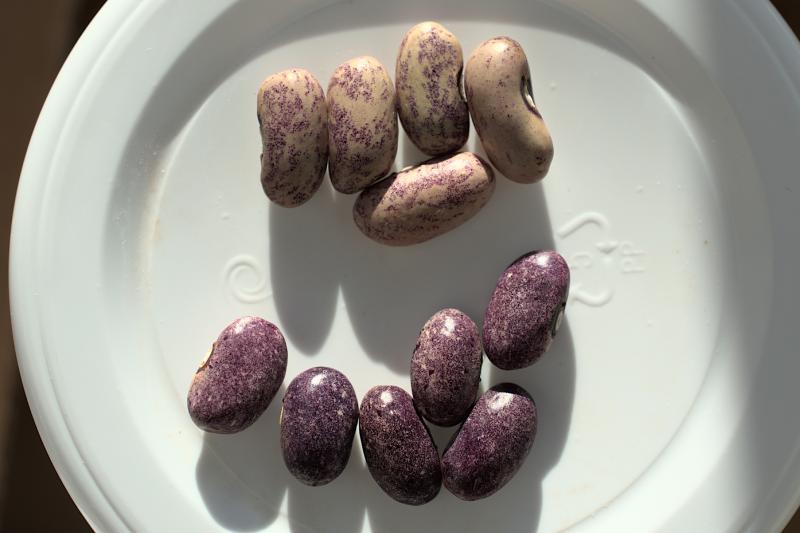
And another that Russell Crow sent and I’ll call this one Santa Purple for now.
Santa Purple -
Dec 13 2021 (3785K)
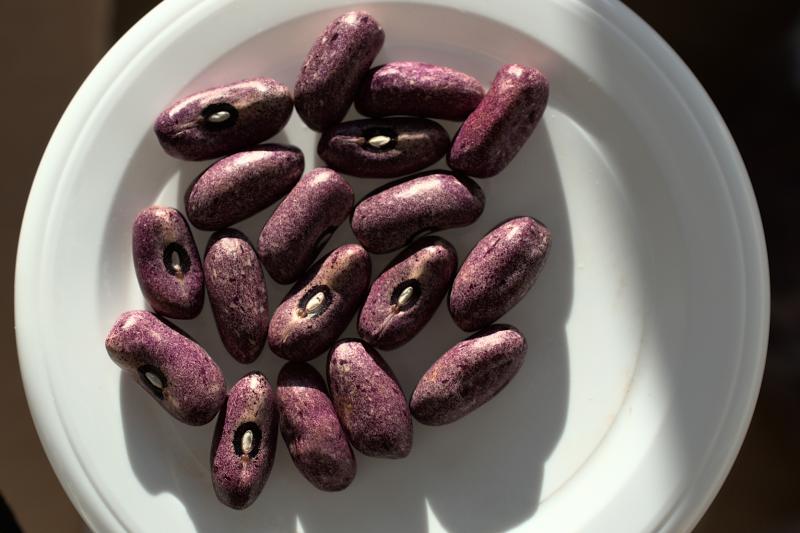
A mix of various colors of beans.
Mix -
Dec 20 2021 (4745K)
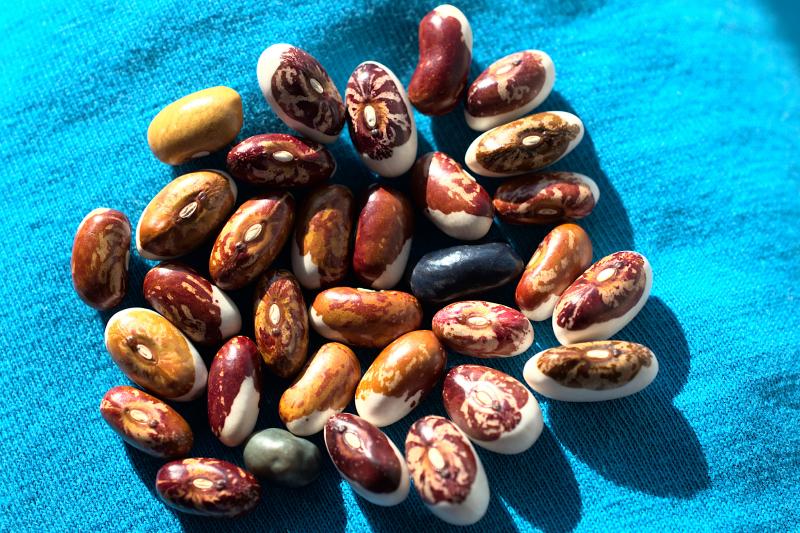
SEASONS 2022:
Fort Portal Jade beans grown in pots because they do not like it when I try to grow them outside in the gardens. I was down to my last four seeds and only two of them lived to flowering stage.
Fort Portal Jade -
Jul 29 2022 (4889K)
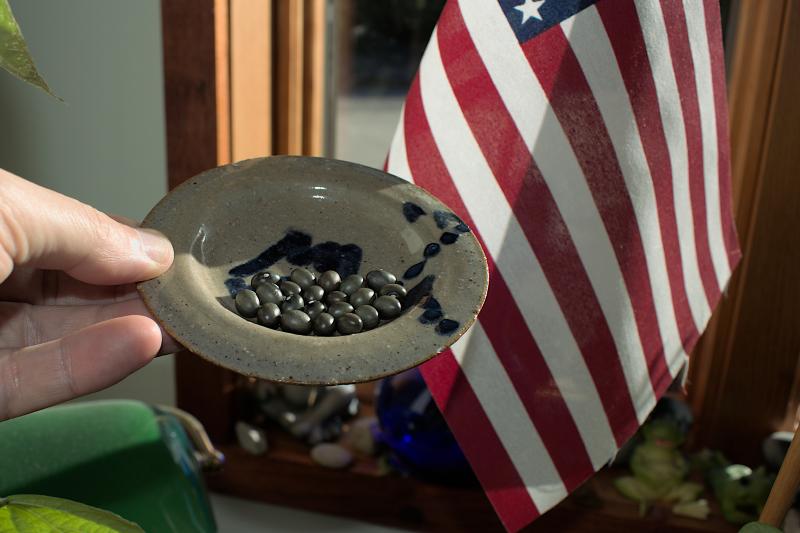
This garden has been repeatedly grazed this year by deer so not much is left of it.
N Bean Garden -
Jul 29 2022 (2851K)
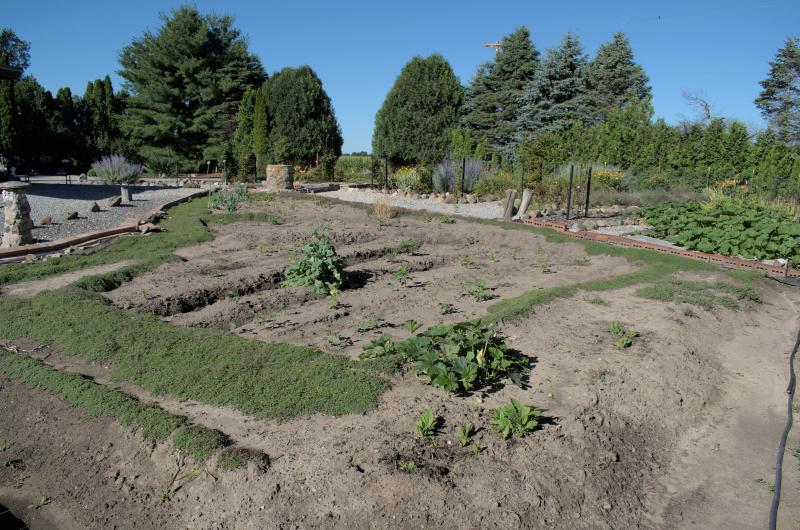
This garden has not been grazed as much as the above garden. It was planted after the above garden. Also notice how well the Purple Dove beans in the foreground do much better compared to the rest of them.
NE Bean Garden -
Jul 29 2022 (2483K)
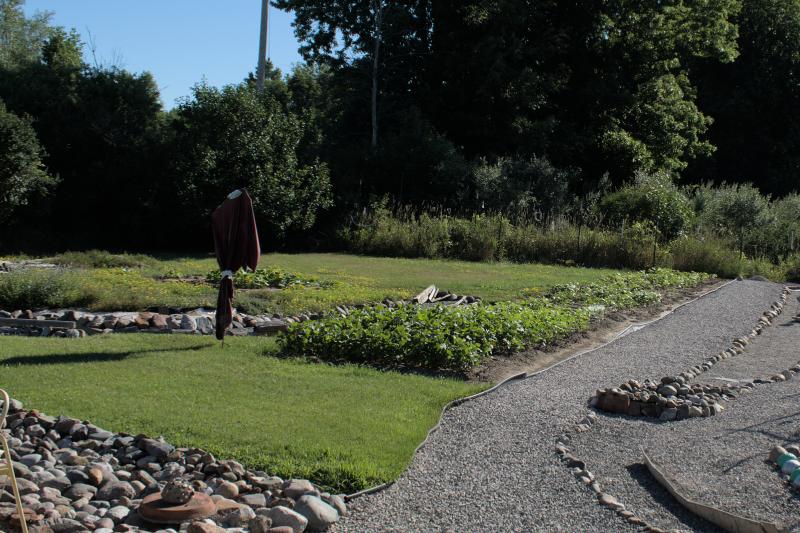
This bean garden inside the fenced gardens is doing much better, plus it was planted sooner than the above gardens.
Skinny Bean Garden -
Jul 29 2022 (3458K)
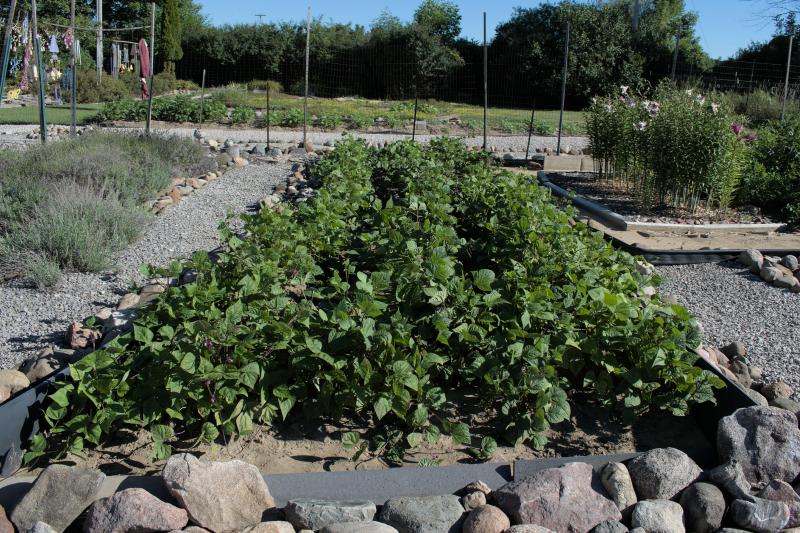
The south bean gardens are mostly all in bloom and doing well.
S Bean Gardens -
Jul 29 2022 (2608K)
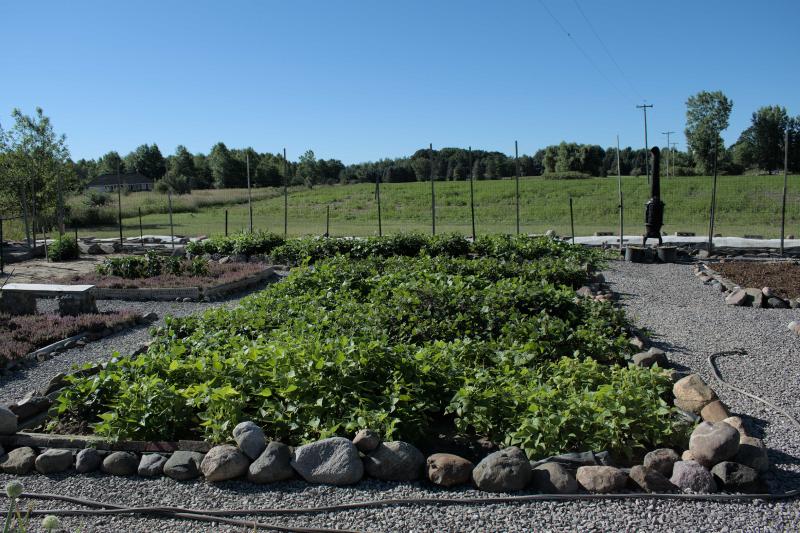
Some beans showing different colors even when grown on the same plant.
Different Colors -
Aug 18 2022 (4858K)
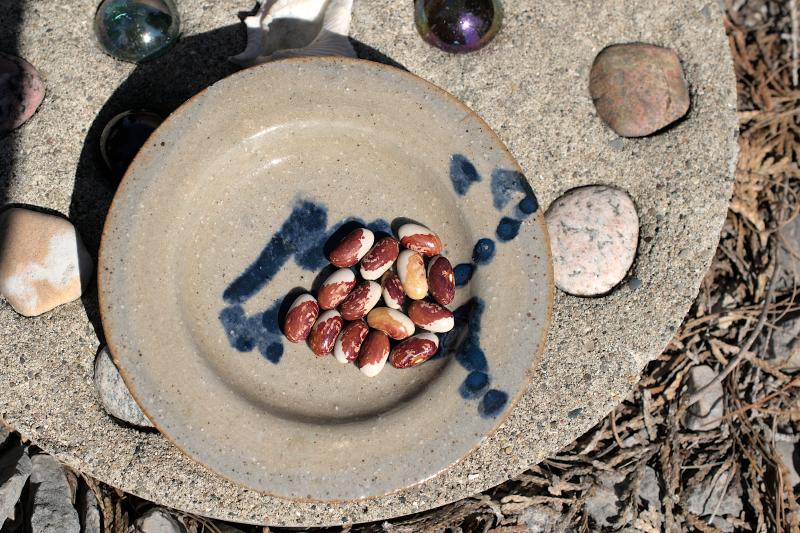
Sunrise in the sun, showing brighter pink shelly stage.
Sunrise -
Aug 29 2022 (3995K)
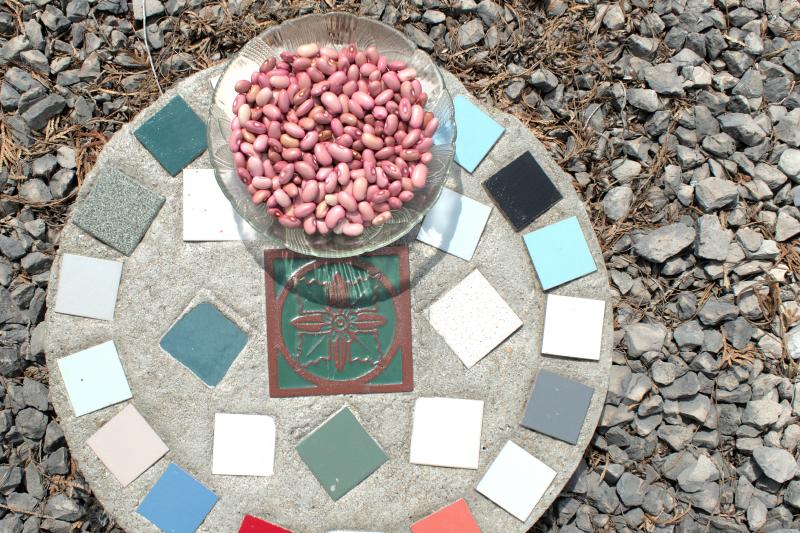
An interesting bean from some striped odd beans I’d planted to see what they’d do.
Gray and Pink -
Sep 3 2022 (3970K)
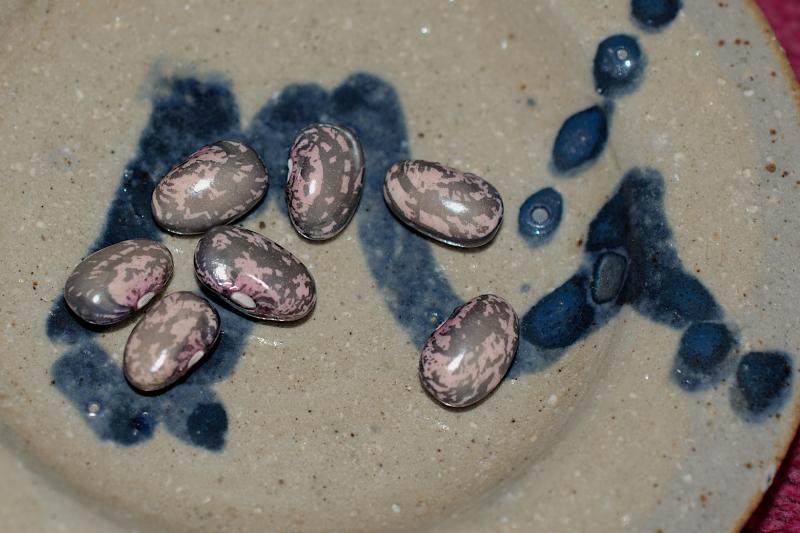
The above gray and pink bean after it has dried down and aged a little - now it looks to me more like a watermelon seed. Plus another pink bean that showed up as an off type to an olive colored bean - this one has aged enough to start showing more tan color than pink, so it doesn’t meet my hopes of it being a pink bean that actually stays pink as it ages.
Aged Pinks -
Nov 7 2022 (3925K)
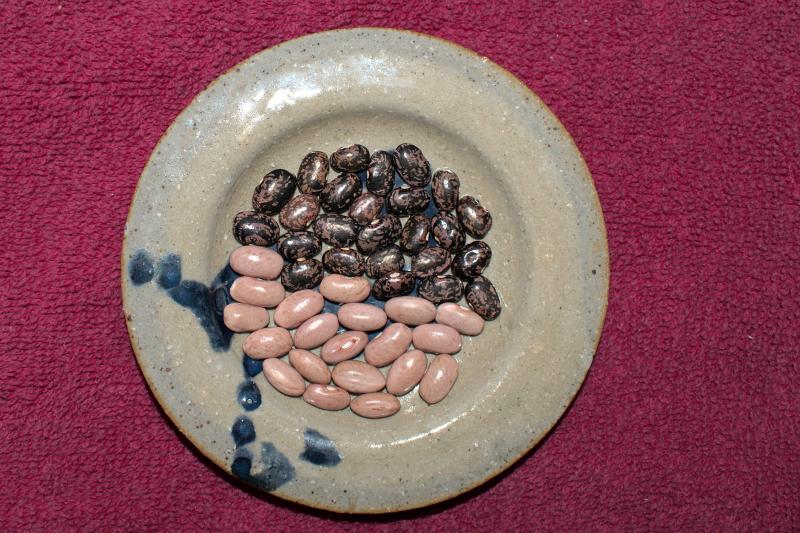
Two of the Purple Dove out crosses.
Purple Dove Odds -
Dec 10 2022 (4010K)
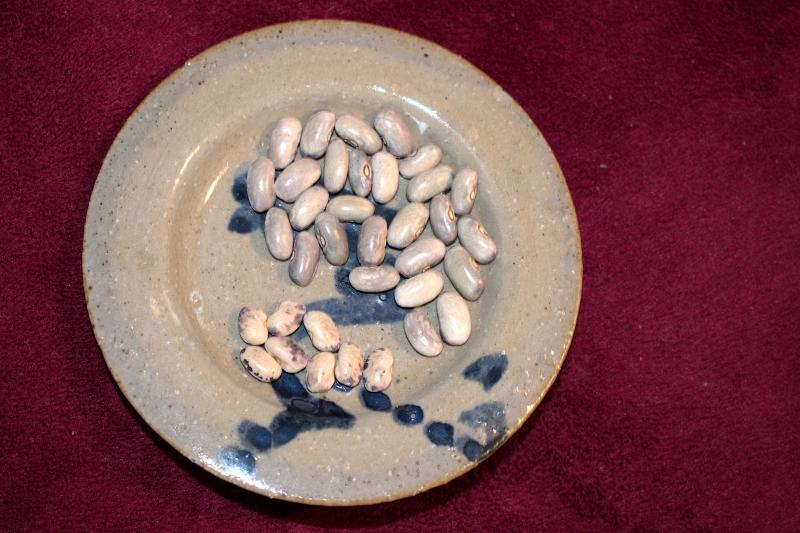
Three more Purple Dove out crosses.
Purple Dove Odds -
Dec 10 2022 (4062K)
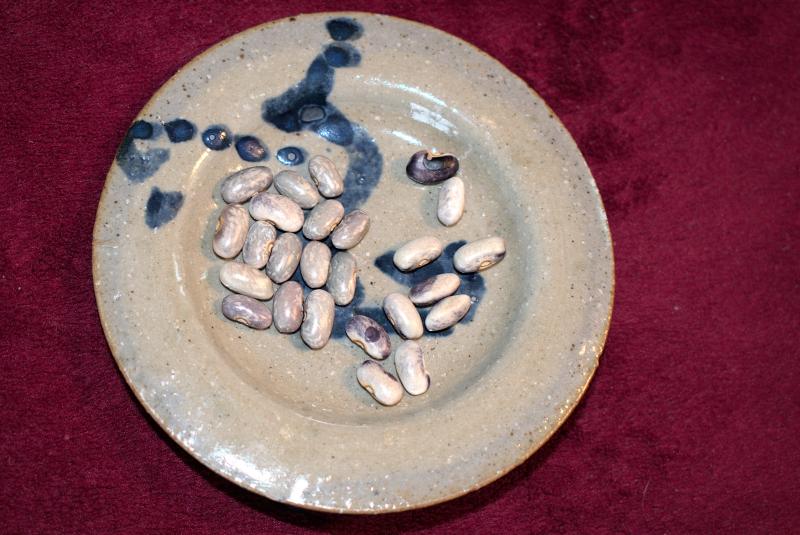
Tinker’s Fire, the name came to mind as the colors look like flames dancing and I thought of a travelling tinker sitting and watching a fire. I see in the picture there’s at least one cutshort that I will not replant.
Tinker’s Fire Beans -
Dec 12 2022 (4008K)
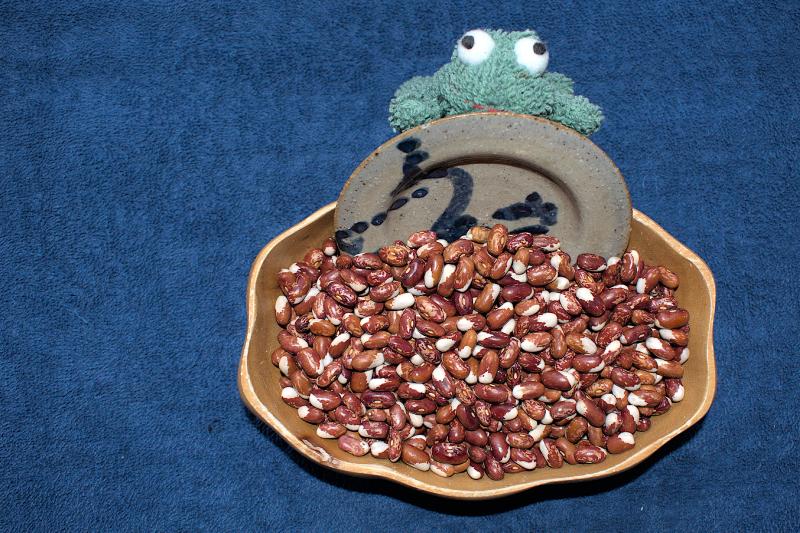
I planted beans the color of the middle colors, but I got white (the ones to the left) and brown (on the right), plus some of the beans in the middle were semi-runner or pole beans. I like the silvery, purple, blueish color of the ones right next to the white beans, but there’s a good chance those will just be lavender when replanted.
Lavender -
Feb 06 2023 (3953K)
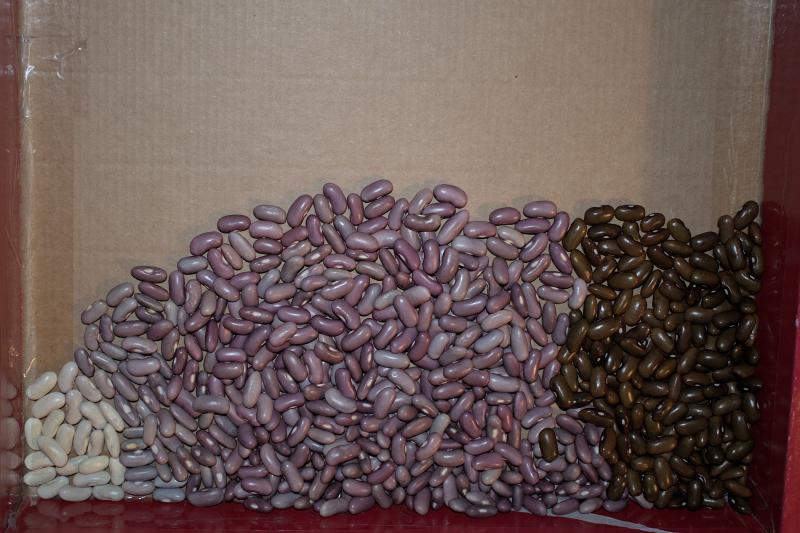
SEASONS 2023:
The first garden that was planted May 4th with the Purple Dove beans on the lower left (you see just a few of those). The Lima beans are sparse and were planted when things warmed up later in the month. Then I planted the Purple Dove Odd beans and the rest of the garden. I have been watching this garden the most because of the early Purple Dove planting and the peas but also now with the Odd Purple Dove beans growing.
Early And Odd PD Beans -
Jul 03 2023 (3994K)
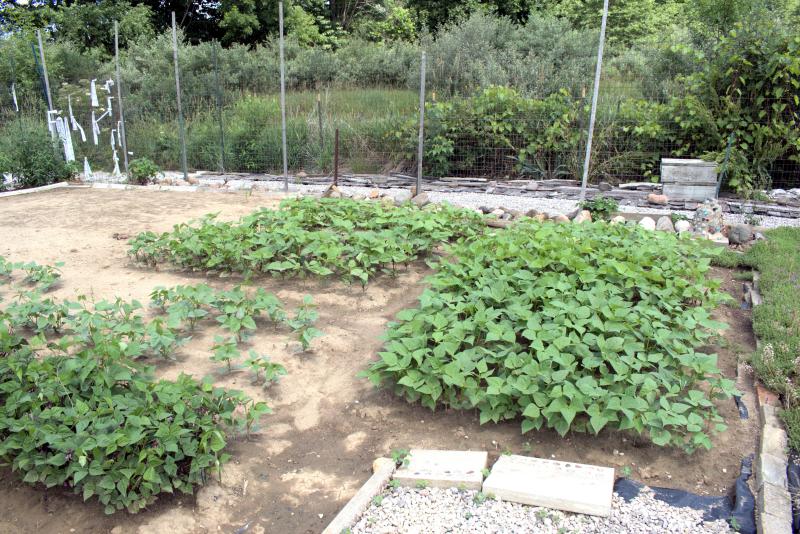
The May 4th Purple Dove bean flowers. I love the color of these!
Bean Flowers -
Jul 03 2023 (4431K)
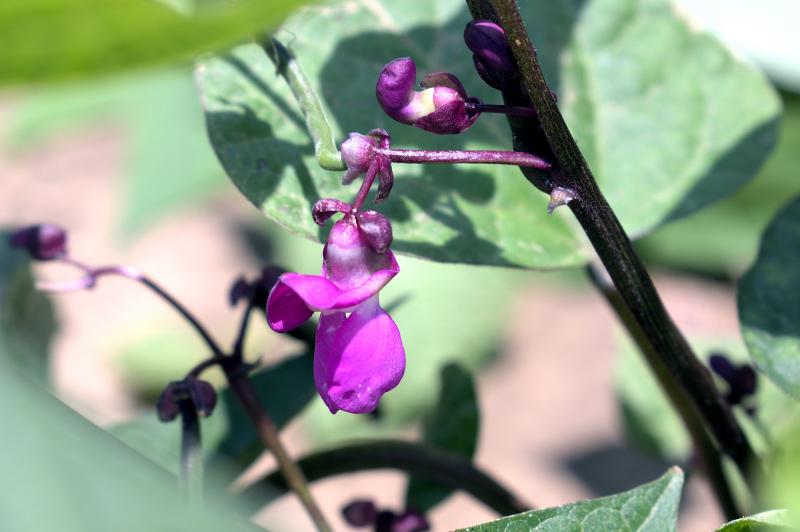
The long skinny garden along the fence in the background was planted before the larger garden in the foreground. The background garden has just the line of Purple Dove beans in the back and then the rest of the garden is peppers and melons. The foreground garden is all beans and I’ve done some different arrangements of the rows and some interplanting trials to see how they do. The interplantings trials continues the experiment from last year where I had good results.
Two Bean Gardens -
Jul 03 2023 (4266K)
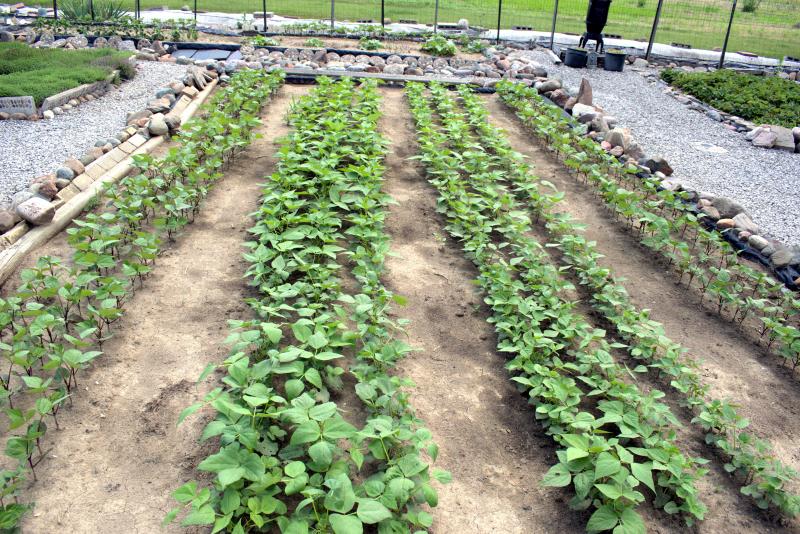
The last things planted inside the fenced gardens were the beans in the reclaimed pathway around the edge of the lily garden. The larger skinny garden is mostly a bulk bean planting but some of them will also work for fresh bean eating.
Beans -
Jul 03 2023 (4218K)
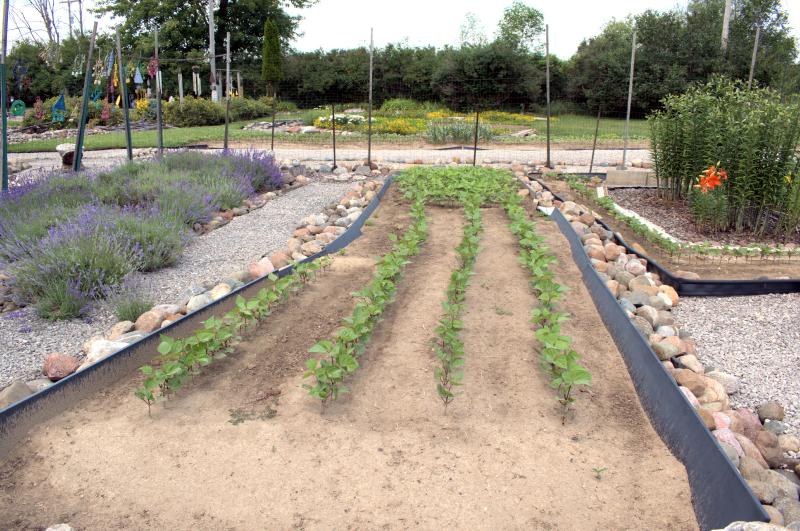
Outside the fenced gardens the most recent bean garden I planted with the ones way in the back of the picture planted first and then there is the garlic in the middle and then two more recent patches planted later. The very last beans I planted were poked along the left side of the picture in small groups to see how the can do growing in that compacted clay without any cultivation. Yes, another experiment… They are just starting to sprout and grow - we’ll see how they do. This was a tough garden to get planted due to lack of rains and the ground being pretty hard. Also with it being outside the fenced area means the deer may end up eating some or all of them - I can’t predict what I’m going to get so I plant this one last.
Last Beans Planted -
Jul 03 2023 (4274K)
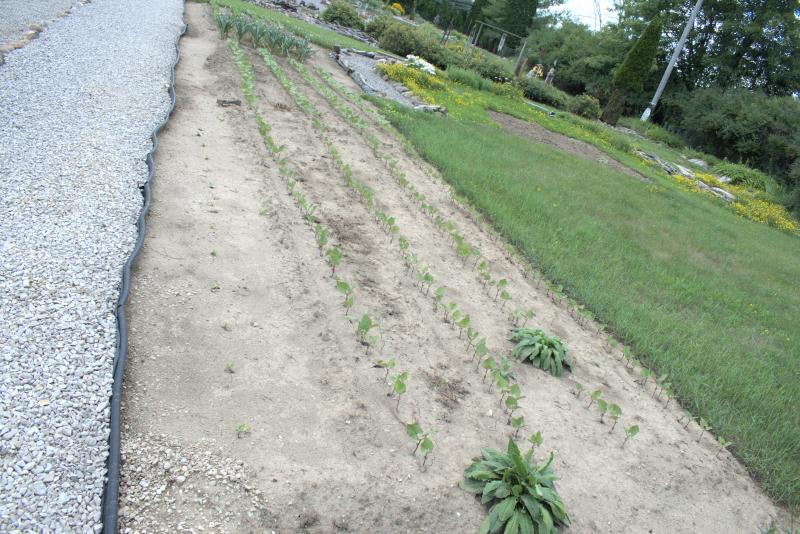
While weeding I noticed these nice looking bluish/purple beans in where I had planted some Painted Pony beans so they are likely a cross with the Purple Dove beans because I have been planting them together for some years now hoping for such a cross to happen. I’m glad I got to see it. Now I have to be patient and hope the seeds come through ok. I know it is an edible bean because I sampled one pod but also what is good is that I have at least two plants with pods like this so somehow I selected the right seeds to replant (I think I do have a reasonably good eye for different beans that can show up). Note, this bean is unlikely to be a Purple Dove cross and is more likely a cross with one of the Peregion selections.
Purple Dove Cross -
Aug 11 2023 (3965K)
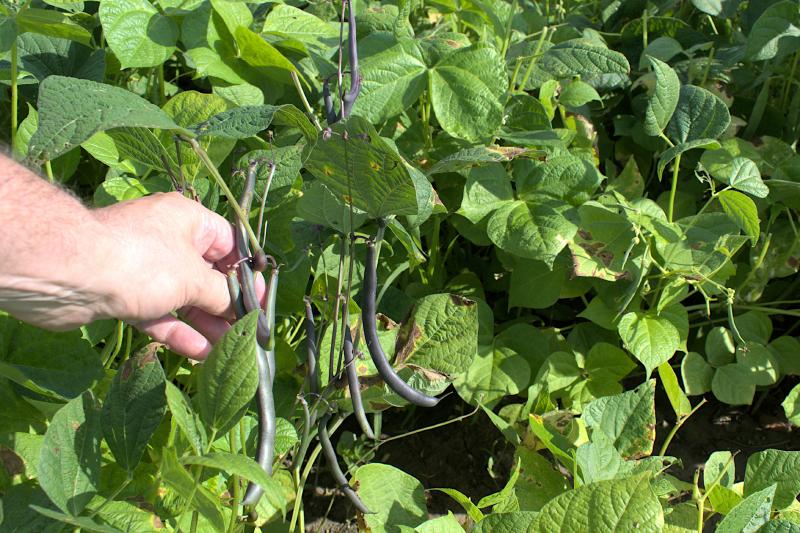
On the other hand this bean is definitely a Purple Dove outcross. One of several that I grew out this year.
Flair -
Dec 31 2023 (3922K)
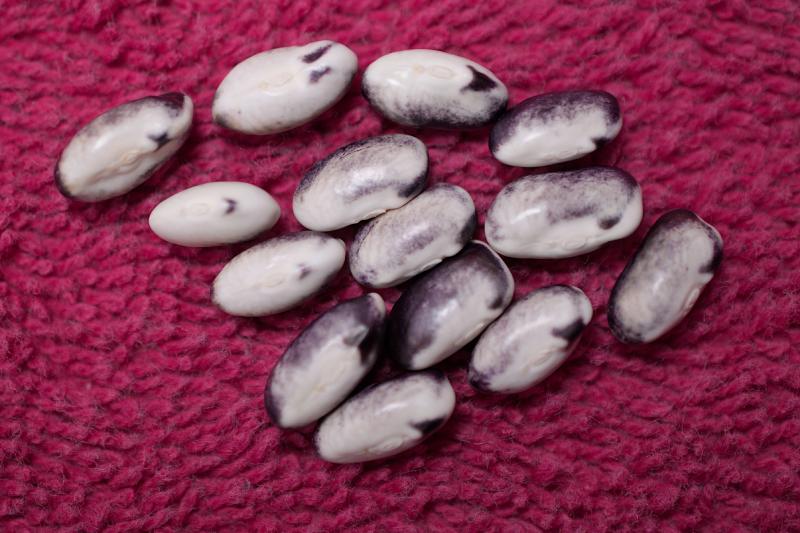
An unusual color and pattern that is greenish in color. Only four seeds… Might be a challenge to grow again.
Gray Green -
Jan 01 2024 (3024K)
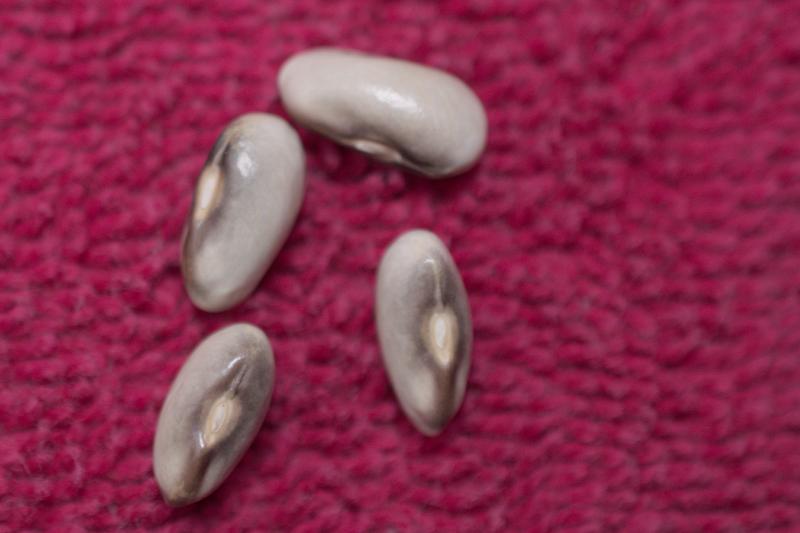
The hat marking (same as Flair) in another style.
Fluffy -
Jan 01 2024 (4861K)
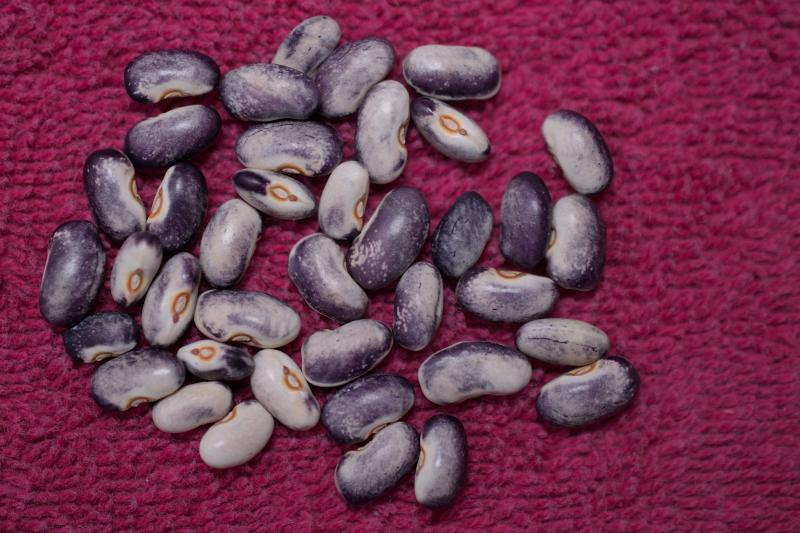
The hat marking in a more gray color along with some other markings on the seed coat. The color is almost burgundy in the darker areas because of the purple over the gray.
Grayhat -
Jan 01 2024 (3315K)
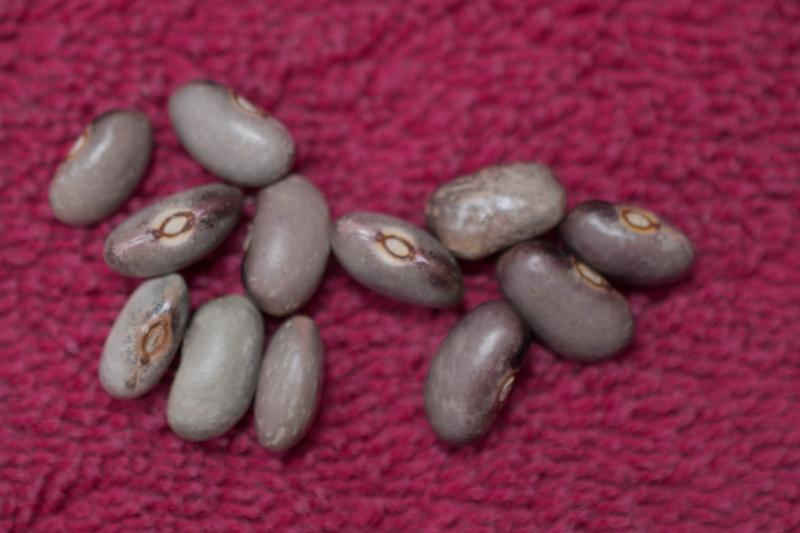
A more round, darker purple and some markings outcross of Purple Dove.
Round Marks -
Jan 01 2024 (4347K)
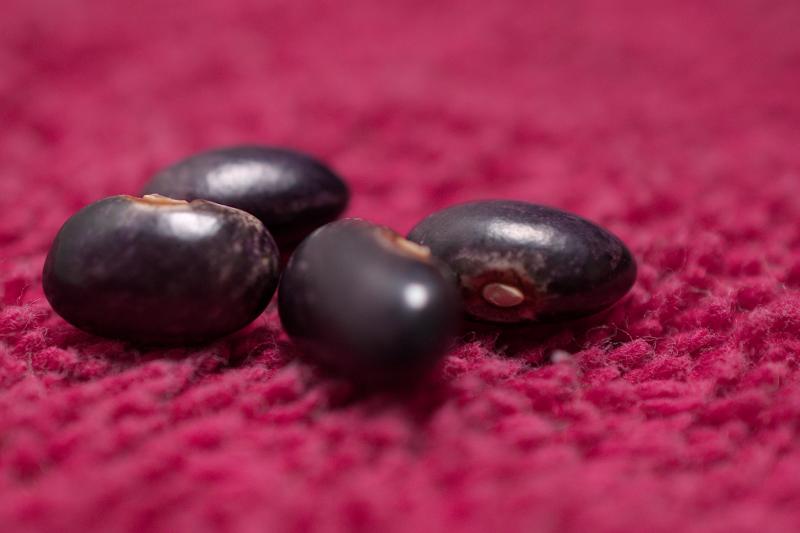
This may be the same as Fluffy, can’t tell yet.
Topmark -
Jan 01 2024 (3905K)
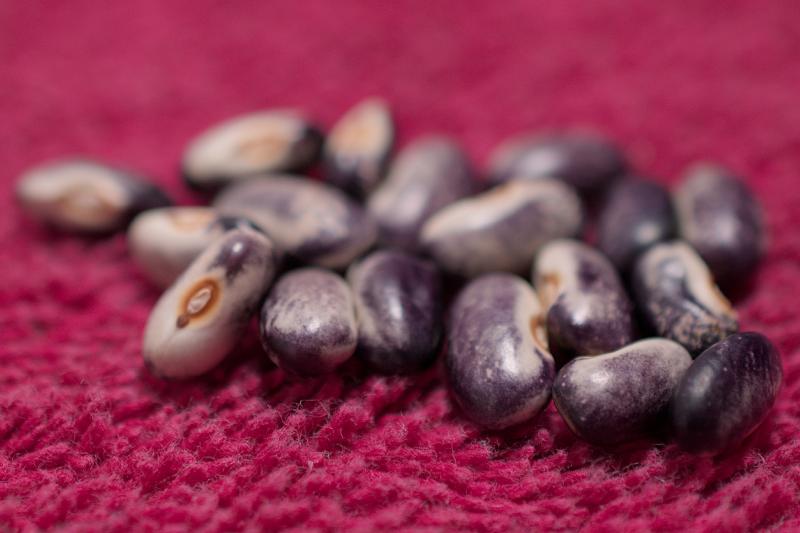
Another likely outcross from Lavender, there are both greens and blues in there, but I don’t know yet if these will repeat.
Greens -
Jan 04 2024 (4354K)
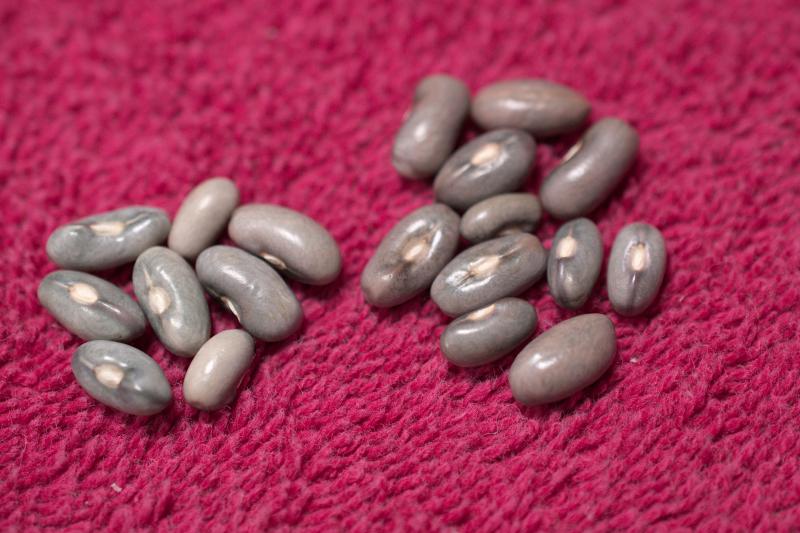
These are hard to place to any one bean parent, but all were grown in a patch of suspected outcrossed Purple Dove seeds.
Rose Hints -
Jan 04 2024 (4447K)
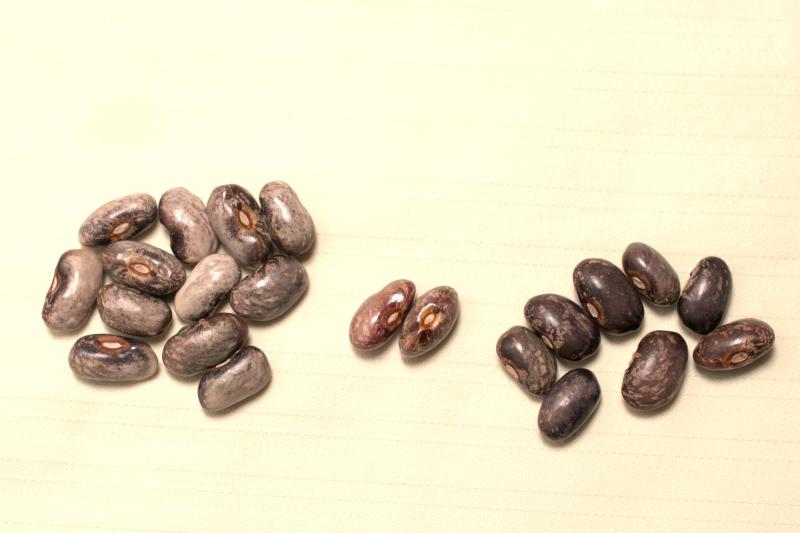
More from the patch of suspected outcrossed Purple Dove seeds.
More Hints -
Jan 04 2024 (3890K)
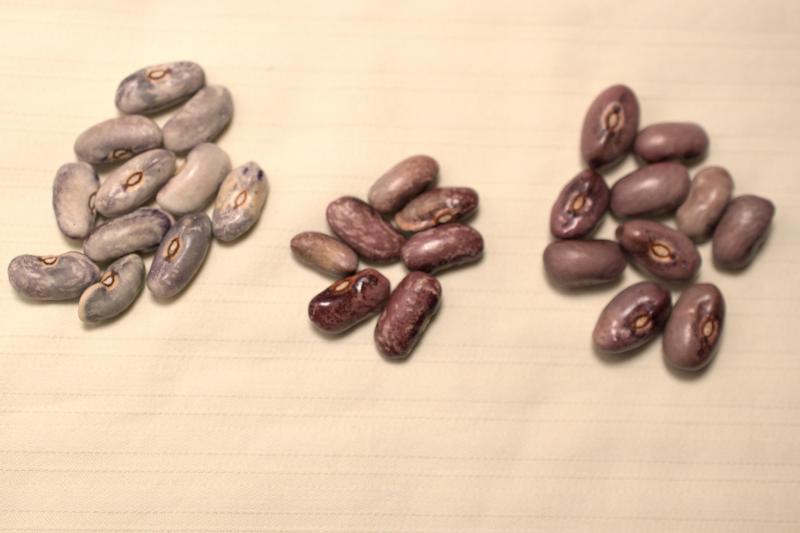
I refreshed some of my half white beans and continued to have some surprises from them (the really pale ones to the left).
Half Whites -
Jan 04 2024 (4178K)
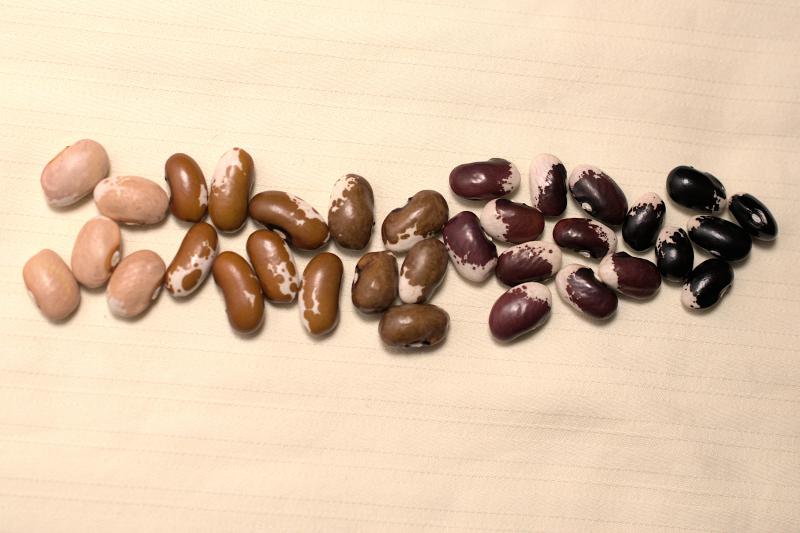
Two of the Painted Pony outcrosses. The one on the left that is black with lighter markings was edible and a very nice plant so I’m excited to see if that repeats this coming season. I don’t know about the lighter colored bean on the right yet, but I will plant it again to see what it does.
PP Outcross Blue Pods -
Jan 07 2024 (4143K)
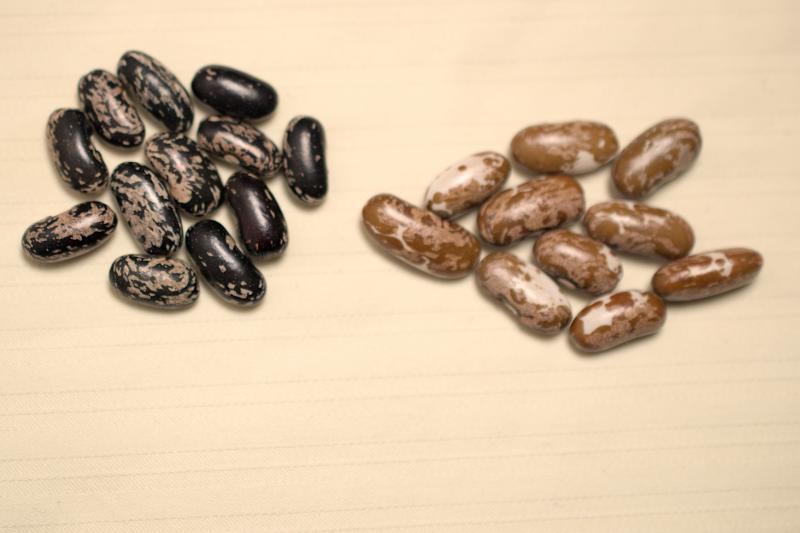
Two Purple Dove outcrosses. I do not know if either of them are edible yet.
PD Outcrosses -
Jan 07 2024 (3084K)
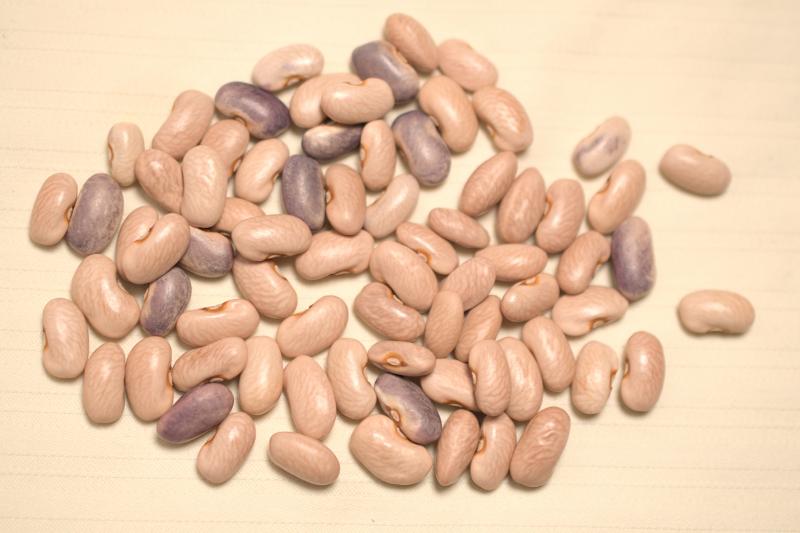
Another Painted Pony outcross. The patterns and colors of this one are interesting.
PP Outcrosses -
Jan 07 2024 (3962K)
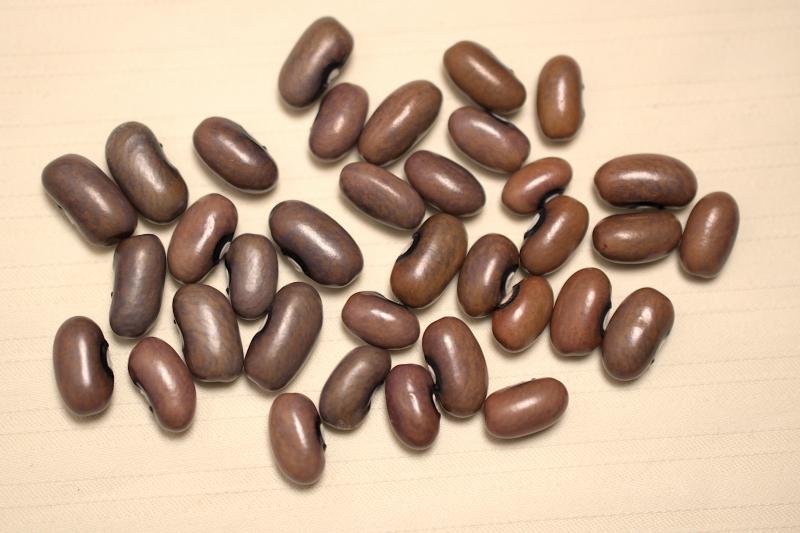
Two of the solid color outcrosses. The more orange and round bean on the right is one I would like to grow again.
Solid Color Outcrosses -
Jan 07 2024 (3564K)
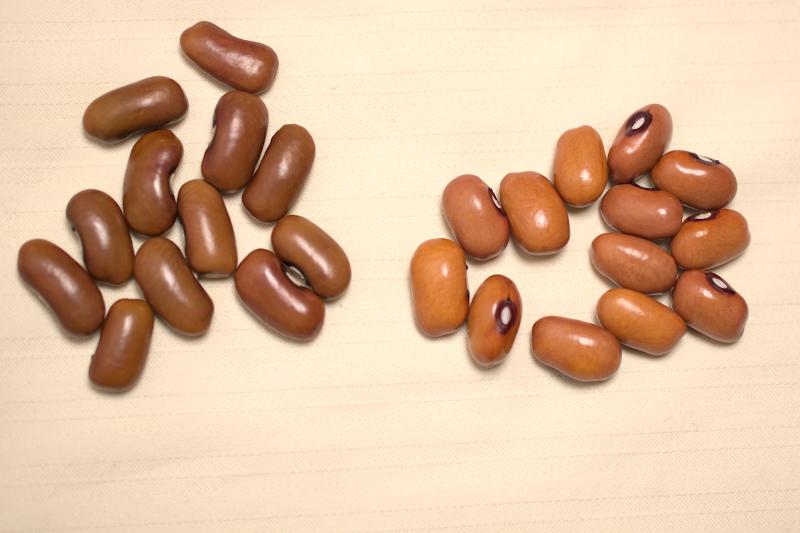
Various White outcrosses. I’ve never had the light olive colored beans repeat their color when replanted - I wonder if either of these will be the first. The white beans that almost look like Pheasant are pretty tiny. Brown eye beans I’ve also seen before and they too don’t seem to repeat when I replant them.
Various Whites -
Jan 07 2024 (4497K)
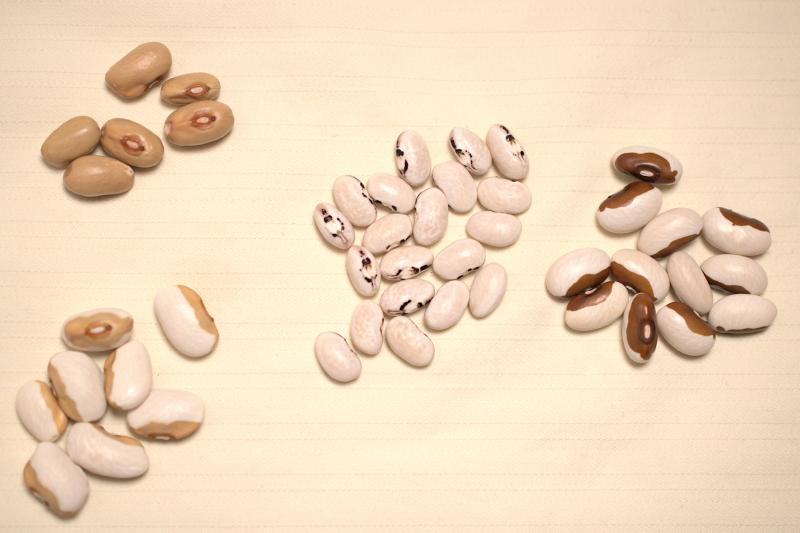
The mixed bag of what was left. Mostly what catches my eye are the Purple Dove beans in the middle with the various markings and lines.
Odds and Ends -
Jan 07 2024 (3735K)
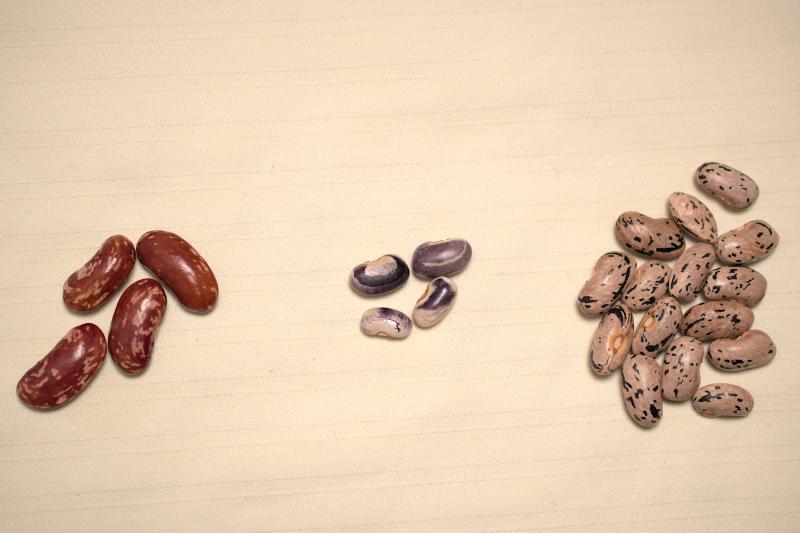
Peregion sample from 2012. They look like coffee beans. Storage conditions were room temperature in a small plastic container. Based upon how these have grown for me over the years I consider this a blend of varieties. I have had a lot of out-crosses come from these.
Peregion 2012 -
Jan 12 2024 (3717K)
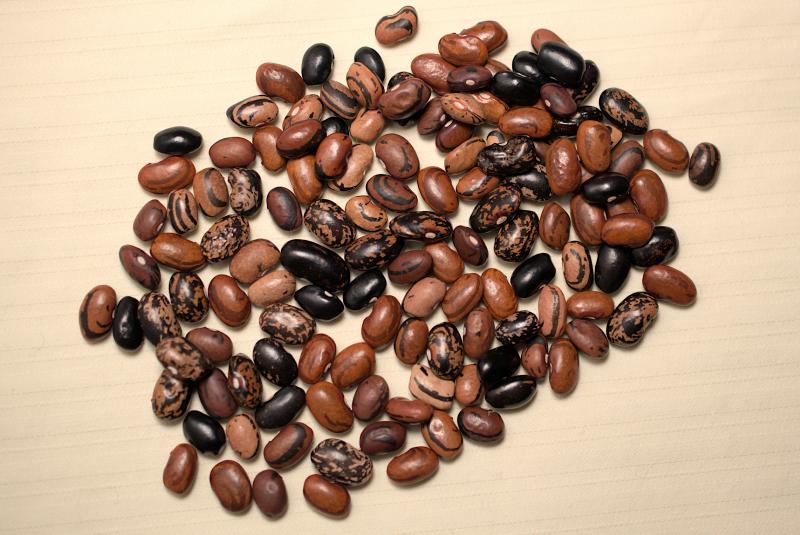
The less aged sample from my grow out in 2022.
Peregion 2022 -
Jan 12 2024 (3713K)
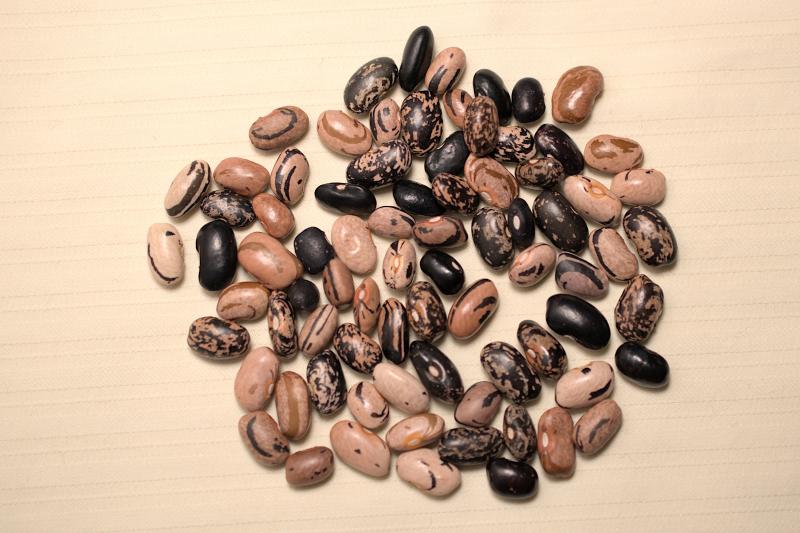
Vermont Appaloosa sample from 2012. One of the parents of Domino.
Vermont Appaloosa 2012 -
Jan 12 2024 (3284K)
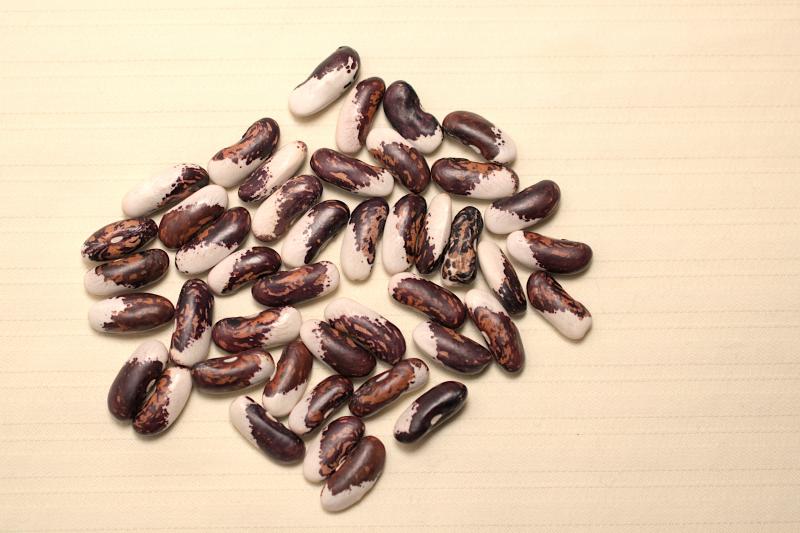
A side by side comparison of Painted Pony beans that were from a sample of what I was first sent in 2012 and those that I grew out in 2023.
Painted Pony 2012 2023 -
Jan 12 2024 (3284K)
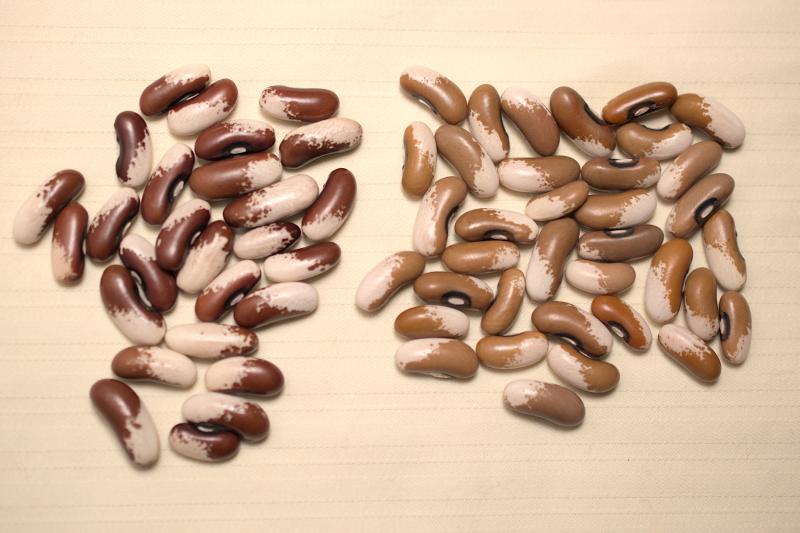
SEASONS 2024:
Bean shelling season is here! Yippee! A selection of beans from the first tray I picked to shell out, including Flair, some new red patterned beans, a few others that also came back true to colors and pattern. The colors and patterns are really not picked up very well in this picture - I will have to try again sometime with a different lens and better light.
September Beans -
Sep 13 2024 (4348K)
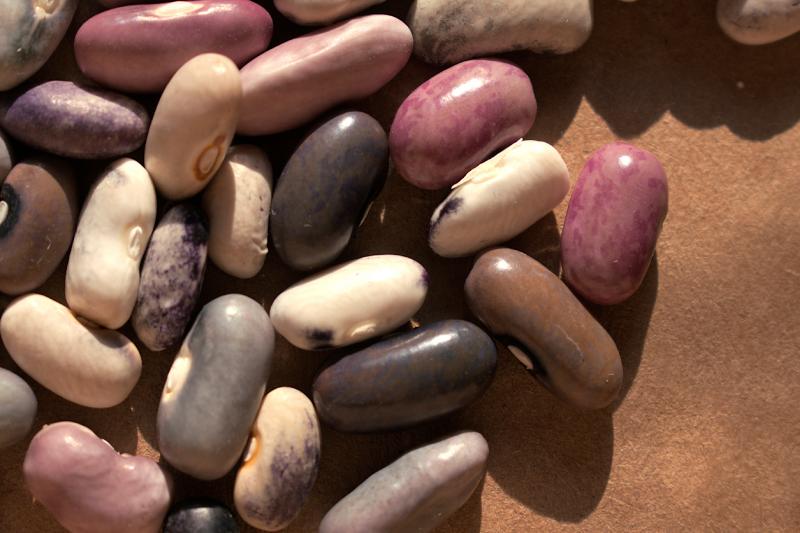
A pinkish red patterned bean. This is one of many Painted Pony outcrosses that I grew out this year. Not sure it is stable.
Patterned Red -
Jan 9 2025 (4527K)
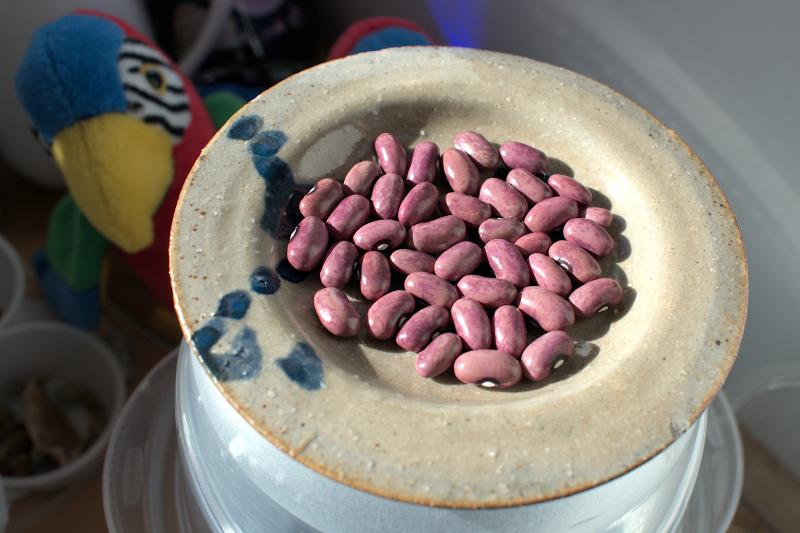
Another pinkish red patterned bean similar to the previous bean, but note there is no dark eye on this one. Another Painted Pony outcross. Not sure it is stable.
Patterned Red NE -
Jan 9 2025 (4374K)
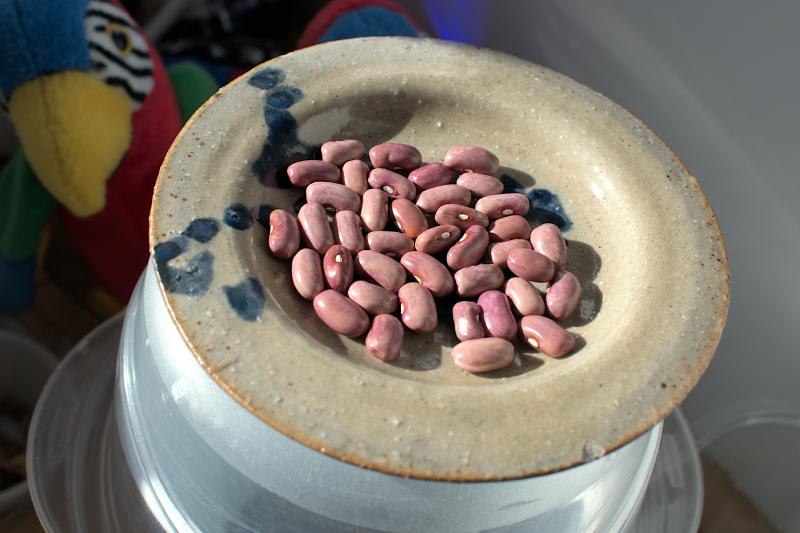
A tan variation on the Painted Pony pattern.
Tanwhite -
Jan 9 2025 (4548K)
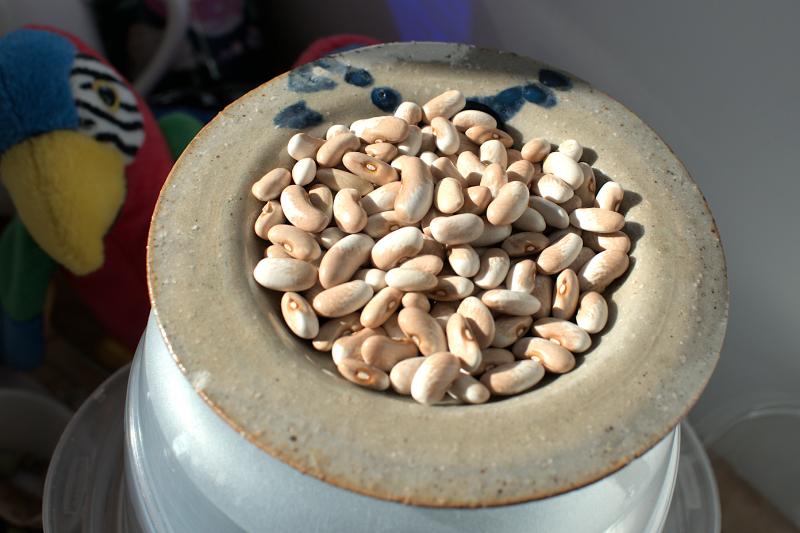
At first I didn’t know what I was seeing with this bean, the dark color is somewhat green to black. I think this was another Painted Pony outcross.
Dusty -
Jan 9 2025 (3444K)
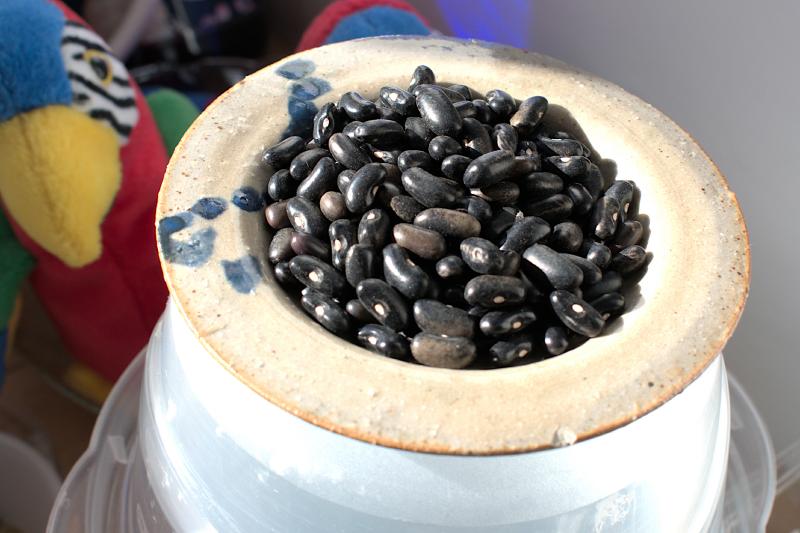
These four beans are related to each other as a likely offspring of Lavender. The colors are grayish, bluish, greenish.
Four Sibs -
Jan 9 2025 (3873K)
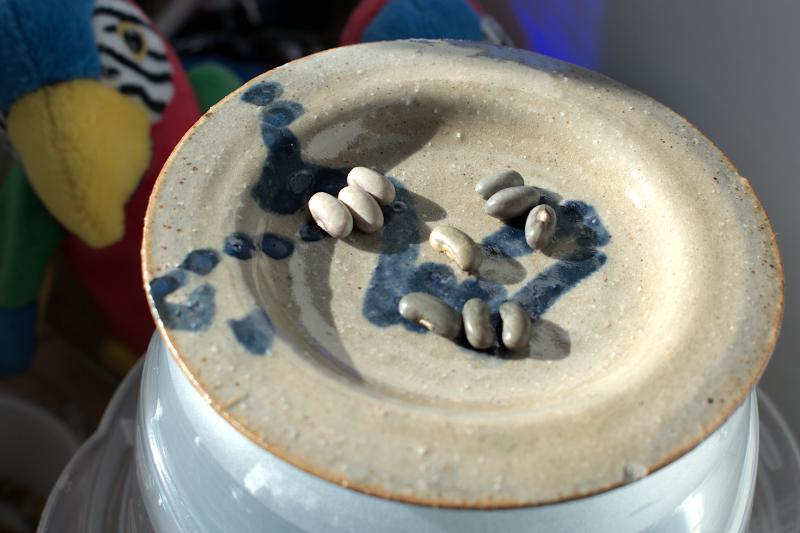
Also a likely offspring of Lavender.
Grayish -
Jan 9 2025 (4637K)
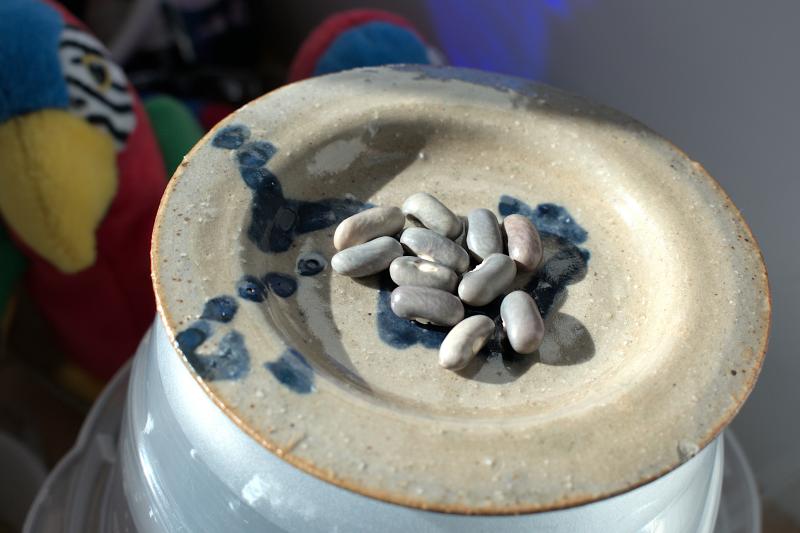
And another likely offspring of Lavender which I really like with the pale hints of green and red.
RedGreen -
Jan 9 2025 (4172K)
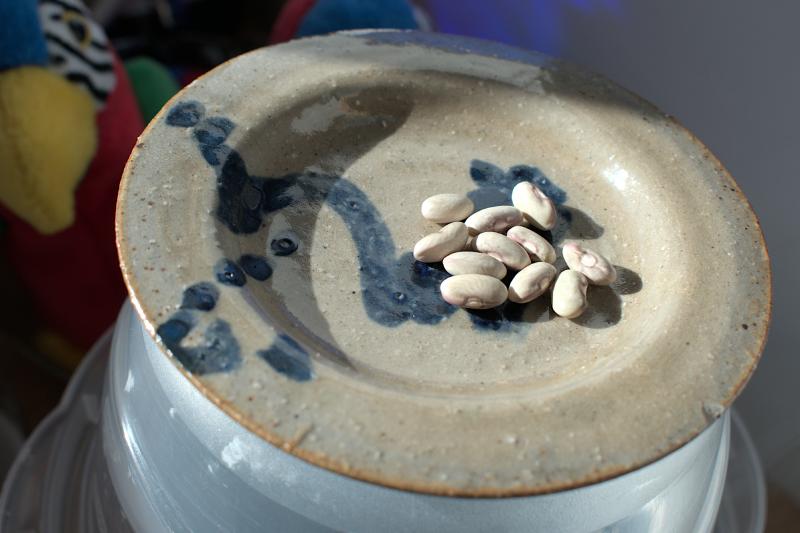
I’m not sure who the parents might be of this one, but perhaps Vermont Appaloosa is one of them.
Dusky -
Jan 9 2025 (3970K)
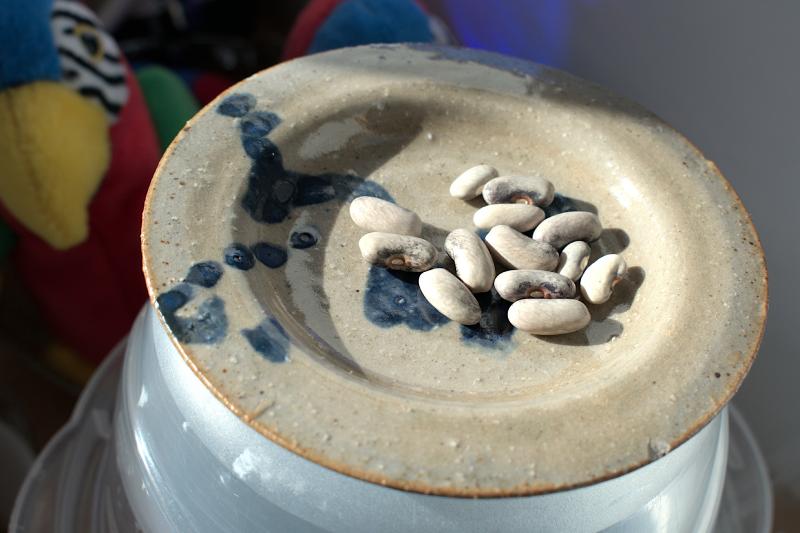
A more bold variation upon Dusky so it could be the same bean.
Stepup -
Jan 9 2025 (4134K)
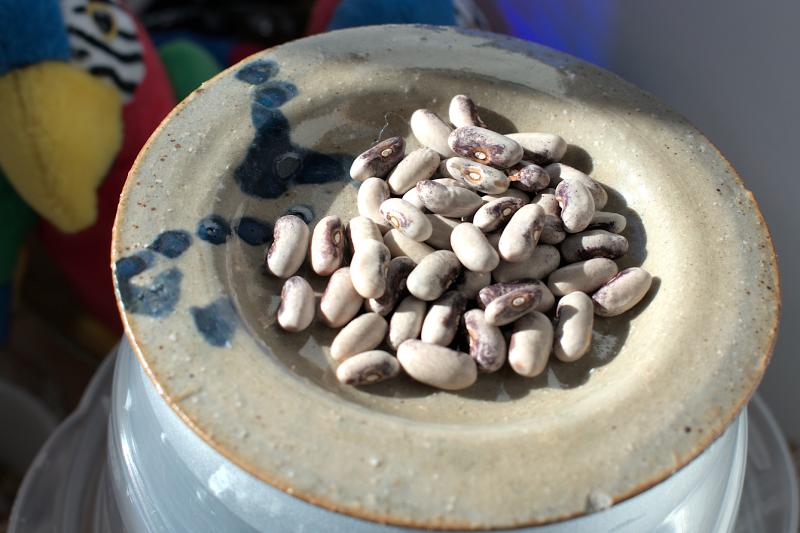
Bottom row, all the way to the left, blues and greens with some speckles, a very interesting bean - I hope it will repeat when grown out again. Other beans in that bottom row are also interesting to me, but I’m not sure how many of them I’ll try to grow out again.
Odds -
Feb 12 2025 (4361K)
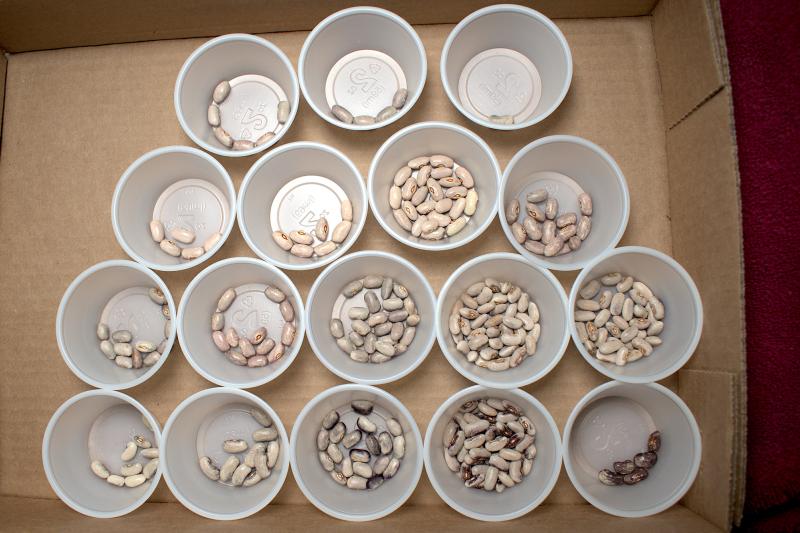
Purple Dove outcrosses that don’t have a discoloration around the eye. Some of them I hope to get further crosses from.
Clear Eyes -
Feb 12 2025 (4715K)
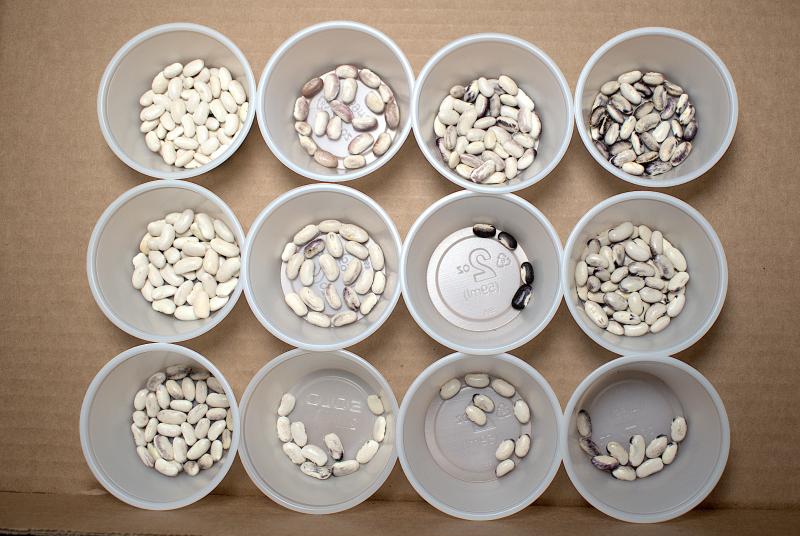
A few of the beans on the left are familiar (Lemon Slice and Huey) or contain hints of Monster (the upper left) and a few on the right (especially the red to purple one) are interesting enough to me that I will likely continue to grow them again to see if they’ll become stable. The rest aren’t too likely to be grown again unless someone else wants them.
Misc -
Feb 12 2025 (4032K)
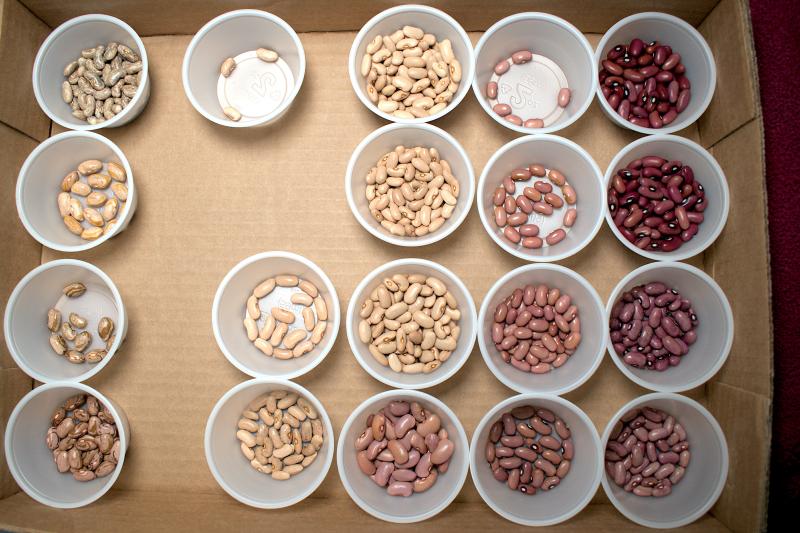
Most of the part white pattern beans grown. My favorite colored one happened to also be one which shows marks way too easy for me to grow it again (the purple one on the bottom).
Part White -
Feb 13 2025 (4691K)
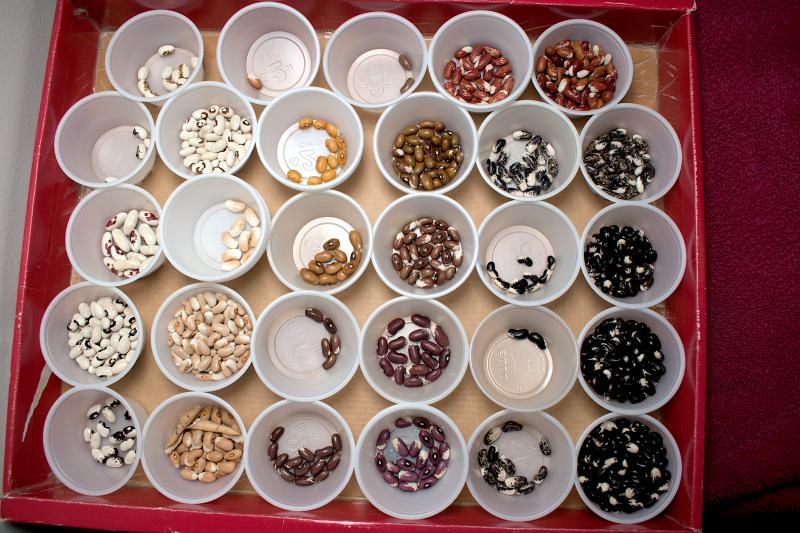
Black to gray colors. In the black beans there’s one I like that is different enough to think about growing again to see if it will repeat.
Black Gray -
Feb 15 2025 (3927K)
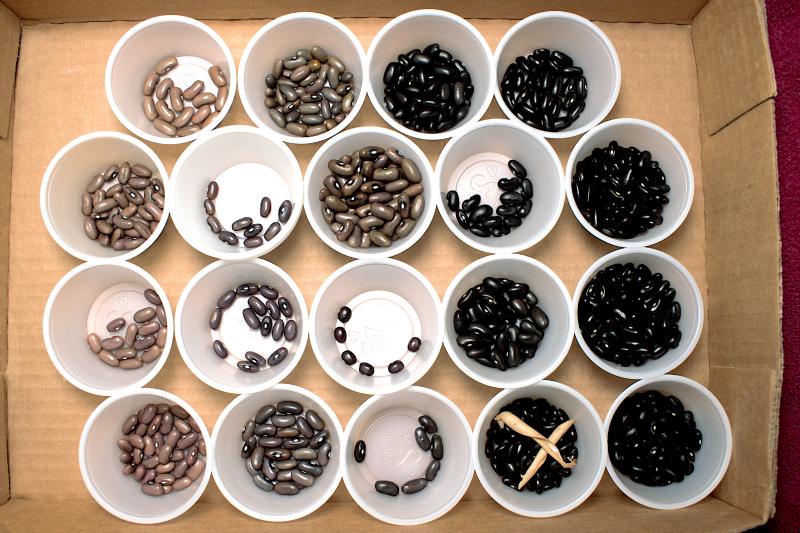
Purple colors to white with the tan and white beans likely coming from Purple Dove outcrosses.
Purple White -
Feb 15 2025 (4610K)
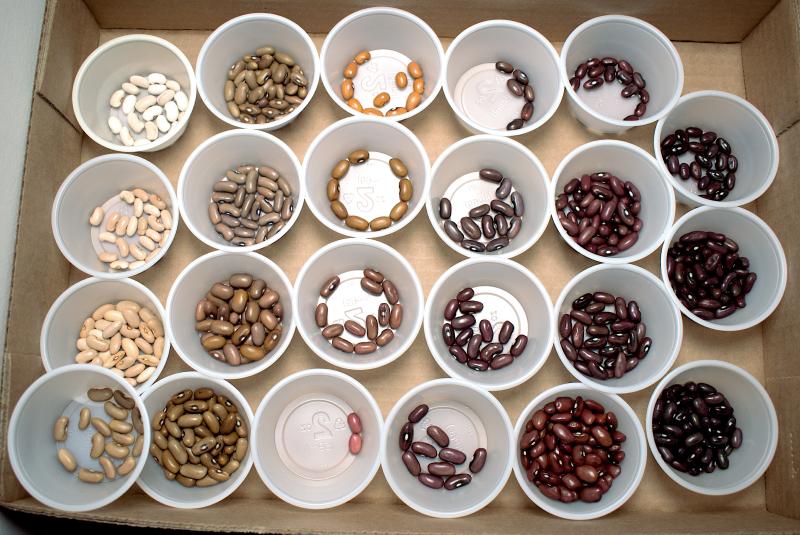
Stripes or other marks. The yellow and red colored one is from Tinker’s Fire. Most of the others are from two Painted Pony outcrosses (dark and light) and the few blue tinted beans on the right are from Sacre Bleu. Yet my favorite (as hard as it is to pick just one) is the dark and pink one in the middle.
Marked -
Feb 17 2025 (4140K)
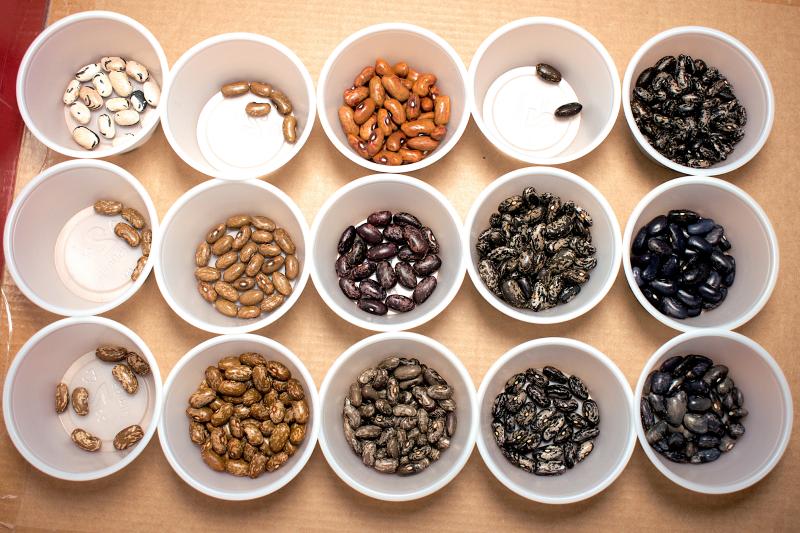
Some very strange beans.
Strange -
Feb 17 2025 (4132K)
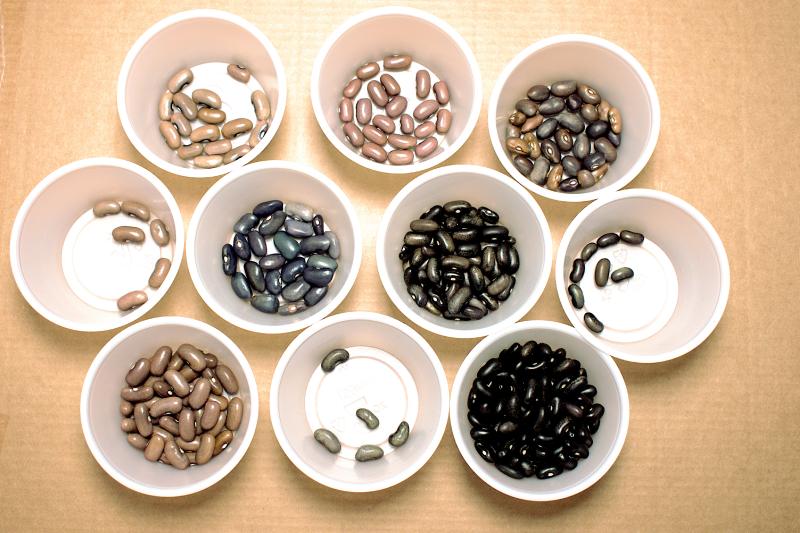
Lavender and Green colors with some having a mix of both.
Lavender Greens -
Feb 17 2025 (4420K)
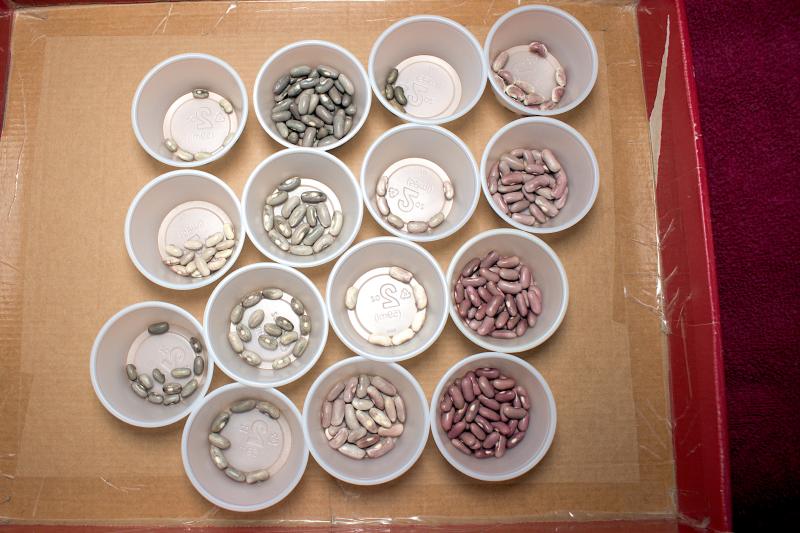
Purple Dove selections.
Purple Doves -
Feb 17 2025 (4096K)
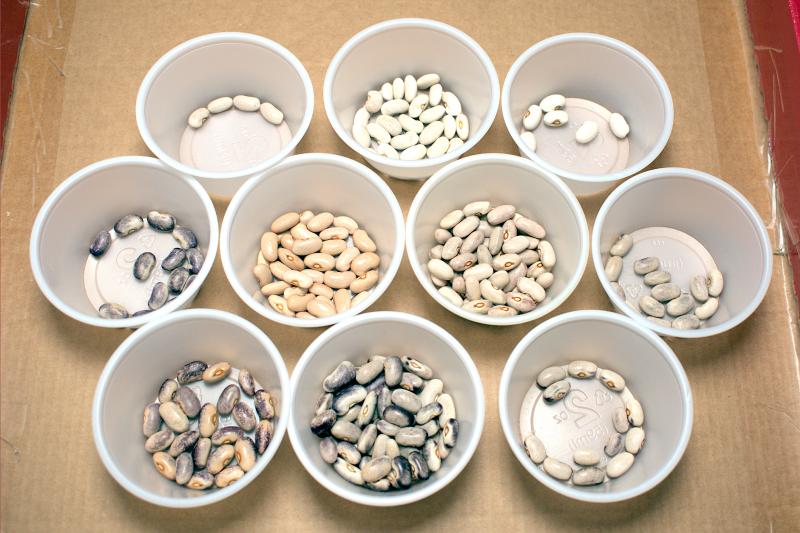
SEASONS 2025:
Some Purple Dove Outcrosses showing improvement towards what I hope to accomplish which is a bean that looks like Purple Dove as a plant and a bean with the exception of not having the yellow ring around the eye. In this picture you can see many beans which do not have that ring and have similar markings, but it is to be determined yet if the flower colors and plants are what I am after.
Purple Dove Outcross Progress -
Sep 26 2025 (3316K)
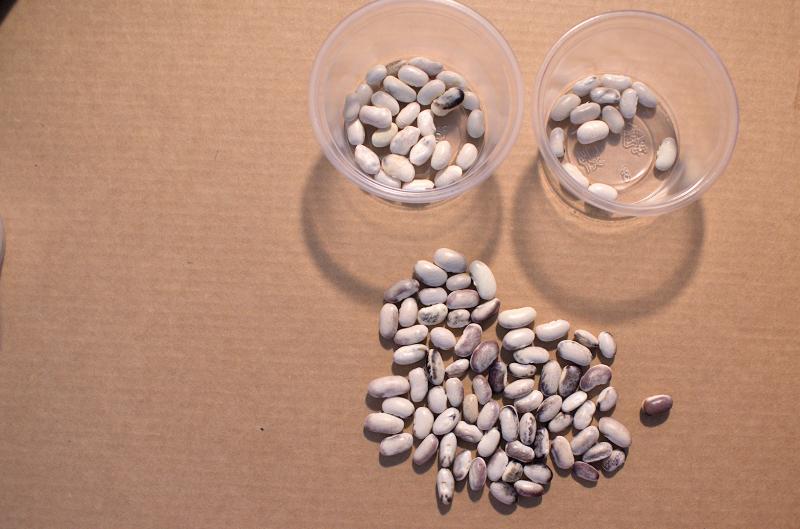
Purple Dove Outcross making progress, one single bean from the side.
Purple Dove Outcross Progress Lone Side -
Sep 26 2025 (414K)
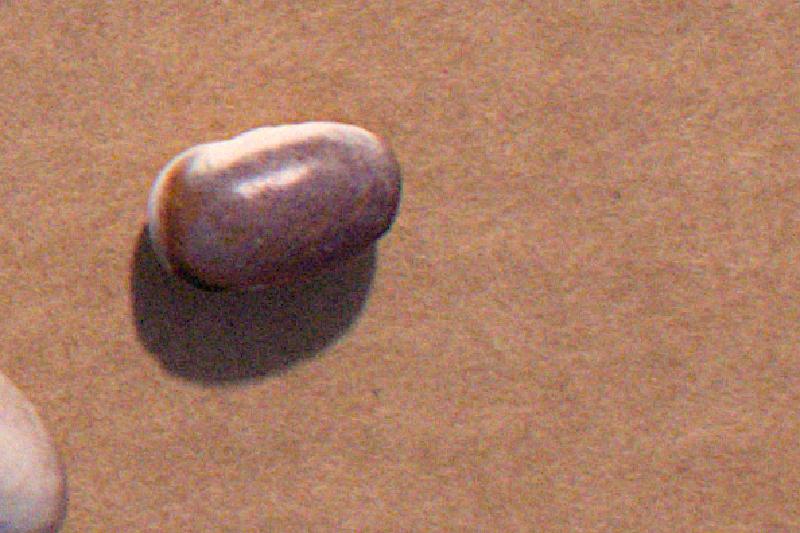
Another group shot with the bean of most interest towards the lower right.
Purple Dove Outcross Progress -
Sep 26 2025 (3719K)
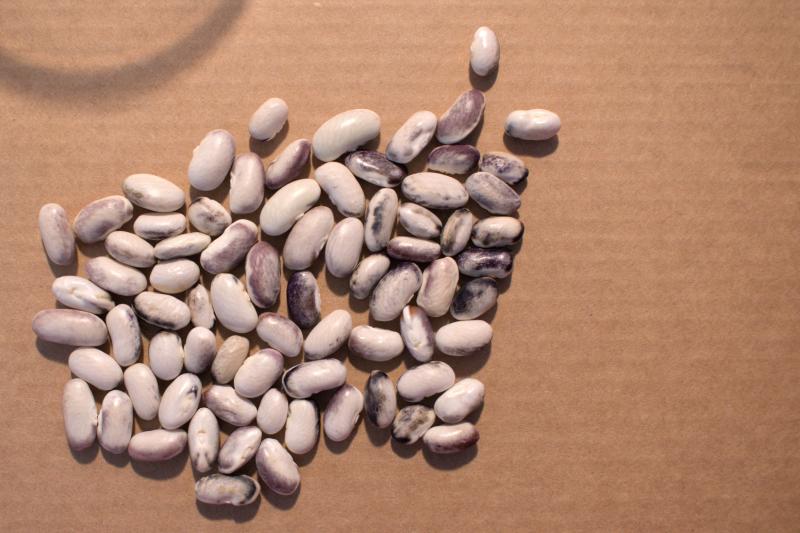
Purple Dove Outcross making progress, the same shot closeup of the bean in the lower right showing the top of the bean.
Purple Dove Outcross Progress Top Lone -
Sep 26 2025 (1083K)
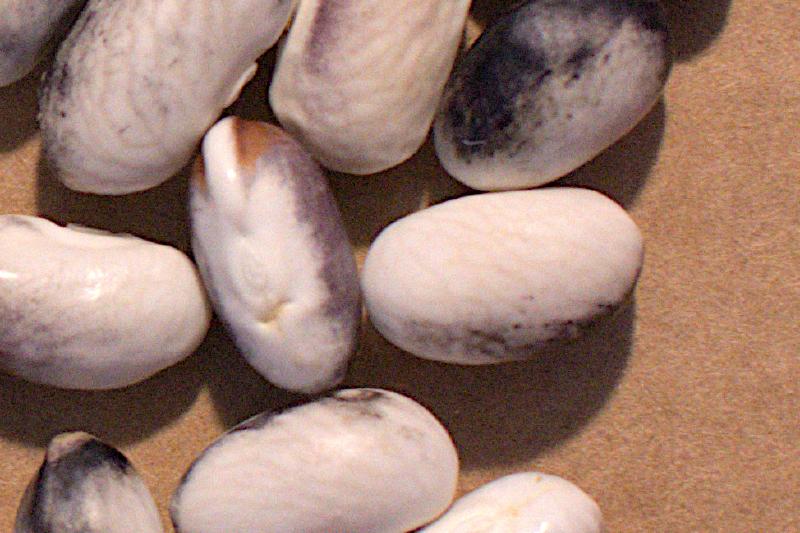
QUICK TIMELINE:
-
2010 Store seed racks: Tendergreen Improved, Top Notch, Hendersons Bush Lima.
-
2010 Gleaned from farm field: Soy.
-
2011 Bean Mix Soup Blend store: Black Eye Peas, Chick Peas, Cranberry, Dark Red Kidney, Great Northern, Green Soup Peas, Lentils, Light Red Kidney, Pink, Small Red Kidney, Turtle.
-
2011 Health Food Store: Soy a blend of mixed varieties, organic.
-
2012 Vermont Bean Company: Vermont Appaloosa, Black Turtle, Calypso, Coco, Etna, Besweet Soy (edamame), Money, Painted Pony, Peregion, Red Ryder, Yin Yang. Along with the order came a packet of experimental green and wax beans which were good to eat but did not usually give seeds in return.
-
2012-20??(various dates) Trades with people: Aunt Sally Cornfield, Black Turtle, Commodore, Greasy, Jumbo, Pink Tip, Yellow Eye (two trades). Also some cowpeas (which I did not grow).
-
???? Yellow Eye aka Molasses Face from the Health Food Store, organic.
-
201? Store seed racks: Cherokee Wax.
-
2018, 2019 Seed Swaps: Anasazi, Cha Kura Kake Soy (edamame), Fortex, Kahnawake Mohawk Pole, Nona Agnes, Purple Pole, Sacre Blue, Sieva Lima, Takara Early Adzuki, True Red Cranberry.
-
2014 - 2020 Greenhouse: Anasazi, Scarlet Runner, Kermit Smokey Mountain.
-
2018 - present Little Easy Bean Network: A whole bunch (see the next chapter).
-
2020 Other Trades: Galopka (did not like our conditions).
-
2021 Chinese Food Store: Adzuki beans (larger than Takara Early).
LITTLE EASY BEAN NETWORK:
I found some great beans by growing for the bean collector Russell Crow. The website The Easy Garden (links for both of these in next chapter) often has people who are growing beans for Russ talking about what is happening. It is a fun place for bean growers to keep in touch.
Everyone might have different soils, sunlight, moisture, and different season lengths it can take some trials to find beans that suit your needs. Also you might want: pole beans, semi-runners or bush beans (among the common bean growth habits) or even some Lima or Runner beans. The LEBN pages are a way to get some beans to grow and in return for growing for him he’ll let you select other bonus beans and then there are other pages of his collection where you can find many other varieties.
Where I am located I try to have most of my beans finished by September 15th - anything after that can be at risk of frost damage. Finding beans that do well in mostly clay soil and our shorter season has been a challenge.
QUICK TIMELINE:
-
2010 Store seed racks: Tendergreen Improved, Top Notch, Hendersons Bush Lima.
-
2010 Gleaned from farm field: Soy.
-
2011 Bean Mix Soup Blend store: Black Eye Peas, Chick Peas, Cranberry, Dark Red Kidney, Great Northern, Green Soup Peas, Lentils, Light Red Kidney, Pink, Small Red Kidney, Turtle.
-
2011 Health Food Store: Soy a blend of mixed varieties, organic.
-
2012 Vermont Bean Company: Vermont Appaloosa, Black Turtle, Calypso, Coco, Etna, Besweet Soy (edamame), Money, Painted Pony, Peregion, Red Ryder, Yin Yang. Along with the order came a packet of experimental green and wax beans which were good to eat but did not usually give seeds in return.
-
2012-20??(various dates) Trades with people: Aunt Sally Cornfield, Black Turtle, Commodore, Greasy, Jumbo, Pink Tip, Yellow Eye (two trades). Also some cowpeas (which I did not grow).
-
???? Yellow Eye aka Molasses Face from the Health Food Store, organic.
-
201? Store seed racks: Cherokee Wax.
-
2018, 2019 Seed Swaps: Anasazi, Cha Kura Kake Soy (edamame), Fortex, Kahnawake Mohawk Pole, Nona Agnes, Purple Pole, Sacre Blue, Sieva Lima, Takara Early Adzuki, True Red Cranberry.
-
2014 - 2020 Greenhouse: Anasazi, Scarlet Runner, Kermit Smokey Mountain.
-
2018 - present Little Easy Bean Network: A whole bunch (see the next chapter).
-
2020 Other Trades: Galopka (did not like our conditions).
-
2021 Chinese Food Store: Adzuki beans (larger than Takara Early).
LITTLE EASY BEAN NETWORK:
I found some great beans by growing for the bean collector Russell Crow. The website The Easy Garden (links for both of these in next chapter) often has people who are growing beans for Russ talking about what is happening. It is a fun place for bean growers to keep in touch.
Everyone might have different soils, sunlight, moisture, and different season lengths it can take some trials to find beans that suit your needs. Also you might want: pole beans, semi-runners or bush beans (among the common bean growth habits) or even some Lima or Runner beans. The LEBN pages are a way to get some beans to grow and in return for growing for him he’ll let you select other bonus beans and then there are other pages of his collection where you can find many other varieties.
Where I am located I try to have most of my beans finished by September 15th - anything after that can be at risk of frost damage. Finding beans that do well in mostly clay soil and our shorter season has been a challenge.
I’m happy to say that I now do have a pretty good rotation of different bean varieties that work for us and I’m also always trying others to see how they do along with working on my own crossbreeding projects and of course adding to my own collection.
For a list of what I’ve grown each season for the LEBN check out the other bean history page (linked at the end).
SEED SWAPS:
The Central Michigan Seed Swap remains the best way I can reach as many people as possible. Instead of having to package up and mail seeds to people I can distribute directly and also ask some questions if I get a chance and also answer questions which is usually fun.
2023:
Super busy. Great to see familiar faces and to be able to get beans to those who were planting gardens.
The mix I was distributing had quite a few varieties in it: Commodore, Conserva, Improved Golden Wax, Purple Dove, Spotted Pheasant, Top Notch, Venda, and White Refugee.
Purple Dove was popular and I was happy to be able to get this bean out to a lot of people.
2024:
Once again this year’s seed swap was very busy and amazing for how many people came by. Having more space and being in a gym made it much easier on me and that I could hear people speaking.
I was not able to spend a lot of time with a few people I would have otherwise really liked to take out all the various selections I brought and give their probably histories.
One item I did bring with me to sell was what I called an Edible Mix, which contained: Vermont Appaloosa, Painted Pony, Purple Dove, and Venda (the solid white slender seeds).
Purple Dove themselves are still worth growing on their own and I did also sell plenty of those. A few people who had them from previous years stopped by and commented that Purple Dove did well for them.
The Pole Bean Mix I was giving away had some of the older pole bean seeds and so I was not selling them but if anyone expressed an interest in pole beans I was happy to just give them those with the warning that I did not know how well they would sprout. A few people had projects where they were happy to take them and perhaps a few would grow included in this mix were: Fortex, Green Savage, Kahnawake Mohawk, and the generic Purple Pole beans, plus perhaps a few others.
I was also selling or giving away some Pepper seeds and peas. This was the first year I’d had enough of the Green Beauty peas to sell. Bunching onions were given away and some of the Petit Gris de Rennes melons.
CREDITS, APPRECIATION, LINKS, GETTING BEANS:
Without the efforts and care of past bean growers and seed savers like Robert Lobitz I would not have the enthusiasm I currently do. Without the help of people like Russell Crow (Bluejay77) and Zeedman I’d be stumbling even more in the dark than I already am.
Russell Crow has a great website of his own for beans so please visit it at https://www.abeancollectorswindow.com/ and especially check out the Network pages as they a great way to get a lot of different bean varieties.
The gardening website https://www.theeasygarden.com/ hosted by Rob (aka Nifty and other people who help out) and the many other gardeners helps make sure I’m not always talking to myself. The list is very long of the many bean friends from TEG through the years. I don’t think I could ever do them all justice here but they are appreciated. Annette, Dana, Sara and many others, some I do not know their real names other than user names, but they have been helpful and friendly. Artur from overseas in Poland was kind enough to adopt and grow some of my crosses so they are now international - I never expected something like that to happen.
There are many commercial sources of beans, but I like to support small producers. Seed swaps and market days can also be a good way to share beans and I’ve always enjoyed the ones I could attend. During the growing season I’m usually too busy to take a day off and go to a market, but when the seed swaps are happening in the late winter or early spring I can usually get to those. If you have a local library ask them about seed swaps or seed libraries and also check around your area on the bulletin boards or papers for other events, gardening groups, bazaars, etc. It never hurts to keep your eyes open. Sometimes you can even find people on-line and send them a note.
BEANS HISTORY THE OTHER PAGE:
There is another bean page on this website Anthive Beans History which includes a lot more details about what I have planted and when along with more information that may be of interest to anyone who finds one of my crossbreeds. At the moment it is not fully done and it may take me some time to get that finished. This page has more importance for the general bean grower who might be interested in the gardens and how I’ve grown them here.